INSTITUTE FOR EUROPEAN STUDIES ANNUAL REPORT 2020


MISSION STATEMENT

3 CONTENTS Introduction 5 Executive Summary 9 Highlights 13 Research Portfolio 19 - Strategic Goals 20 - List of our Own Funded Projects 21 - List of Externally Funded Projects 23 - Centre for Environment, Economy and Energy 38 - Centre for Migration, Diversity and Justice 40 - Centre for Security, Diplomacy and Strategy 42 - Centre for Digitalisation, Democracy and Innovation 44 Teaching Portfolio 47 - Strategic Goals 48 - LLM in International and European Law 49 - MSc European Integration 54 - Postgraduate Certificate in EU Policy Making 59 - Summer School European Policy Making 60 - Office for Teaching and Learning Innovation 62 - Completed PhD projects 64 Publications 67 - Policy Briefs 68 IES in the Media 73 - Media Appearances in 2020 73 Academic Services 91 - IES Public Events in 2020 91 - IES Research Colloquia 93 Structure and Management 95 Gender and Diversity 99 Outreach 101 Academic Collaboration 103 - Collaboration based on MoU 103 - Collaboration based on long-standing relationships 105 - Project-based collaboration 105 Personnel 113 - Personnel Management 113 Quality Assurance 121 Financial Report 125 Annex: List of publications 128
As a Jean Monnet Centre of Excellence at the Vrije Universiteit Brussel, the Institute for European Studies aims to provide research, education and academic services that are focused on the European Union in an international setting and recognised for their quality, multidisciplinarity and policy relevance.
INTRODUCTION

MESSAGE FROM THE PRESIDENT
In one year, the world has become a different place. Last year, we were teaching full classrooms, organizing dozens of events, hoping that the then ‘upcoming’ pandemic would not affect university life too much. Today, we know the results: forced distance learning, a massive reduction of international students, and a standstill on all mobility. Institutes like ours, that thrive on international students, exchange programmes and global networking, were hit hard by Covid-19 and by the subsequent government measures that restricted our activities and our ability to reach out beyond our national borders. Student recruitment was more difficult than ever, and scientific outreach through conferences and events was close to impossible. In that respect, our major biannual conference “the EU in International Affairs” had to be postponed, and many other colloquia and events underwent the same fate.
Those who suffered the most were our international students: stuck in their apar tments, student life came to a standstill. While many of them were unable to reach family or friends, others had to go back to their home country, unable to return to our campus.

In one year, Europe has become a different place too. With the omnipresent Corona-crisis, we would almost forget that meanwhile, the EU lost one of its member states, redefining its borders, its policies and its commerce. Our good partners in the UK are now excluded from Erasmus and other exchange programmes that for many years have created added value to students and researchers throughout the Union. While I am convinced that new ways of cooperation will inevitably present themselves, it is meanwhile a hard nut to crack.
But we stay optimistic. Notwithstanding the many challenges we faced, there were also many highlights. At no moment in time did we stop our work. Quite the contrary: since the star t of the pandemic, it has been “all hands on deck” to see to it that students and researchers could continue their studies in the best possible circumstances. And as we are using maritime references, we can for sure say that despite the storm, our compass is still steady and our ship is still heading in the right direction.
Indeed, despite the pandemic, 67 students graduated from our advanced master programmes – an all-time high. Thanks to our leading position in blended learning - a position we already held in the past two decades –the forced shift to distance learning went smoothly, and compared to other institutions we were better suited to continue high-level teaching to all our students. Teaching staff were given ample guidance to assure the quality of our education, which led to a high appreciation from our graduates. Thanks to this, and thanks to the reputation we have built over the past years, our student intake for the academic year 2020/2021 is quite good, with even a growth in our MSc programme.
Institute for European Studies Annual Report 2020 5
Karel De Gucht, IES President
Despite the pandemic, research also continued, although Covid-19 did affect the start of a few externally funded projects, and hampered collaborative international projects. Yet our staff were resilient and flexible, and we quickly found new ways of cooperating. The new conferences are called Zoom, or Teams, and the virtual world has given us new tools to continue our work. It is heartwarming to see that even in these dire circumstances, our researchers kept thriving, winning competitive research bids, publishing widely in prestigious journals and providing explanations on the most complex issues in written and spoken media (with more than 216 media appearances last year). Five PhD students were also able to defend their thesis, either through a virtual conference or in a covid-risk reduced aula – one even on the timely topic of blended learning in European Studies. Despite the pandemic, we tightened our bonds with our Korean and Japanese partners, and even set up a blooming Japan Programme at our Institute. With all that, I can only respect and congratulate our academic and supporting staff for their relentless work in less-than-ideal circumstances over the past year.
Despite the pandemic, we also strengthened our ties with Vesalius College, which we already formalized last year. Under the umbrella “Brussels School of Governance”, we will henceforth work together in research and education, forming a partnership that can compete with similar research and teaching institutions worldwide. As the American philosopher Ralph Waldo Emerson said “Bad times have a scientific value. These are occasions a good learner would not miss”. And a good learner our newly-extended team definitely is!

Now that the proverbial dust has settled, and that vaccinations have started, things will inevitably go back to normal. Although it remains to be seen what the new normal will look like. I, for one, am confident that whatever physical, virtual or blended world we will choose to be, high-level teaching and the creative collision of ideas will continue to be necessary to lead our continent and the world to innovation, prosperity and peace. We are more than ever ready to play our role.
Karel De Gucht IES President

Institute for European Studies Annual Report 2020 7
MESSAGE FROM THE PRESIDENT
2020 was an "unusual" year, to say the least. Struck by a worldwide pandemic, the operations of universities and colleges changed dramatically, and the Institute was no exception to that. Following the country's lockdown in March, all physical events, including teaching, had to be postponed or "virtualized". Thanks to investments in e-learning and blended learning in the past, we succeeded to move our education programmes in a relatively smooth manner into a digital mode. It required a big adjustment from our staff but they all showed commitment and motivation to bring this to a good end. The biggest change was for the students, who found themselves isolated - often in a host country that was not theirs, as more than 90% of our students do not have a Belgian nationality.








Internationally-oriented institutions such as ours are hit hard by the pandemic. We had to cancel our exchange programmes, postpone our international conference, and temporarily put a hold on our global partnerships. That our friends at the University of Southern California, Seoul National University, Hankuk University for International Studies, Vienna's Diplomatic Academy, Warwick University, United Nations University and many other of our close partners suffered the same faith was of little consolation. We could only conclude that "we are all in this together" and that we had to make the best of it.
Making the best of it, is definitely what our researchers and staff have been doing. Despite the pandemic, our researchers were able to attract numerous new externally funded projects (increasing the total number from 35 to 46!), publish 97 articles in renowned journals, produce 23 policy briefs and deliver 216 media interventions. This proves that our Institute is of high relevance in the research community and a much sought-after public source for scientific and policy-oriented information.
Our two advanced Master programmes also flourished. Despite the difficult situation in which we found ourselves, our student numbers remained stable, with even an increase of students in our MSc in European Integration. That our student numbers in the LL.M. programme might drop was to be expected, as tuition fees went up from € 5.000 to € 13.000 in 2020. However, without Covid, we expected to remain at a similar level as in 2019. Unfortunately, quite a number of our selected students had to abort last-minute because of restricted visa regulations following national lockdowns. The LL.M. programme still hosts a total of 20 students who, despite the circumstances, remain enthusiastic and hopeful that they would still be able to have some physical contact with their peers and their professors in the current academic year. With 67 graduates in 2020, the Institute was also able to achieve more than the government-set goal of 50 issued diplomas per annum.







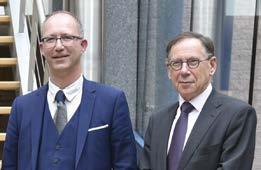
A programme that did not suffer from Covid-restrictions was the Postgraduate Certificate in European Policy-making, which for many years has been an online programme, with one physical element, i.e. an inter-university summer school in Brussels and Vienna, which this year also took place in a virtual setting. The success this year led to the

Institute for European Studies Annual Report 2020 9
EXECUTIVE SUMMARY
67 Master Graduates 5 PhD Diplomas 216 Media Appearances 19 Own Projects 46 External Projects 97 Publications 29 Public Events 15 Research Colloquia 23 Policy Briefs 108 Staff Members EXECUTIVE SUMMARY
Anthony Antoine, Executive Director and Luc Soete, Dean
aspiration of organising this twice per year (once as winter school, once as summer school, with at least one of these in a virtual mode-only). Although a few students preferred to defer their graduation until a physical summer school would be possible, many more joined just because an online offer was available.
The government agreement not only stipulates targets concerning advanced Master programmes, it also requires us to start two new PhD projects a year. We did so in 2020, following a call for projects in both the migration field as well as the security field. More PhD researchers joined on externally-funded projects. We were also particularly proud to see five of our PhD students graduate: Antonios Nestoras (political science), Alexandra Mihai (educational science), Klaudia Majcher (law), Laura Westerveen (political science) and Neepa Acharya (political science) all successfully defended their thesis at our Institute.
One of the most prominent elements in the IES Strategic Plan 2021-2025 concerned the creation of four new research centres. Building on the expertise we accumulated over the past two decades, and restructuring the synergies internally, within the Institute and the VUB/Vesalius College, and externally, with the reformulated policy priorities of the EU, the Board of the IES approved the creation of the following Centres: the Centre for Migration, Diversity and Justice, the Centre for Security, Diplomacy and Strategy, the Centre for Environment, Economy and Energy, and the Centre for Digitalisation, Democracy and Innovation. Each Centre is led by a director (or two co-directors) and will constitute a research hub in its field, strengthening research-led teaching in the existing and future programmes of the IES and pulling in more externally-funded contract research. It is also meant to operationalise the alliance between the IES and Vesalius College and provide the resulting Brussels School of Governance with an integrated research agenda.These research Centres were already successful in attracting externally funded projects: in 2020, we started one new FWO project, one new H2020 project, one new Jean Monnet project, one VUB-funded strategic research programme, two new projects with the Flemish Innovation and Entrepreneurship programme, various new projects within the Korea Chair and a brand new Japan programme. Unfortunately, due to Covid, the start of a number of these projects had to be delayed or postponed to 2021.

Eleven new people started on the Institute's payroll, while eleven people left, keeping the total number of staff members at the IES at 108 (52,3 FTE as opposed to 52,4 last year).
Unfortunately, the effect of the pandemic is mirrored in a magnified way in the financial numbers for 2020. With several exchange programmes suspended and difficult international student recruitment, we anticipated a significant loss in the course of 2020. With additional investments to oversee the digitalisation of our teaching, a number of externally-funded projects postponed or cancelled, the total effect of the pandemic is now estimated at ± € 300.000, either in lost income or in additional expenses. This leads to an exceptional loss in 2020 of € 250.000. The Institute hopes to recuperate a large part of this loss through the special corona government support mechanisms and will be filing a request to this end. As the effects of the pandemic will undoubtedly continue throughout 2021, such compensation will be necessary to allow us to continue to pursue our goals set forth in our strategic plan.
Institute for European Studies Annual Report 2020 10
EXECUTIVE SUMMARY 11 Institute for European Studies Annual Report 2020
HIGHLIGHTS 2020
HIGHLIGHTS 2020

Promoting five new PhD graduates
2020 was a very fruitful year at the IES regarding new PhD degrees: Antonios Nestoras, Alexandra Mihai, Klaudia Majcher, Laura Westerveen and Malasree Neepa Acharya all successfully submitted and defended their doctoral thesis. The series of doctoral defenses was kicked off by Antonios Nestoras who was promoted in February 2020 on the subject of “Belonging to the West? Geopolitical Mythmaking in Modern Greece from the Enlightenment to the Euro-crisis.” It was a double doctoral degree from the Institute for European Studies at the Vrije Universiteit Brussel and University of Antwerp, promoted by Prof. Luis Simon (Institute for European Studies) and Prof. David Criekemans (Universiteit Antwerpen).
Five months later, in July 2020, Alexandra Mihai obtained her doctorate. Her dissertation explored the way technology is integrated in the teaching practice and institutional structures at European universities in the case of political science as a teaching discipline - a very timely topic in these pandemic times. It was supervised by Prof. Dr. Frederik Questier & Prof. Dr. Chang Zhu (Faculty of Psychology and Educational Sciences, Vrije Universiteit Brussel).
On 4 September Klaudia Majcher defended her PhD on Coherence between EU Data Protection and Competition Law in the Digital Market. The thesis explored the ways how competition and data protection could positively interact and reinforce each other in the EU’s digital market.” and was co-promoted by IES Profs. Ben Smulders and Harri Kalimo.
One month after Klaudia’s PhD defence, in October 2020, Laura Westerveen successfully defended her PhD thesis entitled "Ethno-racial (In)equality in Belgium and Germany: Understanding Policy Frames”. Laura’s dissertation explored the framing of inequalities along ethno-racial lines in policy discourses. Her Promotor was IES Prof. Dr. Ilke Adam.
And last but not least, Malasree Neepa Acharya was promoted in November 2020, on the topic of ‘Anchoring Circulation of India’s Diaspora Entrepreneurs: Creating Cosmopolitan Home and Work Lifeworlds in Bangalore’s Interconnected Entrepreneurial Ecosystem.’ Neepa's co-promotors were IES Prof. Dr. Ilke Adam and Prof. Dr. Alison Woodward.
IES contributes to study set to direct Flanders' industrial transformation policy
On 10 November the results of the study “How can we transform the Flemish industry, to ensure it can thrive in a climate-neutral Europe by 2050?” were presented to over 200 stakeholders in the presence of the Flemish minister of innovation Hilde Crevits. This study was performed by Climact, Deloitte, the Antwerp Management School and
Institute for European Studies Annual Report 2020 13
HIGHLIGHTS
As the global balance of power shifts to Asia, Europe has been stepping up its ambition to play a more proactive role in regional political and security affairs. The Programme aims to accompany this dynamic by providing a unique platform for research, education and dialogue for the academic community, policypractitioners and the broader public in Europe and Asia. To this end, it plans to organise a range of activities, including an executive course, public events and policy dialogues, as well as issue a series of policy-oriented publications.
HIGHLIGHTS
Prof. Florian Trauner awarded Jean Monnet Chair
Prof. Florian Trauner was awarded a Jean Monnet Chair for the project ‘EXPAND: Explaining Resilience in EU Justice and Home Affairs’. Jean Monnet Chairs are funded by the European Union’s Erasmus+ Programme and aim at achieving research-led excellence in teaching and learning. The objective of the Chair ‘EXPAND’ is to contribute to the understanding of the changing nature of the European integration policies in and beyond the EU with regard to Justice and Home Affairs Policies.
Migration, Diversity and Justice Research centre secures four prestigious research projects

the Institute for European Studies (VUB). The study presents options to achieve deep emission reductions towards climate neutrality by 2050 by Flemish industry, a roadmap towards this goal, and the enabling policy framework.
IES initiates Japan Programme
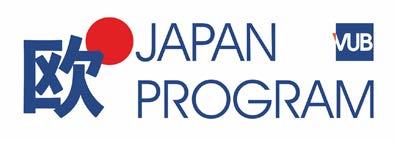
On 1 October 2020, the newly established Japan Programme officially star ted its activities at the VUB’s Institute for European Studies (IES). Set up with the support of the Japan Foundation, the Programme aims to enhance awareness of Japan’s foreign and security policy, steer the European debate on current security issues in East Asia and the broader Indo-Pacific region, as well as to promote Japan’s cooperation with the EU and NATO.
The Programme is par t of the new Centre for Security, Diplomacy and Strategy (CSDS) at the IES and is headed by Dr Eva Pejsova, Senior Japan Fellow, and Celine Pajon, Senior Research Fellow of the project. Its activities are supported by Prof. Luis Simon, Maaike Verbruggen and Fabio Figiaconi.
Dr Eva Pejsova commented: ‘In February 2019, the EU-Japan Economic Partnership Agreement entered into force, creating the world's largest open economic area covering a third of the global economy. This has obviously opened up a vast number of collaboration opportunities between the two parties. In a century commonly known as the Asian Century, we believe that, in addition to the KF-VUB Korea Chair also hosted at the IES, our new Japan Programme is a very timely project that will be beneficial to a diverse range of stakeholders in Europe, Asia, and beyond.’
With two new H2020 projects on migration and immigrant integration, one FWO postdoctoral project on immigration policies, and a European research project on the BLM movement, the IES’ Migration, Diversity and Justice research centre has had a particularly successful year with respect to research grants.
The H2020 project ‘BRIDGES’ will study the production and impact of migration narratives. In this project, the IES will lead a Work Package on the (non-)impact of awareness-raising campaigns on potential migrants’ decisions in West-Africa. A second H2020 research project, WHOLE-COM, will research post-2015 immigrant settlement policies in small and medium-sized towns in Europe: which policies do they develop, and why? What is the impact of these policies? And how do local authorities interact with national policy makers? The VUB participation in this project is realized via BIRMM, the VUB’s interdisciplinary Centre of Expertise on Migration and Minorities and is at the crossroads of political science (Ilke Adam, Laura Westerveen) and social geography (Nick Schuermans).
The MDJ cluster also kicked off a new FWO post-doc project on sub-national immigration policies in federal states. It has been awarded to Cathérine Xhardez (currently Concordia University), who joined the IES in October. Furthermore, PhD researcher Folashade Ajayi has been selected as a project partner for a new European research project on the impact of the Black Lives Matter Movement in Germany, Italy, Denmark and Poland. This German government funded research project is a collaboration between the German Centre of Integration and Migration Research (DeZIM), Scuola Normale Superiore, University of Copenhagen and the Polish Academy of Sciences.
Institute for European Studies Annual Report 2020 Institute for European Studies Annual Report 2020 14 15
Tomas Wyns and Gauri Khandekar, IES researchers who participated in the study
IES further enhances reputation as frontrunner in teaching and learning innovation
For many years, the Institute for European Studies has built a solid reputation in teaching and learning innovation. Long before the COVID-19 pandemic, blended and online learning was part of its educational portfolio. Now, with the establishment of an Office for
Teaching and Learning Innovation (OTLI) in the Spring of 2020, the Institute has taken the next step in this essential development towards the ‘education of the future’. The OTLI serves as a knowledge hub for the IES' teaching staff and focuses on pedagogical innovation and the use of technology to enhance learning. Concretely, its dedicated team works on the design and implementation of sustainable teaching and learning policies that aim to improve the student learning experience for all course formats, from face-
Educational innovation is truly key for us. Along with personalised attention for our students, it is what sets us apart. Already back in 2016, the Flemish educational authorities labelled our institution as a pioneer in developing on-line learning methods in European law and policy. That was the past, now we look to the future. OTLI will be a cornerstone of our educational strategy in years to come. With this in-house experience, we want to pass a clear message to our current and future students: no matter what type of learning experience you have with us, face-toface, blended or online, it will always be personal, flexible and high-quality!
Sven Van Kerckhoven IES Vice-Dean for Education
HIGHLIGHTS
to-face to blended to fully online. In doing so, the OTLI team attaches great impor tance to student par ticipation through continuous student feedback, in a spirit of co-creation, leading to the best result for all concerned. In the months following the star t of the lockdown in Belgium in March 2020, OTLI has successfully provided training, advice and support for professors during the state of ‘emergency remote teaching’ as a result of the pandemic. As a result of this, we could ensure the continuity of more than 90% of the planned lectures. In parallel, OTLI has been working on the transition to a more sustainable model for building courses that will be implemented as of the academic year 2021-2022.
Jonas Lefevere co-authors extensive survey "De Stemming van Vlaanderen"
For a study commissioned by the Flemish public broadcaster (VRT) and the newspaper De Standaard, Jonas Lefevere (Vesalius College / Institute for European Studies) and Stefaan Walgrave (UAntwerp) conducted an extensive survey of Flemish voters in an effort to track evolutions in political opinion since the 2019 general elections in Belgium. Because the survey was fielded in the middle of the Corona pandemic, it was decided to also include extensive measurements of attitudes towards the lockdown, government performance, and the ongoing political crisis that culminated in the formation of the minority government Wilmès.
EU climate policy project COP21: RIPPLES presents 6 key findings
In December 2016, the Horizon 2020 project “COP21: Results, Implications, Pathways and Policies for LowEmissions European Societies (COP21-RIPPLES)” officially star ted. The project was running for three years, until November 2019 and it was coordinated by the Institute for Sustainable Development and International Relations (IDDRI) in Paris. The project aimed to provide interdisciplinary analysis of the conditions of EU climate policy in the strategic context of the Paris climate change agreement concluded in 2015. The VUB’s Institute for European Studies (IES) was among 17 leading universities and institutes that joined forces to produce climate policy guidelines and the IES was one of the main partners of the project. Under the lead of Prof. Sebastian Oberthür, and with valuable contributions of IES Project researchers Tomas Wyns and Gauri Khandekar the IES cluster on Environment and Sustainable Development was in particular co-coordinating Work Package 4 of the project that assesses the adequacy of the Paris outcomes for effective international climate governance and the EU’s role. As the Project comes to an end, project members published the key messages to contribute to evidence-based decision making.

Institute for European Studies Annual Report 2020 Institute for European Studies Annual Report 2020 16 17
HIGHLIGHTS
RESEARCH PORTFOLIO
RESEARCH - STRATEGIC GOALS
The Strategic Plan 2016-2020 described a number of research objectives:
• Successful completion of at least 15 PhDs projects (i.e. an average of three per year) and launching of at least 25 PhD projects (of which ten funded by their own resources)
In 2020,the IES initiated several new PhD projects (of which two are funded on own resources), and was able to deliver five doctoral diplomas.

• Strengthening IES involvement in national and international research networks
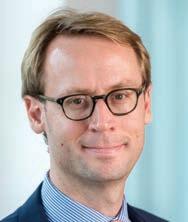
One of the new initiatives in 2020 was the creation of a Japan Programme. Set up with the support of the Japan Foundation, the Programme aims to enhance awareness of Japan’s foreign and security policy, steer the European debate on current security issues in East Asia and the broader Indo-Pacific region, as well as to promote Japan’s cooperation with the EU and NATO. The Japan Programme complemented the KF-VUB Korea Chair launched in 2017. Also new in 2020 were the IES’ plans to kick off a Winter School on EU Policy Making, an online programme focusing on digital rights that would be held for the first time in February 2021. Moreover, in 2020 the IES fur ther elaborated its existing networks through its collaboration with UNU-CRIS, the organisation of joint events with various partner organisations, and its involvement in numerous EU projects with various consortia (see Externally Funded Projects section for more details).
• Consolidation and strengthening of academic focus areas with thorough review of existing cluster structure
In 2012, the IES was restructured into four clusters and one Educational Development Unit. It continued to support these clusters throughout 2020 by means of annual PhD calls. In the third quarter of 2020, the four clusters were restructured into four new research centres, in the context of the closer collaboration with Vesalius College: Environment, Economy and Energy; Migration, Diversity and Justice; Security, Diplomacy and Strategy; and Digitalisation, Democracy and Innovation.
• Implementation and further development of Guidelines for IES Academic Staff (including guidelines for PhD projects, cluster arrangements at the IES, benchmarking approach for postdoctoral staff)
The guidelines were already finalised in 2012. Benchmark discussions with senior research staff are done on an annual basis, whilst PhD progress is monitored by tailored supervisory committees and relevant faculty authorities. The newly established Research Council became the forum for developing and communicating research-related academic policy.
19 Institute for European Studies Annual Report 2020
Alexander Mattelaer Vice-Dean Research
RESEARCH - STRATEGIC GOALS
• Consolidation / increase of external project funding (for research projects and scientific services)
The Institute was able to attract two million euros external funding, which is similar to last year.
• Fostering cross-cluster collaboration and integration (e.g. by prioritization of cross-cluster projects)
The Institute fostered cross-cluster publishing and has several of its researchers involved in cross-cluster projects, e.g. the Aviation Biofuels project with our EEG and ESD clusters. Other major projects the Institute worked on include the Brussels Interdisciplinary Research Centre for Migration and Minorities (BIRMM) project, a VUB platform for migration and diversity researchers to meet, exchange and cooperate across disciplines –coordinated by our Institute.
• Enhance PhD guidance through the creation of the position of a Director of PhD studies

The Institute created this new post and appointed
Prof. Dr Sebastian Ober thür as the first post holder in 2016. He acted as representative or member in several VUB bodies responsible for monitoring the doctoral school trajectory. In 2020, the position of the Director of PhD studies was integrated into the mandate of the Vice Dean for Research. In addition, a representative from the PhD community joined the Research Council discussions with a view to facilitating the communication of research policy.
• Publication of 40-50 ar ticles in recognized international journals or their equivalent in major book publications per year, on average (with the share of peer-review level publications reaching at least 50%); Publication of 1-2 books per year (on average); Publication of up to 15 Policy Briefs per year (on average).
The IES published 33 ar ticles, of which 29 peerreviewed and 40 book chapters. The IES also internally published 7 IES Policy Briefs, 16 IES Korea Chair Policy Briefs, 4 Korea Chair Reports and 10 reports with the contribution of IES experts. For a full overview, see our list of publications in the annex.
LIST OF PhD BURSARY PROJECTS
Drawing on its own core resources and income generated from external projects, the IES features a large cohort of PhD bursaries. These bursary projects are recruited via open (and thus competitive) calls for projects. Stemming from the obligations in the government agreement, the Institute launches a minimum of two calls every year, supplemented by external project-based calls. In 2020, the Institute provided an academic home to the following bursary projects:
• Explaining the Response of the EU and of NATO to the Ukraine Crisis, Elie Perot, October 2016-September 2020
• Cooperation beyond borders: explaining EU migration cooperation with third countries Philipp Stutz, October 2017-September 2021
• Explaining military innovation in military applications of artificial intelligence, Maaike Verbruggen, November 2017-September 2021
• Testing the East Asian Paradox: A study of East Asian nations' economic and security relations with a focus on Northeast Asia Maximilian Ernst, October 2018-September 2022
• Competition versus co-operation in global internet governance, Orsolya Gulyás, Orsolya Gulyás, November 2018-October 2022
• On the outside looking in: Goal achievement of EU Arctic policies”, Aslak Veierud Busch, October 2019-September 2023.
• EU climate and energy governance: how myopic is it?, Jana Gheuens, January 2019-December 2022.
• The integration of climate and energy security objectives in the EU's external energy policy, Marco Giuli, September 2019-September 2023.
• Historical narratives in Russian governmental discourse on domestic and foreign policy decisions, 1991-2018, Laura Vansina, October 2019-September 2023.
• Governmental Responsiveness to Black Lives Matter in Europe, Fọláṣadé Ajayi, February 2020-March 2024
• Great Power Competition in the Indo-Pacific: the Mekong Region, Fabio Figiaconi, October 2020-September 2024
Institute for European Studies Annual Report 2020 21
Institute for European Studies Annual Report 2020 20
LIST OF PhD BURSARY PROJECTS
• Missile Defense and International Relations: Causes and Effects of Deterrence by Denial Investments
Enrico Barranu, October 2020-September 2024
• EU Policy Instruments on Sustainable Trade Simon Happersberger, October 2020-September 2024
• Business Model Transitions for Enabling Deep Emission Reductions in the EU Energy Intensive Industries, Matilda Axelson, February
2017-January 2021 – funded by project
• Who Shapes Whom? Transatlantic Relations in the Asian Century, Linde Desmaele, April 2017-March 2021 – funded by project
• Legitimacy of multistakeholderism in Internet Governance Nadia Tjahja, September
2020-August 2022 – funded by project
• Belonging to the West? Geopolitical Mythmaking in modern Greece from the Enlightenment to the Euro-crisis, Antonios Nestoras, 2016-2020 –funded by project
• Multistakeholderism in international trade governance Diana Potjomkina, December 2017-November 2021 – funded by project
• The Internet of Things in the Circular Economy: Reconciling Environment, Data, and Trade under the WTO in the Digital Age, Eleonor Mateo, December 2017-November 2021 – funded by project
The following researchers who successfully defended their doctoral thesis in 2019 were supported by the IES Research Enhancement Fund, a fund that was created to help junior researchers in the transition period from PhD to postdoctoral researcher:
LIST OF EXTERNALLY-FUNDED PROJECTS
International organisations and foreign governments
BFSJ: Production of fully synthetic paraffinic jet fuel from wood and other biomass
January 2015-June 2022
Funding scheme: European Commission - FP7
• Stephan Klose, 'Four essays on role theory's added value for IR and EU studies'
• Carlos Soria-Rodríguez, 'The International and European environmental regulation of marine renewable energies in the EU'
• Laura Westerveen, ‘Ethno-racial (In)equality in Belgium and Germany: Understanding Policy Frames’
In the Aviation Biofuels project, IES analyses as a part of an engineering project the globally most innovative policies to promote the uptake of sustainable aviation biofuels, in par ticular as regards fully synthetic paraffinic jet fuels. The IES also scrutinizes how such innovative policies interact with European and international (WTO) economic law.
Europe Explained – Inter-University Summer School on EU Policy-making
September 2019-August 2022
Funding scheme: European Commission – Jean Monnet Module
The Summer School on European Policy-making is an intensive two-week study programme with a strong multidisciplinary character, developed and delivered by the Institute for European Studies (IES) at the Vrije Universiteit Brussel, in close cooperation with the Vienna School of International Studies and the University of Vienna, for the past fifteen years. Since 2013, this is a compulsory component of the IES post-graduate certificate on EU policy-making.
VOWED: Virtually Excellent: Opening Europe to the World through Innovative Education
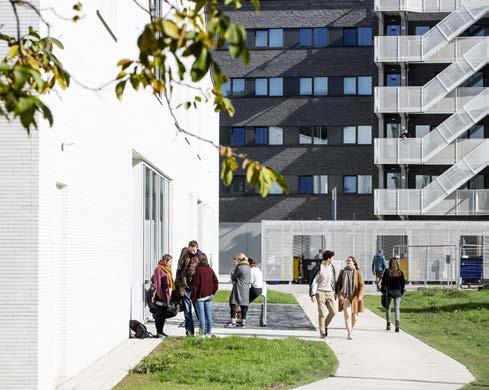
September 2017-August 2020
Funding scheme: Jean Monnet Chair – Jean Monnet Centre of Excellence
The "Vir tually Excellent: Opening Europe to the World through Innovative Education" (VOWED) Jean Monnet Centre of Excellence aims to 1) ensure that students benefit from high-quality research-based teaching on a wide variety of EU integration and foreign affairs issues; 2) provide a foundation by which academics and students are informed via a series of distance learning formats on a range of multidisciplinary themes; and 3) offer a series of outputs by which civil society can be viably informed of contemporary EU developments.
EXACT: Explaining EU Action in Counter Terrorism
September 2017-August 2020
Funding scheme: European Commission – Jean Monnet Chair
The "Explaining EU Action in Counter Terrorism" (EXACT) Jean Monnet Chair provides research-led teaching and learning at the intersection of two fundamental areas of EU policy: the Area of Freedom, Security and Justice and EU counter-terrorism policy and law - through an international cross-section of doctoral, postgraduate and graduate students. The objective is pursued by advancing cutting-edge blended learning formats, distance learning, strong interdisciplinarity, and policy relevance.
Institute for European Studies Annual Report 2020 23
Institute for European Studies Annual Report 2020 22
VUB Campus Etterbeek, Brussels
LIST OF EXTERNALLY-FUNDED PROJECTS
International organisations and foreign governments
EXPAND: Explaining Resilience in EU Justice and Home Affairs
September 2020-September 2023
Funding scheme: European Commission – Jean Monnet Chair
The EXPAND Jean Monnet Chair will work towards advancing research-led teaching and the public debate on the resilience of the EU in general and in the Area of Freedom, Security and Justice in particular. The objective of EXPAND is to engage students, academics and policy-makers/practitioners in a dialogue on: (1) the ways in which the European integration project has – or has not – become more resilient; (2) the ways in which the EU and its member states have incorporated lessons from previous crisis and seek to reform their JHA policies in formal and informal ways; (3) the international channels of influence that the EU has fostered in the JHA field to develop a more comprehensive approach, notably in the migration field. The Jean Monnet Chair EXPAND will make an essential and substantiated contribution to understanding the changing nature of the EU’s integration process and its impact in and beyond the EU with regard to Justice and Home Affairs policies.
MINDb4ACT: Mapping, Identifying and Developing skills and opportunities in operating environments to co-create innovative, ethical and effective ACTions to tackle radicalization leading to violent extremism
September 2017-August 2020
Funding scheme: European Commission – H2020
MINDb4ACT has the objective to improve the current EU counter-violent extremism policies and to generate new ones. It will focus on four kinds of interventions (research actions, exchanges among
law enforcement agencies, strategic-policy exercises, training courses and pilot projects). All actions will be developed within such collaborative ecosystems
(‘Living Labs’) to facilitate stable collaborations
(‘Knowledge partnerships’) that will improve current law enforcement techniques. The interventions will be developed in five specific domains: prisons and judiciary systems; immigration hotspots and asylum centres, schools, cities (peri-urban contexts) and the Internet and Media (TV, radio online).
COP21-RIPPLES: Results and Implications for Pathways and Policies for Low Emissions European Societies
December 2016-January 2020
Funding scheme: European Commission-H2020 This COP21-RIPPLES project provides interdisciplinary analysis of the conditions of EU climate policy in the new strategic context of the Paris Climate Change Agreement concluded in 2015. Within this project, the IES team assesses the adequacy of the Paris outcomes for effective international climate governance and the EU’s role. COP21- RIPPLES has four objectives: 1) Assess the adequacy of national climate action plans submitted under the Paris Agreement, 2) Assess the implications of national climate action plans and their strengthening on other European socio-economic objectives, 3) Assess the adequacy of the outcomes of Paris, and the implications and opportunities emerging from ongoing UN climate negotiations, and 4) Provide recommendations for EU climate policy and climate diplomacy.
LIST OF EXTERNALLY-FUNDED PROJECTS
International organisations and foreign governments
GOVTRAN: Governing the EU’s Climate and Energy Transition in Turbulent Times
September 2018-December 2021
Funding scheme: European Commission – Jean Monnet Network
The overarching aim of GOVTRAN is to provide a platform to bring together the European and global community of senior and early career scholars in the field of climate and energy, and to actively foster this community’s engagement with policymakers and the broader public.
JP-COOPS: Judicial and Police cooperation preventing radicalisation towards terrorism
January 2019-June 2021
Funding scheme: European Commission – Justice Programme (JUST)
JP-COOPS, funded by DG JUST focuses on the expansion of the network of trainers, national contact points, e-contents, and platforms established by previous projects. Its main contribution will be the establishment of one network of networks comprising 26 Multiagency National Contact Points, all using an up-scalable and modular Toolkit of all available Toolkits, which expands the knowledge on counter-radicalisation strategies and practices through the use of judiciary and police cooperation as part of new situational prevention strategies.
FAIRNESS: Implementation of Stockholm's roadmap in cases of terrorism and radicalisation
July 2019-June 2021
Funding scheme: European Commission – Justice Programme (JUST)
The FAIRNESS project aims at promoting a balanced harmonization of the Member States’ legal activities in relation to the implementation of several EU Directives (2016/343, 2016/800, 2016/1919, 2013/48/EU) when suspected or accused persons are involved in terror-related crimes or radicalisation. Further, it aims at exploring the coherence between the ‘spirit’ and previsions of the ‘Stockholm’s Roadmap’ contrasted with investigative and preventive practices (including Directive 2014/41/EU, and Council Framework Decisions 2002/584/JHA) involving suspects or accused persons for crimes related to terrorism in the pre-trial stage.
AID-RES: Advancing industrial decarbonisation by assessing the future use of renewable energies in industrial processes
December 2020-December 2022
Funding organisation: European Commission – Directorate General for Energy
The aims and objectives of the project are to provide a timely and uninterrupted service to the European Commission in carrying out an analysis to understand the effectiveness, efficiency and cost of potential innovation pathways for achieving carbon neutral processes in the steel, chemical, cement, glass, fertilizers and refineries sectors in the EU 27 by 2050. The analysis shall cover the associated energy needs of said industrial sectors, the geographical distribution of these needs, as well as potential symbiosis with fur ther sectors. The
Institute for European Studies Annual Report 2020 Institute for European Studies Annual Report 2020 24 25
LIST OF EXTERNALLY-FUNDED PROJECTS
International organisations and foreign governments
results of this study shall serve as the data input basis for data visualisation (by the JRC).
SOLVIT VI
December 2020
Funding organisation: The Executive Agency for Small and Medium-sized Enterprises (EASME)
Two-day high-level training for SOLVIT network of the EASME and DG GROW on the EU free movement of goods and mutual recognition.
BNB: Beton Naar Hoogwaardig Beton
March 2018-February 2021
Funding scheme: European Regional Development Fund (Interreg)
In this project, concrete is recycled through a crushing process, where the concrete rubble is separated into its original components – cement stone, sand and gravel. After a dehydration process, the cement stone can be used as a new binder in new high-quality concrete products, with very low environmental impact. In the project, the IES conducts an economic analysis and assesses the business model(s) arising from the new value chain. Project partners are the Vrije Universiteit Brussel (coordinator), VITO, MEAM, CBS Beton, KU Leuven, SCC, SGS INTRON, Concrete Valley Group B.V. and Innovatie Centrum Duurzaam Bouwen.
Freedom of Expression and Addressing
Disinformation on the Internet
Funding organisation: UNESCO - EU DisinfoLab
This research aims to: provide insight into the problems of broadband use in the light of its potential ability to encourage widespread dissemination
of disinformation; investigate mechanisms for countering this problem while encouraging freedom of expression; highlight areas of impor tance and signal an agenda for future research; and provide useful resources for stakeholders such as policymakers, educators, media and researchers. This proposal was conceived and put together by an international consortium of world-leading experts on addressing online disinformation and use of technology to protect and defend human rights.
SPA: Support Facility for the Implementation of the EU-Japan Strategic Partnership Agreement
January 2020
Funding organisation: European Commission –EuropeAid
Within the framework of the project 'Support Facility for the Implementation of the EU-Japan Strategic Partnership Agreement' and the EU-Japan Expert Workshop on Maritime Security and Defence Capabilities, experts provided a Japanese and European point of view on the topics discussed at the workshop held on 14 January in Tokyo. A series of input papers with recommendations were delivered by the experts.
The EU-Japan Strategic Partnership Agreement: Moving from conception to Implementation
March 2020
Funding organisation: Mission of Japan to the European Union
The signature of a Strategic Partnership Agreement (SPA) between Japan and the European Union in 2018 has set the foundations for a stronger security
LIST OF EXTERNALLY-FUNDED PROJECTS
International organisations and foreign governments
relationship between the two par ties. As Brussels and Tokyo seek to capitalise on their SPA, maritime security in the Indian Ocean offers an invaluable oppor tunity to deepen their strategic ties. The project is guided by two over-arching questions that need to be jointly tackled in light of mutual challenges: How can the EU and Japan contribute to the political stability, economic prosperity and security in regions and areas of mutual interest? In what practical ways can EU-Japan cooperation contribute to the preservation of the liberal, rulesbased, international order in the areas of maritime security, critical infrastructure and defence technologies? On 9-10 March, a closed-door expert workshop and public conference have been organised in Brussels. It brought together policy makers and exper ts from Japan with counterpar ts from the EU. Two policy briefs outlining a series of policy recommendations on how to take the Europe-Japan relationship forward were also delivered as part of the project.
Maritime Security in the Indo-Pacific: An Opportunity for Australia, Japan and Europe?
October 2020-March 2021
Funding organisation: Embassy of Japan in Belgium
Given how extensive bilateral relations are between Australia, Japan, the EU and NATO, it is wor th asking whether and how relations can be taken to the next level. With new leaders in the EU and an American presidential election on the horizon, it is an opportune moment to take stock of the relations between Australia, Europe and Japan and how their interactions can help structure the security of the Indo-Pacific geostrategic axis. Can the individual bilateral relations between these actors be enhanced, and, if so, in what ways? What is more, what scope exists to somehow bring the multitude of bilateral agreements and initiatives together? What are the political obstacles to an enhanced Australia, Europe and Japan strategic footprint in the Indo-Pacific? A closeddoor, expert seminar and a public roundtable were held online on 3 November. Following this, a publication on the discussed topics was written and made available to the public.
Extended deterrence in Europe and Northeast Asia: A comparative approach
September 2019-February 2020
Funding organisation: Embassy of Japan in Belgium
On 18 and 19 November 2019, the Institute for European Studies convened a closed-door expert meeting and a public roundtable on current challenges to extended deterrence in Europe and East Asia. Discussions focused specifically on how US alliances and extended deterrence guarantees in Europe and East Asia are linked; what similarities and differences can be observed regarding how the alliances are managed; how threats and challenges are addressed, and how the United States deals with its allies in two different theatres. Experts discussed the future of extended deterrence in Europe and East Asia with par ticular attention to NATO and the US-Japan alliance. It was attended by a number of policy-makers and experts from Europe and East Asia.
Institute for European Studies Annual Report 2020 Institute for European Studies Annual Report 2020 26 27
LIST OF EXTERNALLY-FUNDED PROJECTS
Other organisations
CONNECT: Understanding the international context for Norway’s low- emission economy transition
September 2017-August 2021
Funding organisation: CICERO – Research Council of Norway
CONNECT will provide policymakers with insights into how the framework Paris Agreement will develop into more detailed rules and procedures for global climate cooperation and national policy approaches in the years leading up to 2018. It further examines how international climate policy changes influence EU climate policies in the period from 2015 to 2018, and the consequences for EU-level decisionmaking processes. The project will also look at how changes in the international context impact Norway's climate policy development up to 2018, and what the implications may be for a long-term low-carbon transition in Norway
Who wins the legislative battle? Tracing legislative change and policy ideas in the Area of Freedom, Security and Justice
October 2017-September 2021
Funding organisation: Fonds Wetenschappelijk
Onderzoek – Vlaanderen (FWO)
This FWO project aims to understand the balance of powers between the main European institutional actors in context of legislative decision-making in the Area of Freedom, Security and Justice (AFSJ).
First, it investigates what changes legislative acts undergo during the legislative process from the text proposed by the European Commission to the final version published in the Official Journal of the European Union and which policy ideas, defined
as policy provisions contained in the law, end up in the adopted document. Second, it accounts for the mechanisms and causal factors behind the influence of certain institutional actors and ideas on the development of legislation adopted in the AFSJ field. To do so the project relies on an application prototype of data mining and data processing, which allows a large-N systematic approach to track, visualise and analyse all legislative activity in AFSJ between May 1999 and December 2016. By tracing who ‘wins’ in the ‘legislative battle’, the project does not only fill an important gap in the literature on the AFSJ decisionmaking dominated by small-N and qualitative studies, but it also fuels the ongoing theoretical debates on the influence of institutional actors and on the impact of ideas on the European legislative outcomes. Moreover, the application of data mining and data processing techniques to legal text can contribute to test the efficiency of different computational modeling methods.
Policy integration: decarbonisation and security of supply in the European Union's external energy policy
January 2019-December 2022
Funding organisation: Fonds Wetenschappelijk
Onderzoek – Vlaanderen (FWO)
This FWO-funded project aims to examine levels of policy integration and to identify related main drivers and barriers as a contribution to a general theory of (climate) policy integration. It specifically explores varying levels of integration of the key policy objectives of decarbonization and security of supply into the European Union’s external energy policy
LIST OF EXTERNALLY FUNDED PROJECTS
Other organisations
toward third countries. Based on existing literature on policy coherence and (environmental/climate) policy integration, it develops a novel framework for assessing the level of policy integration of the two aforementioned policy objectives and applies this framework to the EU’s external energy policy towards three partner countries (Russia, Norway, Algeria or Azerbaijan).
The immigration-federalism nexus: taking the subnational level seriously
October 2020-September 2023
Funding organisation: Fonds Wetenschappelijk Onderzoek – Vlaanderen (FWO)
In many federal states, subnational governments are increasingly involved in immigration policymaking, which has resulted in powers and resources decentralization, and policy development at the subnational scale. This project aims at opening the black box of the vibrant subnational policy variation when it comes to immigration and immigrant integration matters in 4 federal states (Belgium, Canada, the United States, and Switzerland). The innovative character of this research is to look more closely at the subnational level, taking into account the diversity and the asymmetry that exist inside each federation.
Grants European Climate Foundation
Since 2015
Funding organisation: European Climate Foundation
The IES is doing policy research suppor ted by ECF in several projects aiming at the decarbonization of energy intensive industries.
Climate Diplomacy 2019-2020
December 2019-December 2020
Funding organisations: German Federal Foreign Office | adelphi
The project ‘Climate Diplomacy’ in suppor t of the German Ministry of Foreign Affairs explores the foreign policy dimension of climate change and climate policy, including the impacts on peace, conflict and security in different regions around the world. To explore these issues, Adelphi and the Institute for European Studies have assessed the implications of energy transition and decarbonisation for German and European foreign policy and produced a full-fledged report, a policy brief and several country studies. This project consists of two par ts. First, it aims at launching a report and accompanying outputs and at discussing the findings with relevant stakeholders in Brussels. The second objective is to produce and publish, based on the report, a book on the geopolitics of decarbonisation. The IES-VUB organised a launch event in Brussels and took the lead in completing the book manuscript for publication.
Institute for European Studies Annual Report 2020 Institute for European Studies Annual Report 2020 28 29
LIST OF EXTERNALLY-FUNDED PROJECTS
Other organisations
EMPOWER-YOUTH: Obstacles et leviers à la participation sociétale et citoyenne des jeunes
Bruxellois défavorisés
November 2017-October 2021
Funding scheme: Innoviris Brussels – Anticipate programme
“Empower Youth project” is a four-year research programme conducted By Géraldine André (IES-VUB) and Alejandra Alarcon (GERME-ULB) on societal and civic participation of young disadvantaged people from Brussels. Through a mixed-method design (qualitative and quantitative), Empower Youth investigates:
1) Why and when do youngsters not take up on, or turn away from, structures that aim at developing their participation;
2) When and how does the institutional complexity of Brussels influence the relationships of young people from Brussels with those structures;
3) How does discrimination and assignment to disadvantaged social categories such as gender or alleged race (as well as their interactions) shape the relationships of youngsters with different institutions in Brussels;
4) In which ways do the existing instruments and programmes aiming at the encouragement of civic participation of young people from Brussels meet their expectations (or not);
5) What are the links between different forms of societal and civic participation?
ROLECS: Roll-Out of Local Energy Communities
January 2019-September 2021
Funding organisation: Agentschap Innoveren & Ordernemen (VLAIO)
ROLECS project is a unique cooperation between all Flemish research institutes active in the energy sectors and 25 companies all working towards gaining a deeper understanding and maximizing the potential of Local
Energy Communities (LECS). These communities, following up EU policy on energy, create a landscape that is more sustainable and with active participation of the end-consumer/producer (the so-called prosumer).
Contextanalyse en roadmapstudie – Vlaamse
Industrie Koolstofcirculair en CO2-arm
October 2019-July 2020
Funding organisation: Agentschap Innoveren & Ordernemen (VLAIO)
CO2-arm is a roadmap for the decarbonization of the Flemish energy-intensive industry. This project will result in an integrated vision to achieve a low-carbon industry in the region that takes into account the Flemish industrial fabric, existing initiatives and the expertise of the knowledge institutions. The vision takes into account preconditions such as the policy framework and the transition framework and is the result of an indepth context analysis and a progressive roadmap.
PLATON: PLATform for Open and Nationally accessible climate policy knowledge
January 2019-December 2022
Funding organisation: The Research Council of Norway, KLIMAFORSK Programme - Fridtjof Nansen Institute (FNI)
PLATON is Norway's largest social science climate research project and will help politicians and businesses in their efforts to make Norway a lowemission society. The project will build an openly available knowledge platform on climate policy and how it affects the economy, behavior and emissions. In addition to researching new knowledge, PLATON will gather and systematize knowledge that already exists. Data, statistics and model tools that form the basis of the knowledge will be part of the platform.
LIST OF EXTERNALLY-FUNDED PROJECTS
Other organisations
Syria: Risks and Opportunities For EU-Turkey Cooperation
September 2020-May 2021
Funding organisation: German Institute for International and Security Affairs (SWP) | CATS Network Grants 2020
This project aims at identifying oppor tunities and constraints for EU-Turkey cooperation in Syria, specifically on the Turkish sphere of influence in northern Syria and on the broader peacebuilding efforts in Syria.
CFM Platfom: The Climate Friendly Materials Platform
October 2019-December 2020
Funding organisation: European Climate Foundation | Climate Strategies
The Climate Friendly Materials (CFM) Platform proposes a comprehensive project to help catalyse transformational change across the EU basic materials sector by connecting national and EU debates on policy frameworks to achieve net climate neutrality The CFM Platform facilitated the exchange between leading policy analysts, policymakers, industry leaders and other relevant stakeholders in Belgium, France, Germany, Hungary, the Netherlands, Poland, Spain and Sweden, creating a framework for joint development of national policies. Through a series of eight national-level workshops and two EU-level roundtable events, the CFM Platform facilitated knowledge exchange, and built capacity on: policy instrument design and suitability, synergies in policy mixes, structure of policy packages and their governance.
HILMI: Hiili- ja ympäristöjalanjälki hankinnoissa – lainsäädäntö ja mittaaminen
March 2020-December 2020
Funding organisation: Finnish Prime Minister’s Office
HILMI is a project for the Office of the Prime Minister of Finland on the greening of public procurement. HILMI focuses on legal solutions, other steering methods and the measurement and monitoring of green public procurement in support of decision making by the Finnish Government.
KITUPO: Kiertotalous ja tuotepolitiikan ohjauskeinot
March 2020-May 2021
Funding organisation: Finnish Prime Minister’s Office
The KITUPO project investigates the possibilities for fur ther developing the ecodesign principles and extended producer responsibility as well as the use of other potential product policy instruments to promote the circular economy. The project formulates suggestions for developing product policy in Finland and Finnish product policy internationally.
Institute for European Studies Annual Report 2020 Institute for European Studies Annual Report 2020 30 31
LIST OF EXTERNALLY-FUNDED PROJECTS
Other organisations
PROCURA: Power to X and Carbon Capture & Utilization Roadmap for Belgium
March 2020-February 2025
Funding organisation: Belgian Directorate-General for Energy, Federal Energy Transicton
Scenario studies worldwide show that Power-to-x (gas (e.g. H2, Methane), chemicals, liquid fuels) and Carbon Capture and Utilisation (CCU) can become crucial technologies in achieving decarbonisation of our energy system by 2050 and increasing security of supply This project will deliver a roadmap for these novel technologies for all sectors in Belgium, giving a clear view of what steps are needed by 2030 to reach carbon neutrality by 2050. Solar fuel technology and a demonstrator for CO2 co-reduction will be explored.
DSV: De Staat van Vlaanderen
March 2020-May 2020
DSV is an annual survey of a sample of Flemish voters (N = 2,000) about the political situation in Flanders and Belgium. The purpose of the survey is to gain insight into (evolutions in) political preferences and attitudes for the news coverage of the VRT and De Standaard. The data collection is carried out by a market research agency (Kantar TNS) subcontracted by the university partners, who are responsible for data analysis and reporting for the media. The intention is to repeat DSV once a year, again questioning some of the respondents from the previous year. In this way, real changes on an individual level can be exposed.
Mapping Out EU-Korea relations: Key Member States' Perspectives
January 2019-February 2020
Funding organisation: Korea Foundation
This policy report, published by the KF-VUB Korea Chair, analyses the relationship and perspectives that key EU member states have of the partnership between South Korea and their own member state. It presents a comparative analysis between seven key EU member states: Belgium, France, Germany Italy, Poland, Spain and Sweden in the issue-areas of trade and investment, peace and security and North Korea. These issue areas are covered by the bilateral Framework Agreement, Free Trade Agreement and Crisis Management Participation Agreement signed by South Korea and the EU in recent years. The report provides an in-depth analysis and includes policy recommendations for MOFA and other interested South Korean policy-makers, government officials and stakeholders regarding the effects of these agreements and how they can improve implementation from an EU member state perspective.
Mapping Out EU-Korea relations: Key Member States' Perspectives (Volume II)
March 2020-January 2021
Funding organisation: Korea Foundation
Building on an earlier project funded by the Korea Foundation, this policy report presents a comparative analysis of seven additional key EU member statesi.e. Austria, Bulgaria, the Czech Republic, Finland, The Netherlands, Romania, Slovakia - and their relationships with South Korea in the issue-areas of trade and investment, peace and security, and North Korea. Experts based at each one of the relevant EU member states contributed their findings in chapter format. The
LIST OF EXTERNALLY-FUNDED PROJECTS
Other organisations
report aims to reveal the evolution of these relationships and, in this way, offer policy advice to government agencies and other relevant parties, specifically on the effects of these agreements.
KF-VUB Korea Chair
October 2017-October 2024
Funding organisation: Korea Foundation
The KF-VUB Korea Chair at the Institute for European Studies is the primary contact point in Europe on policy issues related to the Korean Peninsula. A joint initiative between the Korea Foundation and Vrije Universiteit Brussel, the Chair plays a strategic role in furthering Europe-Korea relations. It builds links between Europe and Korea through a number of activities and partnerships, and contributes actively to increasing the possibilities for their future cooperation on bilateral, regional and global levels.
The KF-VUB Korea Chair advances academically rigorous and informed discussions on mainly three issue-areas; security on the Korean Peninsula, EU-Republic of Korea relations and South Korean foreign policy The Korea Chair’s main research activities include the publication of academic and policy-relevant output and organisation of public conferences and expert workshops. As 2020 marks the tenth anniversary of the EU-ROK Strategic Partnership, the Chair has published several analyses and reflections with a special focus on the relationship between the European Union and the Republic of Korea. It published and held a launch event in Seoul for a report titled “Korea Matters for Europe / Europe Matters for Korea” written with East-West Center in Washington, Asan Institute for Policy Studies and Korea Institute for International Economic Policy. The report shows the enhanced relationship between South Korea and the 27 EU Member States with the help of data on the evolution of trade, investment, tourism, educational exchange, and other areas. It was financially supported by the Embassy of the Republic of Korea. Further, the Chair published a survey taken by Europe-based Northeast Asia experts about the successes, failures and potential areas of future cooperation between the EU and South Korea. With contributions from its own Korean affairs experts and researchers, the Chair published fifteen policy briefs on topics such as South Korea’s defence industry, COVID-19, 5G, etc.; the report “Beyond traditional security: South Korea’s positioning towards the cyber, energy, maritime and trade security domains”; and occasional short Explainers following breaking events on and around the Korean Peninsula. In February, it co-organised a briefing event with the Korea Risk Group to inform Brussels’ policy-makers, researchers and business leaders about what to expect for North Korean affairs. For the US presidential election, the Chair organised a pre-election seminar and a post-election seminar. The latter was co-organised with the Wilson Center’s Hyundai Motor-Korea Foundation Center for Korean History and Public Policy and the Jeju Forum for Peace and Prosperity. In November, the Chair organised an online seminar with current and former EU and South Korean ambassadors to discuss reflections and hopes for the EU-ROK Strategic Partnership for the next 10 years. The Chair organised two events with Universidad de los Andes, including the South-American angle in Korean affairs, as well as an event with North Korean experts in December on the topic of engagement with North Korea. In 2020, Visiting Fellows Dr. Sungkyoo Ahn and Ms. Young-in Lee have continued their research stays at the KF-VUB Korea Chair.
Institute for European Studies Annual Report 2020 Institute for European Studies Annual Report 2020 32 33
LIST OF EXTERNALLY-FUNDED PROJECTS
Other organisations
Japan's Contribution to Regional and Global Security
September 2020-August 2021
Funding organisation: Japan Foundation
With the support of the Japan Foundation, the IES offers a course on "Japan’s contribution to regional and global security". The course follows an intensive, executive-style format, and combines traditional academic lectures with interactive discussions with experts and policy-makers, thus appealing to practitioners and graduate students alike. The course aims to provide students with the necessary background to understand the basics of Japan’s contemporary history, institutions, foreign
Projects funded by VUB
EDGE: Evaluating Democratic Governance in Europe
November 2017-October 2022
Funding organisation: Vrije Universiteit Brussel (VUB)
The work conducted during the second phase of the EDGE is organised in three work packages. Each work package focuses on big challenges that democracies face today. The three work packages are not mutually exclusive, i.e. there are obvious overlaps across work packages, allowing us to consciously and actively develop cross-fertilisation and collaboration. The first work package deals with time and sustainability, the second with gender and diversity and the third with contestation.
policy structures and priorities. It seeks to promote understanding of Japan’s contribution to regional and global security amongst the next generation of European experts and leaders. The course provides the backbone of a newly launched Japan Programme at the IES. The Japan Programme serves as an independent platform to advance academically rigorous discussions on the major foreign and security policy questions Japan and Europe are currently facing, and seeks to inform and shape the policy agenda confronting Japanese and European leadership.
LIST OF EXTERNALLY-FUNDED PROJECTS
Projects funded by VUB
BIES: Brussels Institute for European Studies
March 2018-March 2022
In this initiative endorsed by the Research Councils of both VUB and ULB, the two institutes join forces and search to intensify the cooperation in a series of areas, such as the setup of a joint platform for EU-funded bid submissions.
BIRMM-VUB: Brussels Interdisciplinary Research centre on Migration and Minorities, Vrije Universiteit Brussel
January 2018-October 2024
Funding organisation: Vrije Universiteit Brussel (VUB)
The Vrije Universiteit Brussel (VUB) conducts a wide variety of research on migration and diversity, spread over many disciplines, depar tments and research institutes. This interdisciplinary group was created in January 2018. It joins over 100 VUB researchers from 12 disciplines (political science, law, sociology, criminology, geography, medical sciences, communication sciences, linguistics, psychology and educational sciences, philosophy, and history) working on migration and diversity related topics. BIRMM is coordinated by Prof. Ilke
GREMLIN: The Contribution of ‘regional’ multistakeholders mechanisms in improving global governance
October 2017-September 2022
Funding organisation: UNU -CRIS | VUB OZR Grant
The GREMLIN project aims to investigate multistakeholderism in regional and global governance. It examines two different policy areas where multistakeholderism has become a defining norm: internet and trade governance. Questions of legitimacy and effectiveness are key to debates on multistakeholderism and thus are also central to the theoretical framework of the project. GREMLIN brings together researchers from the IES and the Centre for European Union Studies (CEUS) at the University of Ghent in a project that will produce two PhDs, several policy briefs and a workshop on ‘building better multistakeholderism’ at its end.
Adam and Prof. Florian Trauner (both IES-VUB) and a board of delegates with one representative per research centre or department. BIRMM-VUB was accepted as an institutional member of the network in early July 2018. Our expertise on migration and diversity will contribute to IMISCOE's success.
GreenChem
January 2020-December 2024
Funding organisation: Vrije Universiteit Brussel (VUB)
In the transition towards a climate neutral society, the chemical industry is facing huge challenges. In order to limit consequences of global climate change, it is paramount to develop new and intensified technologies that allow reduction of greenhouse gas (GHG) emissions, lower energy-intensity, contribute to carbon neutrality and allow replacement of traditional fossil-based feedstocks by renewable production pathways. Therefore, the project GreenChem (IOF GEAR-program) aims at the valorisation of VUB’s innovative generic research in the field of sustainable chemistry and intensified separation technology through collaboration with chemical industry. The project combines the exper tise of CHIS (VUB’s depar tment of chemical engineering) in the field of chemical engineering with the know-how of the IES team in the field of environment and sustainable development to achieve an integrated approach, which not only considers technological challenges but also the economic and legislative framework, such that feasible solutions can be proposed to meet the demands of our society and industry.
Institute for European Studies Annual Report 2020 Institute for European Studies Annual Report 2020 34 35
LIST OF EXTERNALLY-FUNDED PROJECTS
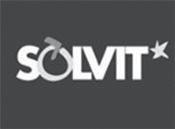

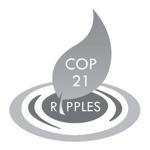
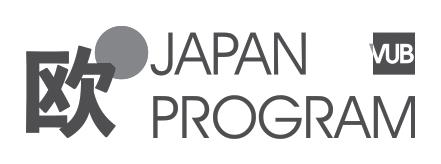

Summer schools
Europe Explained – Inter-University Summer School on EU Policy-making
September 2019-August 2022
Funding scheme: European Commission – Jean Monnet Module
The Summer School on European Policy-making is an intensive two-week study programme with a strong multidisciplinary character, developed and delivered by the Institute for European Studies (IES) at the Vrije Universiteit Brussel, in close cooperation with the Vienna School of International Studies and the
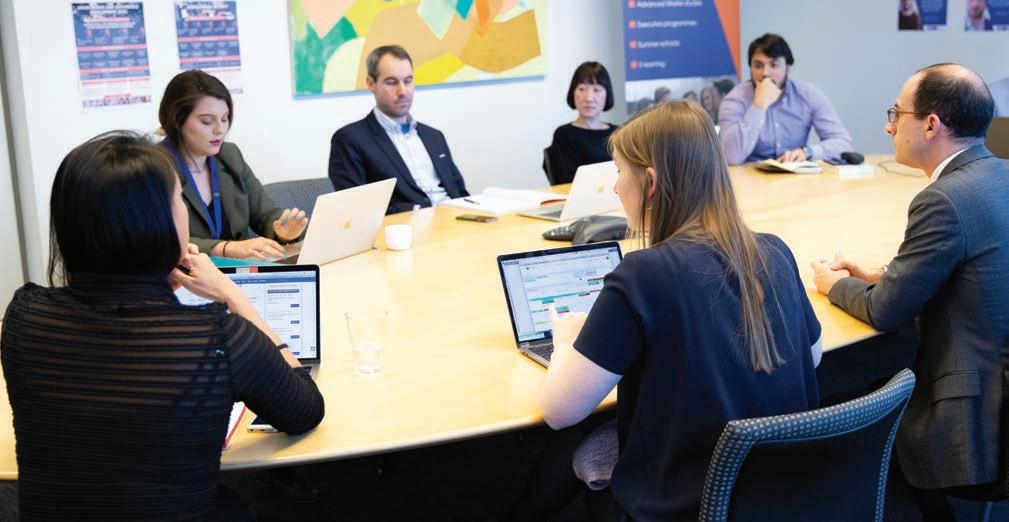
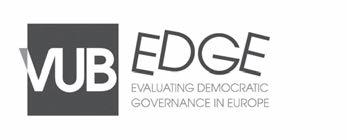
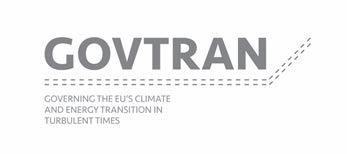
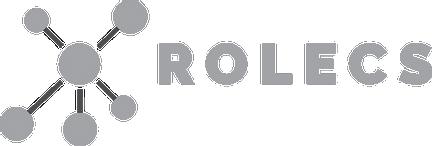

University of Vienna, for the past fifteen years. Since 2013, this is a compulsory component of the IES postgraduate certificate on EU policy-making.
Selection of our prominent externally-funded projects
Institute for European Studies Annual Report 2020 36 Institute for European Studies Annual Report 2020 37
KF-VUB Korea Chair team
CENTRE FOR ENVIRONMENT, ECONOMY AND ENERGY
• Online roundtable dialogue on Climate Neutrality in Belgian, Dutch and North-Rhine Westphalian industrial clusters (2/7)






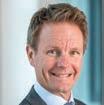
• Roundtable debates on the “Geopolitics of Decarbonisation” (3/7) and on “International climate policy at Paris +5” (27/7)

Teaching
3E professors gave courses in the IES’s PILC and EuroMaster programmes on environmental law, public International and EU law; climate and energy governance, the greening of the European economy and the EU internal market and competition policy. The Centre further contributed to ‘Capstone in Business Studies’ and ‘BA Thesis in Business and Economics’, and continued inter-university seminars on legal and political theory ('Virtuosi'). 3E researchers lectured in e.g. IES Summer School, the College of Europe and University of Eastern Finland. 3E Professors also served as the Vice Dean for Education and the Director of PILC.
Visibility
The 3E Centre focuses on the international and European governance of the environmental, economic and energy transitions and their interactions. It analyses and develops innovative legal and policy instruments and approaches to govern the transitions in the EU and beyond.
Personnel
In 2020, professors Harri Kalimo and Sebastian Oberthür co-directed the Centre, which also included prof. Sven Van Kerckhoven, post-doctoral researchers Ingmar von Homeyer and Carlos Soria Rodríguez, project researcher Ólöf Söebech and twelve pre-doctoral IES researchers. The latter included Matilda Axelson (industrial decarbonisation), Jana Gheuens (‘democratic myopia’ in EU climate and energy governance), Marco Giuli (decarbonisation and security of supply in EU external energy policy), Simon Happersberger (sustainable trade agreements), Laura Iozzelli (legitimacy of transnational climate governance). Gauri Khandekar (climate, energy and industrial policy), Eleanor Mateo (sustainable ‘product service systems’ and trade), Ernesto Roessing Neto (deforestation in developing countries),







Selçukhan Ünekbas (sustainable trade agreements), Aslak Veierud Busch (EU in Arctic governance) and Tomas Wyns (climate, energy and industrial policy). Klaudia Majcher defended her PhD (coherence of data protection and competition law), while IES alumnus, Max Jansson re-joined for Project HILMI and Álvaro Herrero (PILC) for SOLVIT6 training. 3E (senior) associates included: Dave Anderson, Claire Dupont, Lisanne Groen, Kati Kulovesi, Andrea Mairate Klaudia Majcher Paolo Pasimeni, and Koen Van Den Bossche.
Main events
• International expert workshop (16-17/7) and expert hearing (24/9) on carbon and environmental footprints in procurement, and on Extended Producer Responsibility (online sales (3/12), eco-modulation (4/12) and ProductService Systems (9/12))
• Stakeholder meeting (closed) on legal framework for energy communities (23/6)

• Online summit 8ème Sommet de L’économie systémique (1-2/7)
Centre members made various public appearances as keynote speakers, presenters, panellists and conference participants and appeared in Flemish, national and international media. The Jean Monnet Network GOVTRAN continued to be a key flagship project of the Centre reinforcing its visibility in the European climate and energy governance community – see www.govtran.eu.
Main projects

• Climate Friendly Materials Platform (CFMP) (European Climate Foundation (ECF)), 2020

• COP21: Results, Implications, Pathways and Policies for Low-Emissions European Societies (COP21–RIPPLES) (Horizon 2020), 2016-20
• Evaluating Democratic Governance in Europe (EDGE), with ES faculty (VUB Strategic Research Programme), 2017-22



• Geopolitics of Decarbonisation: A European Foreign Policy Perspective (German Foreign Office), 2017-20
• HILMI. Carbon and Environmental Footprint in Public Procurement; and KITUPO. The Circular Economy and Product Policy. (VN-TEAS Finnish Prime Minister’s Office), 2020-21


• Jean Monnet Module: The Economics of European (Dis)Integration, 2019-22.
• Jean Monnet Network Governing the EU’s Climate and Energy Transition in Turbulent Times (GOVTRAN), (Erasmus+) , 2018 – 21
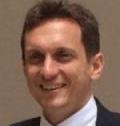

• Policy integration: decarbonisation and security of supply in the EU's external energy policy (FWO), 2019-23
• Production of fully synthetic paraffinic jet fuel from wood and other biomass (Aviation Biofuels) (Commission FP7), 2015-20
• Roadmap to climate neutrality for the Flemish industry (VLAIO), 2020

• Roadmap for ‘power to x’ in Belgium (PROCURA) (Energy transition fund (ETF)), 2020-2025
• Roll out of Local Energy Communities: a cooperative research project (ROLECS) (flux50 programme), 2019-21
• SOLVIT3 (Online training platform) and SOLVIT6 (training) on free movement of goods and mutual recognition (EASME & DG GROW), 2019 - , 2020 (respectively)
• The Centre was involved in a number of further, smaller projects.
Institute for European Studies Annual Report 2020 Institute for European Studies Annual Report 2020 38 39
CENTRE FOR MIGRATION, DIVERSITY AND JUSTICE


The Centre includes 11 doctoral candidates: Fọláshadé M. Ajayi, Sibel Top, Hanna Schneider, Philipp Stutz, Omar N. Cham, Jimmy Hendry Nzally, Xiu Ling Ye Lingyu Xu Yijia Huang Fatma Sevgi Temizisler, and Zoran Nechev
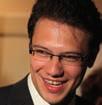






Publications
In 2020, the researchers of the MDJ Centre published 3 books, 14 peer-reviewed journal articles, 12 book chapters, 15 policy briefs, 3 research reports, and several other communications (such as blogposts).
Teaching
The Migration, Diversity and Justice Centre focuses on migration, immigrant integration, justice and home affairs as well as diversity policies (from the local level to the EU and UN). We concentrate in particular on the following sub-themes: EU Justice and Home Affairs, the politics of refugee protection, migration and border control, equality and anti-racism.
The MDJ centre hosts and coordinates the ‘Brussels Interdisciplinary Research Centre on Migration and Minorities’ (BIRMM), which is a recognized VUB Interdisciplinary Centre of Expertise. Bringing together around 100 VUB researchers from 12 disciplines, BIRMM has become a key point of reference for VUB research on migration and minorities-related topics. In 2020, a total of 88 BIRMM researchers and their co-authors have written contributions to the book ‘Migration, Equality and Racism – 44 Opinions’. Published in early 2021, the volume presents their research in plain language and proposes outof-the box solutions on salient policy challenges.
Personnel
Profs. Ilke Adam and Florian Trauner jointly lead the cluster. In 2020, Kristin Henrard newly joined as a



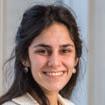





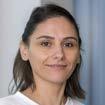
Professor for International Law. Together with Dr Hannah Vermaut, BIRMM coordinator, and Dr. Serena D’Agostino, coordinating the VUB’s Programme on ‘Evaluating Democratic Governance in Europe’ (EDGE), they constitute the cluster’s coordination team. Richard Lewis, who was the originator of this cluster, and Prof. Alison Woodward (VUB emeritus professor) continue to act as advisers. Dr. Angela Tacea implements an FWO post-doctoral project in the field of EU Justice and Home Affairs. Dr. Catherine Xhardez joined the the MDJ Centre in 2020 with an FWO project on comparative immigration federalism. Other postdoctoral researchers include Dr. Irina Van der Vet, who works on 3 EU-funded projects on counterradicalization and EU policing (FAIRNESS, JP-Coops, Mindb4Act), and Dr. Mohammad Salman, who studies refugee integration policies in higher education. Raul Rios acts as a research assistant to Dr. Van der Vet. Dr. Andrew Crosby implements the Empower-Youth project, funded by Innoviris. Laura Westerveen and Malasree Neepa Acharya successfully defended their PhD projects in 2020, on, respectively, policy frames regarding ethnoracial (in)equality and return migration of India’s diaspora entrepreneurs.
Profs. Ilke Adam and Florian Trauner jointly teach the course ‘European Immigration Policy’ for the IES's Euromaster. Prof. Adam is also the convenor of this programme’s course on 'Diversity Policies in the EU'. Prof Kristin Henrard is the program director of the BA in International and European Law at Vesalius College and teaches Introduction to International and European Law, Human Rights, and Legal Aspects of Migration. Members of the Centre also taught in the VUB Master in Political Science, the IES' Postgraduate Certificate, the IES's LLM programme, the IES's Summer Schools, and the Inter-University Master Program in Gender and Diversity (with UGent and UAntwerpen). Outside of IES, the Centre engaged in teaching and training activities with the College of Europe and Sciences Po Paris.
Visibility and events
Even during the Covid-19 pandemic, the Centre’s research themes retained salience. The members were invited to (online) lecture, speak at policy events, and provide commentary for the media. Among the 15 events organized by the Centre were: a roundtable dedicated to how the Covid-19 pandemic impacted the lives and rights of migrants and minorities and a panel discussion on the impact of the Black Lives Matter movement in Europe.
Main projects

• Work Package Leader in the H2020 project ‘BRIGE: Bridges to assess the production and impact of migration narratives’
• Work Package Leader in the H2020 Project ‘WHOLE-COM Exploring the Integration of Post-2014 Migrants in Small and Medium-Sized Towns and Rural-Areas from a Whole-of-Community Perspective'
• Work Package Leader of the EU H2020-project ‘MINDb4ACT’ on tackling radicalization leading to violent extremism

• Jean Monnet Chair ‘EXPAND: Explaining Resilience in EU Justice and Home Affairs’, EU Marie Curie Programme




• 'EMPOWER-YOUTH’ project on levers and obstacles to societal and civic participation of disadvantaged youngsters in Brussels, granted by Innoviris (Anticipate program)

Institute for European Studies Annual Report 2020 Institute for European Studies Annual Report 2020 40 41
CENTRE FOR SECURITY, DIPLOMACY AND STRATEGY
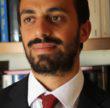
workshop on EU-Japan security cooperatoin was organised in Tokyo (Japan) in cooperation with the EU Delegation in Japan and the Japanese Foreign Ministry, and supported by the EEAS. Secondly, a roundtable on maritime security in the Indian Ocean and the future of the International Order, was supported by the Japanese Mission to the EU. Other events took place virtually. These included a closed-door expert discussion with EU HR/VP Josep Borrell as well as a double event (closed-door and public conference) on 'Maritime Security in the Indo-Pacific: An opportunity for Australia, Japan and Europe?’. The Centre also organized the launch of the volume on 'Emerging Security Technologies and EU Governance'. One of the main highlights of 2020 was the launch of a High-Level Seminar Series in International Security. This seminar series was inaugurated on 23 October with a presentation by Enrique Mora, Vice Secretary General for Political Affairs at the EEAS, and focused on ‘The EU’s role in Sino-American competition’. IES President Prof. Karel de Gucht acted as a discussant. The second session hosted Prof. Marina Henke, Director of the Centre for International Security at Hertie School, and focussed on Germany, Europe and the future of the Transatlantic Relationship. Dr Antonio Missiroli (Assistant Secretary General for Emerging Security Challenges at NATO) acted as a discussant. The third session hosted Stephen Brooks, Professor at Dartmouth College (US), and was devoted to the question of Europe's role in the U.S. Grand Strategy debate and how to restore strong transatlantic ties. Dr Benedetta Berti (Head of Policy Planning at NATO) acted as a discussant. The KF-VUB Korea Chair organised multiple panels, including a public online event entitled 'The Korean Peninsula Faces the US Election' and an event focused on the seventy year history of Colombia's role in the Korean War. Additional seminars included 'Engaging North Korea: Prospects, Benefits and Challenges', 'The 10th anniversary of the EU-ROK Strategic Partnership: Reflections and Hopes' and 'Trade Cooperation Between Pacific Alliance Members and South Korea: Evaluation and Prospects'. The KF-VUB Korea Chair also co-organised the hybrid launch of the publication titled 'Korea Matters for Europe/Europe Matters for Korea'.
The Centre for Security, Diplomacy & Strategy (CSDS) seeks to enhance the understanding of the key contemporary security and diplomatic challenges – and their impact on Europe – while reaching out to the policy community. It builds on a critical mass of scholars with expertise in the areas of security, diplomacy and strategy, and an ample network of policy and expert contacts within Brussels and beyond. The CSDS aims to establish comprehensive theoretical and policy coverage of strategic competition and its impact on Europe, whilst paying particular attention to the transatlantic relationship and the wider Indo-Pacific region.
Personnel
The CSDS is headed by Prof. Luis Simón, and includes Prof. Alexander Mattelaer Prof. Caterina Carta Prof. Olesya Tkacheva Prof. Tongfi Kim, Prof. Luk van Langenhove as well as Prof. Carolin Liss and Prof. Giulia Tercovich. Prof. Ramon Pacheco Pardo coordinates the Korea Chair, Dr. Eva Pejsova coordinates the newly-launched Japan Programme, supported
















by Celine Pajon. In 2020 the CSDS included three associates, Dr. Benedetta Berti, Prof. Richard Higgott, Dr. Michael Reiterer (Distinguished Associate Professor), as well as one visiting professor, Prof. Daniel Fiott and one guest professor Dr. Raluca Csernatoni. In addition, Dr. Jordan Becker, Dr. Liviu Horovitz, Dr. Stephan Klose, and Dr. Antonio Calcara contribute to the activities of the Centre. In 2020 the centre welcomed two Visiting Fellows with the Korea Chair: Prof. Sung Kyoo Ahn and Young-In Lee. In 2020 the CSDS also included the following PhD fellows: Asma Akbar Enrico Barranu, Linde Desmaele, Maximilian Ernst, Fabio Fagiaconi Dimitri Lorenzani, Elie Perot Fabian Tudor Petro Laura Vansina and Maaike Verbruggen. Antonios Nestoras concluded his PhD this year.




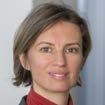




Events


The CSDS organised events to stimulate discussions and bring academics and policy-makers together. Due to the pandemic, the centre held only two physical events this year. A


Teaching

CSDS members taught several courses this year. Luis Simón, Alexander Mattelaer, Raluca Csernatoni and Elie Perot taught courses on 'EU External Relations' and 'European Security', on 'Political Structures and Processes of the European Union' and on 'International Security and Strategic Studies' at the VUB. Caterina Carta, Tongfi Kim, Olesya Tkacheva, Carolin Liss, Giulia Tercovich, Stephan Klose and Antonio Calcara contributed to the course offerings of Vesalius College (VUB). They taught courses offered in the BA programme in International Affairs, in the MA programmes in 'Global Peace, Security & Strategic Studies' and 'Diplomacy & Global Governance' and the Post-graduate certificate in Global Risk Analysis and Crisis Management. Giulia Tercovich remotely coordinated the 2020 Model European Union (MEU) in the Republic of Korea sponsored by the EEAS.
Visibility
CSDS members made various public appearances as keynote speakers, chairs, panellists and conference participants and appeared in national and international media. The Korea Chair and the Japan Programme are the flagship projects of the CSDS that contributed to further enhance its visibility in 2020. CSDS members also published peer-reviewed journal articles, chapters, books, as well as policy briefs and commentaries in leading journals in International Relations and Security Studies and policy-focused prestigious outlets. CSDS members also played an important role in supporting and advising policy-makers, governments and international bodies.
Institute for European Studies Annual Report 2020 Institute for European Studies Annual Report 2020 42 43
CENTRE FOR DIGITALISATION, DEMOCRACY AND INNOVATION
in the LLM in International and European Law Trisha Meyer coordinates the Jean Monnet Summer School on EU Policy-Making. Jamal Shahin is Programme Director of the Advanced MSc in European Integration and also teaches two courses in the programme. Silviu Piros is Head of Programme for the Post-Graduate Cer tificate in EU Policy-Making. Other centre members also contributed to the Jean Monnet Summer School, and hold teaching positions in the VUB Law Faculty, Communication Studies Department, the VECO Communication and Public Relations Programme and at other universities (Ghent University, KU Leuven, UC Louvain, Cyprus International Institute of Management, IBFD’s International Tax Academy, University of Amsterdam).
Visibility
In October 2020, the Centre for Digitalisation, Democracy and Innovation (D2I) was created, with a view to prepare for the launch of the Brussels School of Governance. The Centre conducts cutting-edge academic and policyrelevant research on the ongoing digital transformation of society. We critically examine the evolution of new (digital) modes of governance from an interdisciplinary perspective, specifically multistakeholder and democratic processes that involve private, public, and civil society actors, whilst paying attention to issues of power and participation.
Personnel
Prof. Trisha Meyer leads the research centre. Dr. Ferran Davesa Prof. Marie Lamensch, Prof. Jonas Lefevere, Prof. Jamal Shahin, Prof. Luc Soete and Prof. Georgios Terzis contribute as senior/postdoctoral researchers, while Silviu Piros is our inhouse expert on research in European and global higher education. The centre includes six d octoral ca ndidates: Orsolya Gulyás , Isaïa Jennart (joint VUB-University of Antwerp), Diana Potjomkina (joint VUB-Ghent University), Nadia Tjahja, Sevgi Temizisler, and Nathalie Van Raemdonck. In its first months of existence, it also welcomed two visiting researchers, Miroslav Kantek (Masaryk University) and Clément Perarnaud (Pompeu Fabra University) and
one associate researcher, Mihalis Kritikos (European Parliament).










Events
As part of its start-up activities, the D2I Centre launched a seminar series on the ‘Digital Services Act (DSA) in Perspective’, in collaboration with the Chair 'Fundamental Rights and the Digital Transformation' at VUB-LSTS and the Brussels Privacy Hub. This series of seminars brings leading academic speakers, from different horizons, to present their latest research and analysis on content moderation, intermediary liabilities, competition rules and the regulation of internet platforms. Our virtual seminars ran monthly from October 2020 onwards. In collaboration with the Communication and Public Relations Department at Vesalius College, we also organised two lectures on political marketing during the 2020 US presidential elections and disinformation targeting elections.
Teaching
The D2I Centre provides substantial contributions to the IES educational programmes in managing and teaching functions. Marie Lamensch teaches a course







In 2020 members of the D2I centre were invited to provide expert lectures, moderate panels, speak at policy events, advise policy makers, act as evaluators for H2020 proposals and provide commentary for the media. To provide examples, Marie Lamensch is member of the Commission’s VAT Expert Group and of the WCO’s Working Group on e-commerce; Luc Soete is member of the Science Business Technology Strategy Board; Trisha Meyer delivered a report on freedom of expression considerations in disinformation responses for the UNESCO/ITU Broadband Commission; Jonas Lefevere’s research on Belgian voter opinion featured heavily in the Flemish and Belgian Francophone news; and Nathalie Van Raemdonck has on numerous occasions shared her cyber-security expertise on radicalisation and disinformation on Flemish television and radio. Centre members also published in high-quality journals, delivered papers at international conferences, sat on conference programme committees (e.g. GIG-ARTS, GIGANET) and chaired conference sections (ECPR Teaching and Learning Politics) and standing groups (Standing Group on Political Communication). Members of the centre also helped organise a module on Digital Diplomacy in the UNU-CRIS summer school and hosted the EuroTLC conference. Finally they were visible on social media and through the publication of blogposts (e.g. on the UNU-CRIS and EDGE project websites).
Main projects
• De Stemming. Funded by: VRT and De Standaard. Duration: February – June 2020.
• EDGE: Evaluating Democratic Governance in Europe (Strategic Research Programme, SRP43). Funded by: VUB, executed with the VUB Politics Department. Duration: November 2017 – October 2022.
• Europe Explained – Inter University Summer School on EU Policy-Making. Jean Monnet Module. Funded by: European Commission. Duration: September 2019 – August 2022.
• GREMLIN: contribution of ‘regional’ multistakeholder mechanisms in improving global governance. Funded by: VUB Onderzoeksraad, in the context of suppor t for the United Nations University in Bruges. Duration: October 2017 – September 2022.
• RePAST: Revisiting the Past, Anticipating the Future. Funded by: European Commission, DG Research, H2020 CULT-COOP-02-2017. Duration: 2018-2021.
• Study on ‘Freedom of Expression and Addressing Disinformation on the Internet’. Funded by: UNESCO/ITU Broadband Commission. Duration: February – April 2020.
Institute for European Studies Annual Report 2020 Institute for European Studies Annual Report 2020 44 45
TEACHING PORTFOLIO
EDUCATION - STRATEGIC GOALS
Education is a core component of the IES' strategy. Formally, the Institute is required to issue an average of 50 diplomas per year for its two Master-after-Master Programmes, which the IES has achieved since its inception. Moreover the Institute delivers a blended learning Postgraduate Cer tificate programme, organises an annual Summer School on European Policy-Making and a SNU Summer Training Programme, takes par t in a transatlantic Model European Union (EuroSim) and offers a variety of digital learning modules and executive trainings.
LLM in International and European Law & Advanced Master in European Integration (EuroMaster)
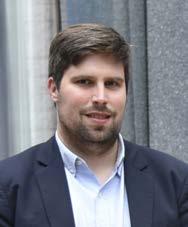
• Delivering 50 diplomas per year on average (as required by Government Agreement) while paying attention to quality control
In 2019-2020, 30 students graduated from our LLM programme and 37 from our EuroMaster programme (total: 67). With 22 enrolled students in our LLM programme and 70 in EuroMaster in the academic year 2020-21, the IES is set to continue to reach the target of delivering 50 diplomas per year on average.
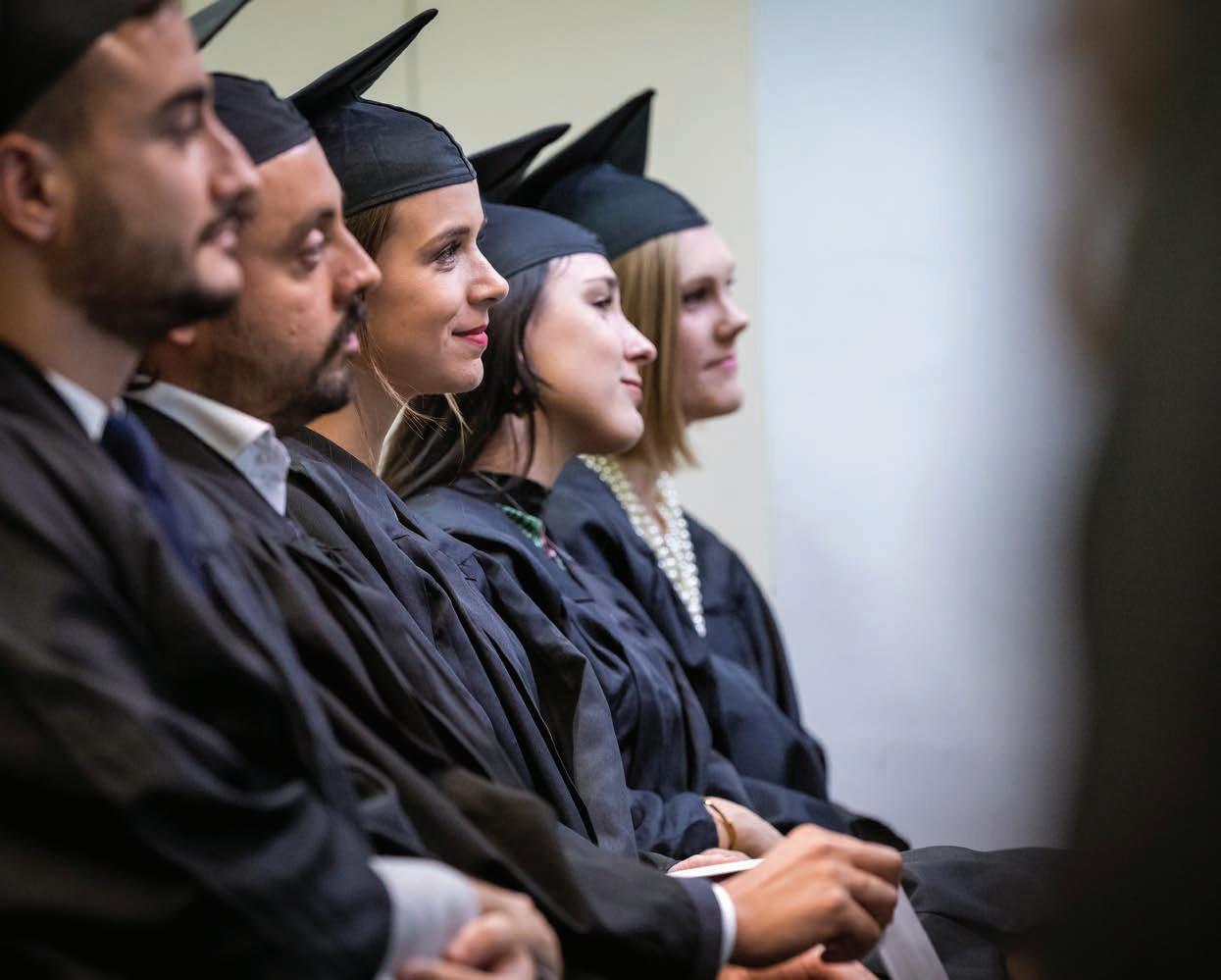
• Ensuring attractiveness of programmes (through programme reviews, enhanced recruitment, quality control, etc.)
After the reform of its EuroMaster curriculum, in which the programme was adapted so as to closely align with the IES research structure by offering students the opportunity to specialise in 2 EU policy areas, the IES also updated the curriculum of its LLM programme. In 2018 a Data Law specialisation option was added. In addition, in 2020, a Moot Court Special Course was added to the LLM programme. The moot court enables students to further deepen their skills in pertinent areas of law and supplement their theoretical knowledge with the practical aspects of international law, human rights law, and EU procedural law. Furthermore, the moot court enhances the students’ ability to conduct practice-oriented research and develop oral presentation, communication, and legal argumentation skills in respected and prestigious venues such as Jessup International Law Moot Court, ELSA Human Rights Moot Court, and European Law Moot Court.
• Ensuring financial viability (through increase in tuition fees, search for external funding, etc.)
The tuition fee of the LLM programme was raised to 13,000 EUR in 2019. In 2020, the IES had a very successful year in terms of search for external funding. Non-governmental funding amounts to 54% of the IES’ total funding (50% in 2016, 53% in 2017, 61% in 2018, and 59% in 2019).
• Enhancing the link between research and teaching (through the development of courses within research clusters and themes that can be offered in the curriculum)
In 2019-20, the IES developed two online courses that are now offered as elective courses in its blended-
Institute for European Studies Annual Report 2020 47
Sven Van Kerckhoven Vice-Dean for Education
EDUCATION STRATEGIC GOALS
learning Postgraduate Certificate programme: the EU Justice and Home Affairs course and the Terrorism and Counterterrorism in Europe course. Moreover, it restructured its research clusters to research centres, with a view to further aligning its teaching and research activities.

• Investigate the development of Executive Master programmes and Research Master programmes at the IES
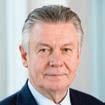
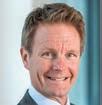

During the last year, substantial progress was made in developing and implementing innovative teaching pedagogies and active learning formats. Further steps will be taken in 2021, based on a common teaching and learning vision. The IES will also investigate potential new offerings at the graduate level to broaden its portfolio and ensure educational excellence focused on European and international challenges.
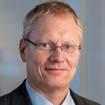
• Digital learning training for the Institute’s teaching staff
In the Spring semester of 2020 the IES set up its dedicated Office for Teaching and Learning Innovation (OTLI), to take the next step in an essential development towards the education of the future. During the ongoing COVID-19 pandemic close to 200 online courses were supported by the OTLI and a selection of about 70 courses was already redesigned, using basic course templates and design guidelines, to enable the development of more inspiring teaching and learning experiences in the future. The OTLI offered online training, workshops and individual advice to about 100 lecturers in 2020. Additional investments were made to improve the live streaming infrastructure in our two largest classrooms.
IES Summer School & Postgraduate Certificate





• Annual organisation of the IES Summer School and (at least one) Postgraduate Certificate; developing pedagogical expertise and exploiting research capacity to further develop educational offers; regular review of contents and consideratioin of a transformation of the Postgraduate programmes into Executive Masters

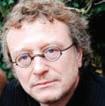
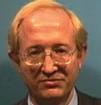
Both the Summer School & Postgraduate Certificate in EU Policy Making (PGC) were organised in 2019-20. 30 students attended the Summer School in 2020, which was organised for the 17th time, but for the first time in an online format. The theme of the Summer School was ‘Human Security in the EU’. In 2020, a total of 21 students enrolled in the Postgraduate Certificate – 14 full-time students and 7 part-time students. Ten PGC students graduated in 2020.
• E-learning modules: updating of platform (2016); integration into existing programmes


A new state-of-the-art e-learning platform (Canvas) was taken into service in 2016. This platform was subsequently integrated into our Study Abroad Programme, in the shape of an EU online course on European Public Policy Analysis jointly taken by Postgraduate Certificate and Study Abroad students. Further courses were prepared in 2017, and the platform was also introduced to the PILC and Euromaster students.
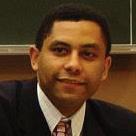
Aims, objectives and developments


The LL.M. in International and European Law of the IES (“PILC”) has over the past 48 years educated more than 1300 law graduates from 109 countries. The programme is tailored for demanding global careers in law, as the impressive positions and profiles of the PILC alumni demonstrate. PILC is developed continuously and systematically on this outstanding legacy and receives very positive external reviews and student feedback. The demand for a post-graduate education in law that is specialised yet broad, covering main areas of European and international law, remains strong. Indeed, the shifts in the global political economy and the challenges posed to a rules-based multilateral world order are fundamental in areas such as climate change or the WTO. COVID-19 pandemic is also leaving its marks on the way that the global society operates. In the EU, recovery from the pandemic is taking place in a Europe where BREXIT has become reality, and that is increasingly tested by internal debates about core issues such as the respect for European values and a common line towards migration and China. The EU is implementing an ambitious strategic approach in response to these challenges under the banners of the Recovery plan for Europe and the European Green Deal. All these developments make for a thrilling context for studies in international and European law.
While keeping a close eye on the trends in the surrounding world, PILC remains cognizant of the stiffening global competition for postgraduate law students. Educational programmes across the globe have been forced to move to virtual teaching platforms during the COVID pandemic. Thanks to PILC’s early adoption of online teaching tools already some years ago, and the leading expertise that the IES as an institute has in online training, PILC has been able to ensure an outstanding learning experience throughout the COVID crisis. We continuously fine-tuned our online education infrastructure and services, so that students were able to flexibly – and safely – get the most out of their PILC experience. The use of cutting-edge online teaching methods, or the increase in competing, virtual teaching offerings has however not changed PILC’s vision as a top tier LLM Programme offered to a carefully selected and very international group of students on-site, in Brussels. In Brussels, the advantages of cutting-
Institute for European Studies Annual Report 2020 Institute for European Studies Annual Report 2020 48 49 LLM INTERNATIONAL AND EUROPEAN LAW
LLM INTERNATIONAL AND EUROPEAN LAW (PILC)
edge online teaching methods can be combined with the knowledge, skills and networks that are available in an unparalleled way in the capital of the EU. The opportunities and uncertainties of the European and global futures can be experienced literally at our doorstep. Moreover, the close, long-term bonds between the PILC students, and between them and professors, can be far better accomplished amongst people in the same physical location.
Thus, while the uncertainties created by the COVID pandemic have obviously affected the record number of applications that PILC received the previous year, the Programme looks confidently into the future. Indeed, reflecting strategic adjustments at the IES itself, the tuition fee structure of PILC was updated to better correspond, on the one hand, the outstanding quality of PILC, and, on the one hand to the outstanding quality of PILC and on the other hand to the actual costs of delivering the Programme. The tuition fee thus was increased from €5,500 to €13,000, although complemented by a comprehensive waiver plan to make the Programme accessible to students with lesser means.
Programme
PILC maintains its vision of offering a truly international group of lawyers a demanding, carefully designed LLM programme that combines essential areas of European and international law The curriculum consists of a broad array of compulsory courses, four specialisation options (Business Law, Data Law and Public Law) and a Master’s thesis on a subject of the student’s choice. The curriculum was fur ther updated during 2020: a Moot Cour t is available as a
new course from 2020-2021 onwards. This course is for 2-3 PILC students, selected on the basis of an internal competition in the beginning of the academic year. The Moot Cour t will be offered during the first year as a joint effort by the IES and the VUB’s Law faculty. A joint team will compete in the Philip C. Jessup International Law Moot Court.
Staff and teaching
Excellence in teaching is another core part of the Programme’s vision. The PILC staff is renowned for its dedication, and offers student-centred education of the highest quality in an environment characterized by active interaction, critical thinking and a convivial atmosphere. The IES staff teaching in PILC in 20192020 were professors de Gucht, Kalimo, Lamensch and Oberthür. Prof Kalimo continued as the Director of the programme (Prof. Joris Co-Director), assisted by Marleen Van Impe as the Programme Secretary and Dr. Carlos Soria, who provided academic assistance for the management in particular in student selections.
As noted, the COVID pandemic changed the end of the academic year 2019-2020 rather dramatically, moving the entire teaching online. The shift required a considerable extra efforts and adjustments from the professors, but worked out very smoothly. In addition to the flexibility of the professors, the IES’s experts in virtual teaching (“OTLI”) provided ample information and support for the online teaching.
LLM INTERNATIONAL AND EUROPEAN LAW (PILC)
COMPULSORY COURSES
COURSE LECTURER
EU Institutional Framework and Judicial Protection Prof. Dirk Arts, Prof. Youri Devuyst
International and Comparative Law Prof. Ricardo Gosalbo Bono, Prof.Stefaan Smis
Globalisation, International Law & Sustainable Development Prof. Servaas van Thiel
International and European Protection of Human Rights Prof. Serge Gutwirth
EU Economic Law Prof. Tony Joris
International Economic Law and Organisations Prof. Frank Hoffmeister
International and EU Competition Law Prof. Ben Smulders
EU External Relations Prof. Karel De Gucht
OPTIONAL COURSES
Public Law Option Business Law Option Data Law Option
COURSE LECTURER COURSE LECTURER COURSE LECTURER
Case Study on Public International/EU Law
EU Environmental Law in an International Context
Prof. Harri Kalimo
Case Study on European Competition Law Prof. Tony Joris
International and European Data Protection Law Prof. Christopher Kuner
Prof. Harri Kalimo, Prof. Sebastian Oberthür
International and European Criminal Law Prof. Paul de Hert
European and International Private Law Prof. Arnaud Nuyts Data Policies in the European Union Prof. Gloria Gonzalez Fuster
International and European Taxation
Prof. Marie Lamensch
Case Study on Global Privacy and Data Protection
Prof. Joris Van Hoboken
A voluntary course on “Legal research” that supports the thesis writing process. Prof. Harri Kalimo & Prof. Carlos Soria
MASTER THESIS
Institute for European Studies Annual Report 2020 Institute for European Studies Annual Report 2020 50 51
LLM INTERNATIONAL AND EUROPEAN LAW (PILC) Students
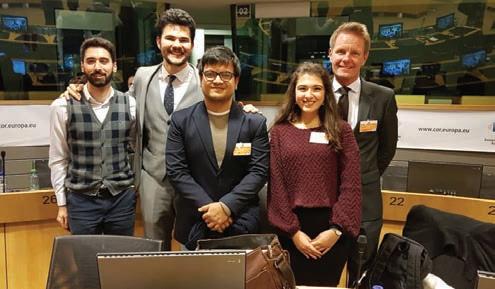
The PILC philosophy of a limited class size ensures high interaction amongst the students and professors – and creates a bond that lasts. The alumni, together with the professors, create a wide global network to facilitate the students’ entry into a wide range of legal careers.
The PILC students’ year 2019-2020 star ted off by the traditional visit to a Press briefing at the hear t of the Commission, the Berlaymont. The visit was hosted by PILC Professor Ben Smulders, with whom the students engaged in a lively discussion after the briefing. The 2019-2020 PILC cohor t also made history in the EU: PILC students chaired an actual Council Working Party meeting. This unique oppor tunity arose as a par t of a research project, in which Prof Kalimo and other IES researchers took part, analysing ways to better involve young people in political decision-making. What better way to do this, than by reversing the roles and giving the baton in policy work to the youth itself? PILC students Selkuçhan Ünekbas, Arjen Banerjee, Maria Enescu and Javier Lopez each chaired a discussion
with panelists in the working par ty. The Presidency hosting the event praised the input as “inspirational”.
Another exciting extra-curricular activity was the opportunity to take part in the “EuroSIM” simulation game on the EU’s Ordinary Legislative Procedure. EuroSIM is arranged annually by over 20 European and American universities. Four PILC students had the opportunity to take part in the event, which took place this year in Antwerp. Another traditional PILC activity, the field trip to the Cour t of Justice, fell regrettably victim to the early chaos of the COVID-crisis in spring 2020, and needed to be cancelled.
More broadly speaking, the PILC students were valiant in adjusting to the COVID-circumstances, confined for some weeks to their apartments in a foreign country. Their par ticipation in the classes continued without interruptions, while the social interactions moved online during the lock-down. Besides the students’ own fora and social media connections, a specific “PILC Community” was set up and convened weekly, with the students meeting with the programme director and LLM students visiting Council
LLM INTERNATIONAL AND EUROPEAN LAW (PILC)
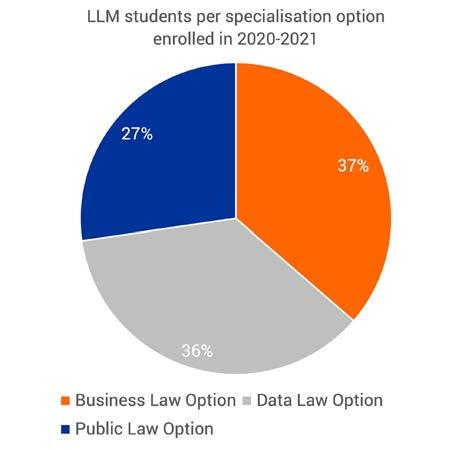
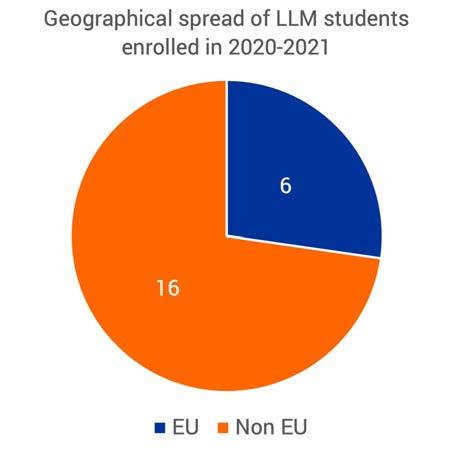
the secretary to offer one another updates on the situation, and simply to spend time together. The spirits remained high at large, as was also evident in the July and September Graduation ceremonies, which were arranged for the first time in real time online. The IES Events and Online teams had created a setting, where each graduate could be promoted individually, at a distance, and the IES alumni, professors and management offered their congratulations. In the academic year 2019-2020, 30 students graduated from the programme. 3 students graduated with the grade greatest distinction, 13 with great distinction, 9 with distinction and 5 with satisfaction. 1 graduate obtained the grade Summa Cum Laude on the thesis, which entitled him to the Outstanding Master Thesis Award. Speeches by PILC Alumnus Ilkka Salmi, a Director in the European Commission in DG ECHO (European Civil Protection and Humanitarian Aid Operations), and a student representative were a part of the memorable graduation ceremony in July 2020.
As for the academic year 2020-21, the COVID pandemic and the ensuing travel restrictions retained their grip. In the end, of the 22 students that enrolled, half were not able to join the cohort on-site in Brussels, but exceptionally follow the Programme fully online from their home countries. This was one of the many scenarios that PILC had prepared for, and so the “hybrid” teaching took off in fall 2020 as planned. The teaching methods were subsequently adjusted on par with the evolving COVID situation during the autumn. The current 2020-2021 PILC students represent 18 countries. 6 come from the EU, the rest from other European countries, the Americas, Africa and Asia.

Institute for European Studies Annual Report 2020 Institute for European Studies Annual Report 2020 52 53
MSC EUROPEAN INTEGRATION (EUROMASTER)
Programme
Our EuroMaster programme has been tailored to give international postgraduate students and professionals the opportunity to combine a demanding and rewarding study programme on European Integration with their professional activities. Lectures are organised in the evenings and the programme can be completed over either one or two years.
The programme comprises 60 ECTS and starts with a common core of courses on the essential features of European Integration and research skill development. After this, students can choose two options out of four specialisation streams, in Economics, Environment, Migration, and Security The programme ends with a 15,000word thesis worth 15 ECTS, allowing the students to engage in an exciting intellectual journey on the topic of their choice, with a supervisor from the VUB. In 2019-2020, students wrote theses about a wide range of topics on a number of aspects of contemporary European policymaking.
Euromaster in times of COVID-19 and Brexit
As with all programmes at the VUB, our programme underwent a dramatic transformation at the beginning of 2020 when the Coronavirus arrived in Belgium. Our students were able to continue to benefit from an excellent learning environment, facilitated by trained teachers and a solid learning platform. Despite the challenges and the uncertainty, the courses ran smoothly, with webinars and online simulations replacing traditional teaching formats. Our students continued to stay in touch with each other via social networks and a platform designed specifically for community development'. They were also able to stay in touch with professors through our digital platforms, which were enhanced and standardised across all courses. We continuously fine-tuned our online education infrastructure and services, so that students were able to flexibly – and safely – get the most out of their ‘Euromaster’ experience. The quality of the theses actually improved remarkably this year, as five (5) EuroMaster students were awarded a Thesis Prize for high quality theses submitted in the first examination session. We also held our first ever online graduation ceremony!
MSC EUROPEAN INTEGRATION (EUROMASTER)
COMPULSORY COURSES
COURSE LECTURER
Economics of the European Union Prof. Caroline Buts



Policymaking and Interest Representation in the EU Prof. Jamal Shahin


History and Law of the European Union Prof. Youri Devuyst
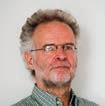
Research Methods Lab Prof. Jamal Shahin
SPECIALISATION OPTIONS
European Economy Migration and Europe
COURSE LECTURER COURSE LECTURER
European Monetary and Fiscal Policy Prof. Leo Van Hove, Prof. Loïc Debels Diversity Policies in the EU Prof. Ilke Adam

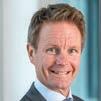



EU Internal Market & Competition Policy Prof. Harri Kalimo European Immigration Policy Prof. Ilke Adam, Prof. Florian Trauner
European External Relations and Security Policy European Environmental Governance
COURSE LECTURER COURSE LECTURER
European Security and Counter terrorism Prof. Raluca Csernatoni The Greening of the European Economy Prof. Harri Kalimo
European External Relations Prof. Luis Simon Navarro European Climate and Energy Governance Prof. Sebastian Oberthür
MASTER THESIS
Institute for European Studies Annual Report 2020 Institute for European Studies Annual Report 2020 54 55
MSC EUROPEAN INTEGRATION (EUROMASTER)
Students
MSC EUROPEAN INTEGRATION (EUROMASTER)
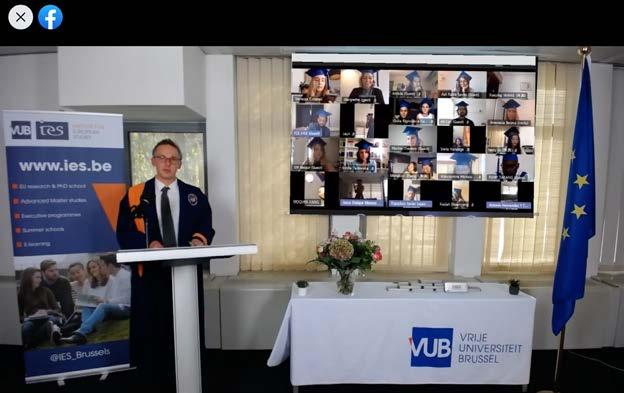
A total of 37 students graduated from the 2019-2020 programme. The EuroMaster Programme has always boasted a versatile, international selection of students from all around the world, and taken into account a balanced representation of geographic regions, including, when possible, support for students from developing countries.
In September 2020, 70 students were enrolled in the Programme: 42 new students star ted (28 full time/one year, 15 part time/two years), and 27 students re-enrolled from previous academic years to continue their part-time studies. Notwithstanding the COVID-19 situation, and an increase in the tuition fees, these figures remain constant compared with those of the previous year.
EuroMaster online graduation, July 2020

As the academic year 2020-2021 started under the same cloud of contamination risk, teaching moved to a hybrid situation, where we were able to cater onsite for students in Brussels as well as online for those who had been unable to move to Belgium, due to travel restrictions. This provided oppor tunities for teaching and learning innovation, as we adapted our teaching programmes and were also able to invite visiting speakers from further afield (e.g the head of the European Movement in Latvia) to give sessions to our students.
In both the hybrid and purely online situations that we saw in 2020, our students and teachers were able to yake really positive and constructive steps towards making the challenging learning environment a creative and fruitful one.
Despite Brexit, the Euromaster programme continues to participate in a double degree partnership with the University of Warwick, which allows students to combine the Warwick Master programme in Politics with our Euromaster programme. Students who follow the double degree track only need to submit one thesis for both degrees.
The most popular combination of specialisations in 2020-2021 was Security and Migration. The graph highlights the breakdown of the combination of our different specialisations for the 2020-2021 academic year. Students from the VUB Master programme in European and International Governance were also able to attend these specialisation courses: a total of 38 students did so in 2019 and four of these subsequently went on to register for the Euromaster programme for 2020-2021. At the end of the first semester 49 EIG students were registered in the 4 specialisation courses.

Institute for European Studies Annual Report 2020 Institute for European Studies Annual Report 2020 56 57
MSC EUROPEAN INTEGRATION (EUROMASTER)
POSTGRADUATE CERTIFICATE IN EU POLICY-MAKING
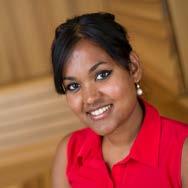
Characteristics and objectives
I moved to Brussels to immerse myself in the EU policymaking process. The Euromaster was a great way to learn about the institutions in depth, while meeting people at the Commission and various other industrial, non-profit, and academic organizations. I particularly enjoyed how professors combined theory with practical examples, and academic and professional experiences, to deliver more informed lectures. Most valuable are the specializations: I was able to study at the intersection of economics and security, paving the way to breakdown silos in my professional career.
The Postgraduate Cer tificate (PGC) in EU Policy Making combines a number of core and elective online courses with the Inter-University Summer or Winter School on EU Policy Making, using blended learning pedagogies. This academic programme aims to provide students and professionals with sound knowledge on the history and theories of European integration, the functioning of the main EU institutions, their role in the decision-making process, the principles and characteristics of EU law, and the main aspects of EU internal and external policies. The programme can be completed in one year (full time) or two years (part time).
The course offerings currently consists of three core courses and four electives. Students are required to take all core courses and two electives.
Core courses
• History and Theories of European Integration (4 ECTS)
• European Union Institutions (4 ECTS)
• EU Decision Making and Law(4ECTS)
Elective courses
• European Union Public Policy Analysis (4 ECTS)
• European Union Foreign Affairs (4ECTS)
• EU Justice and Home Affairs (4ECTS)
• Terrorism and Counter-terrorism in Europe (4 ECTS)
The learning design is centered on active learning, and combines the asynchronous aspects of online learning with interactive assignments, collaborative problem-based learning, and peer feedback. PGC students are guided by tutors throughout the academic year, that assist them in
the learning process, offering a more personalised learning experience. The courses are complemented by the twoweek interactive Inter-University Summer or Winter School on EU Policy Making, which takes place in February or July (see separate section for further details).
Developments and student statistics in 2020
In 2020, a total of 21 students enrolled in the programme –14 full-time students and 7 part-time students. Out of the 21 enrolled students, ten graduated in 2020, three defered the summer school for 2021, and one student dropped out. All part-time students re-enrolled for their second year of the programme. The programme prides itself on its diversity counting in 2020 a total of 15 different nationalities from across three continents: Europe (Austria, Belgium, Denmark, France, Greece, Germany, Luxemburg, Netherlands, Romania, Spain, Switzerland, UK), Asia (Phillippines), and North America (Canada and the US).
Staff
In terms of human resources, the Head of Programme Silviu Piros manages the academic aspects of the programme as well as curriculum development and teaching (together with associate researchers and invited experts), while Student Registration Officer Marion Tomsett handles the administration of the programme.
Institute for European Studies Annual Report 2020 Institute for European Studies Annual Report 2020 58 59
Kulani Abendroth-Dias
EuroMaster Alumna Class of 2020
JEAN MONNET SUMMER SCHOOL ON EU POLICY-MAKING
At the beginning of our rather exceptional COVID-19 summer, thirty international students participated in the InterUniversity Summer School on EU Policy-Making. This was the 17th edition of our long-standing summer programme, but different from previous years, the intensive two-week course was held online from 6-17 July 2020.
The summer school attracts students and young professionals who wish to broaden their knowledge of the European institutions, European law and the European decision-making process in general. The summer school can be taken as a stand-alone course (5 ECTS) or as part of the Post-Graduate Programme on EU Policy-Making.
Thematically, human security in today’s EU was in the spotlight. While touching upon a wide variety of EU policy fields, we offered participants insights into several aspects of human security through a digital and civil rights-based lens
JEAN MONNET SUMMER SCHOOL ON EU POLICY-MAKING

(e.g. freedom of expression, data protection, migration, anti-discrimination).

The summer school was held in synchronous online format, via the Canvas learning platform, with a highlevel of interaction between students and lecturers. COVID-19 forced us to think out-of-the-box! We ran our role play exercise in which students simulated an ongoing policy-making procedure fully online, making extensive use of break-out sessions and discussion forums. On a social level, we organised daily challenges and informal exchanges.
A much-appreciated feature of the summer school was the exclusive insights from EU practioners, which replaced on-site study visits. In this context, we held a public event, open to summer school alumni and other externals, in which Jurek Kuczkiewicz, Strategic Advisor Communication & Media to the President of the European Council Charles Michel, shared his insights on how the President of the European Council has tackled these past months of crisis.
The online summer school was an exciting challenge. We are very grateful to our colleagues for their support, both on-screen and behind the scenes.
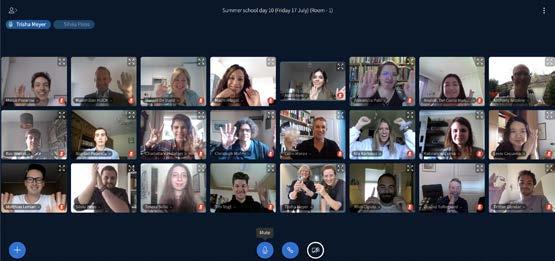

I have participated in the Summer School on EU Policy Making 2020. Despite the fact the course had to be held online for the first time, due to the COVID context, the organizers managed to keep it interesting, challenging and interactive! We did workshops, brainstorming, case studies, and a simulation game which enabled us to put the theory in practice with direct feedback from experts in the field. I would highly recommend the short but intensive programme for anyone with a political, societal or general European interest.
of 2020
Institute for European Studies Annual Report 2020 Institute for European Studies Annual Report 2020 60 61
Jean Monnet Summer School online graduation, July 2020
Charlotte Vanstallen Summer School on EU Policy Making participant Class
The European Commission's suppor t for the production of this publication does not constitute an endorsement of the contents, which reflect the views only of the authors, and the Commission cannot be held responsible for any use which may be made of the information contained therein.
OFFICE FOR TEACHING AND LEARNING INNOVATION OFFICE FOR TEACHING AND LEARNING INNOVATION
courses was already redesigned, using basic course templates and design guidelines, to enable the development of more inspiring teaching and learning experiences in the future. By laying the groundwork in 2020, we aim to create a common teaching framework for all programmes in the School in 2021. This will, over time, allow for the flexible usage of teaching resources and suppor t the development of a common BSoG identity To ensure high-quality educational products, a new quality assurance framework will be developed in 2021.
In 2020, a new educational strategy was presented to the Board of the Brussels School of Governance and the Education Council by Vice Dean for Education Sven Van Kerckhoven. With the establishment of an Office for Teaching and Learning Innovation (OTLI) in the Spring Semester of 2020, the School has taken the next step in an essential development towards the education of the future. We wanted to pass a clear message to our current and future students: no matter what type of learning experience you will have with us, face-to-face, blended or fully online, it will always be personal, flexible, interactive and high-quality.
Personnel
The OTLI is directly supervised by the Vice Dean for Education and in 2020 the team consisted of Chris Janssens (Teaching & Learning Innovation Officer), Jelle De Smet (Teaching & Learning Innovation Officer), Koji Yamauchi (Teaching & Learning Innovation Officer) and René Hermens (Senior Expert Teaching & Learning Innovation).
OTLI’s mission in a nutshell
The OTLI facilitates the implementation of the educational strategy by serving as a knowledge hub focusing on pedagogical innovation and the use of technology to enhance learning for teaching staff
in all educational programmes of the School. It is an advisory unit for the Vice-dean for Education (education policy) and the Education Council (curriculum/course design and development). Together with the BSoG teaching staff, the team works on the design and implementation of sustainable teaching and learning experiences (based on our new teaching and learning concept ‘STEP’) that aim to improve the student learning experience for all course formats, while making teaching more enjoyable in the process. As a result, we’re creating a portfolio of teaching scenarios and tools, supporting documents and, in due time, a set of courses that support life-long learning (BSoG Plus). We also support project teams in designing and developing innovative educational outputs.
The OTLI is focused on five domains that are tightly linked to the School’s educational strategy:
1. Pedagogical advice for teaching and learning innovation
2. Continuous professional development

3. Permanent quality assurance



4. Canvas support
5. Infrastructure
6. Educational projects
In 2020, the OTLI has expanded its scope to all programmes in the School. During the ongoing COVID-19 pandemic close to 200 online courses were supported by the OTLI and a selection of about 70
Courses were offered to 646 students in over 10 different timezones using a combination of face-to-face, blended and online classes. Over 95% of all classes organized during the COVID-19 pandemic were effectively taught by our teaching staff, guaranteeing the continuity of high-quality education for all of our students.
In order to ensure a student-centered approach to virtual and physical community building and to accommodate the specific social needs of our students, the VeCo student community was established. This ever-growing and constantly evolving initiative not only organises various social activities but also provides students with an additional platform to connect with their peers.
To suppor t and guide our teaching staff in delivering the best possible learning experiences, we offered online training, workshops and individual advice to about 100 lecturers in 2020. Additional investments were made to improve the live streaming infrastructure in our two largest classrooms, resulting in high-quality lecture streaming capabilities for emergency remote teaching scenarios.
Lastly, we have also supported the educational outputs of several IES projects such as SOLVIT, GOVTRAN, EUIA and the Summer School.
Focus and future
The team at the OTLI has focused their effor ts on the following domains in 2020: pedagogical advice for teaching and learning innovation, continuous professional development, permanent quality assurance, Canvas LMS support, infrastructure and projects.
Over the following period, we will shift our focus to further developing and suppor ting the educational concept (STEP), a quality assurance framework and a new offering of professional development initiatives.
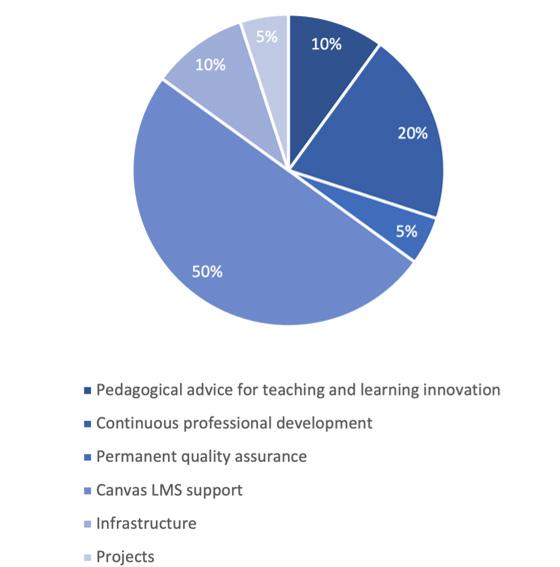
Institute for European Studies Annual Report 2020 Institute for European Studies Annual Report 2020 62 63
COMPLETED PhD PROJECTS
Antonios Nestoras
PhD in Political Science, February 2020
On Wednesday 19 February 2020, IES PhD candidate Antonios Nestoras defended his doctoral thesis entitled “Belonging to the West? Geopolitical Mythmaking in Modern Greece from the Enlightenment to the Euro-crisis." It was a double doctoral degree from the Institute for European Studies at the Vrije Universiteit Brussel and University of Antwerp, promoted by IES Prof. Luis Simon and Prof. David Criekemans (Universiteit Antwerpen). Further members of the jury were Prof. Jorg Kustermans (Universiteit Antwerpen), Prof. Edith Drieskens (KU Leuven), Prof. Angelos Chryssogelos (Metropolitan London University) and IES Prof. Florian Trauner who served as a Chairman.
Alexandra Mihai
PhD in Educational Science, July 2020
On 6 July, IES Associate Researcher Alexandra Mihai defended her PhD in Educational Sciences. Alexandra’s thesis is entitled: "Teaching Politics with Technology at European Universities: The Interplay between Technology and Pedagogy in Political Science as a Teaching Discipline". Her disser tation explores the way technology is integrated in the teaching practice and institutional structures at European universities in the case of political science as a teaching discipline and was supervised by Prof. Frederik Questier & Prof. Chang Zhu (Faculty of Psychology and Educational Sciences, Vrije Universiteit Brussel).
Klaudia Majcher
PhD in Law, September 2020
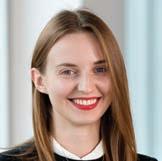
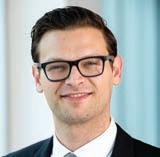
On 4 September Klaudia Majcher successfully defended her PhD entitled "Coherence between EU Data Protection and Competition Law in the Digital Market." The thesis explored the ways how competition and data protection could positively interact and reinforce each other in the EU’s digital market. This is a very topical thesis. It is also amongst the first ones to explore this important topic, and manages to do in a captivating way” praised PhD Jury member, Prof. Peggy Valcke from KU Leuven in her assessment of the thesis. Professor Orla Lynskey (LSE), Caroline Buts (VUB) and Christopher Kuner (VUB) fully shared the sentiments, and
COMPLETED PhD PROJECTS
with Jury Chair Prof. Trisha Meyer and the co-promoters, prof. Ben Smulders and prof. Harri Kalimo, predicted Klaudia a bright academic future in exploring the puzzles of the digital market
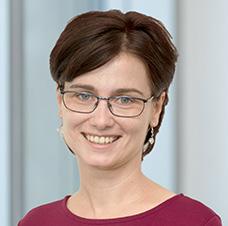

Laura Westerveen
PhD in Political Science, October 2020
On 9 October 2020 Laura Westerveen successfully defended her PhD thesis entitled "Ethno-racial (In)equality in Belgium and Germany: Understanding Policy Frames”. Laura’s dissertation explores the framing of inequalities along ethno-racial lines in policy discourses. In par ticular, it identifies different types of policy frames’ surrounding these inequalities in Belgian and German education and employment policies. Laura’s promotor was IES Professor Ilke Adam. The PhD defense was chaired by IES Prof. Florian Trauner. Other members of jury were Prof. Eline Severs (VUB), Prof. Sophie Withaeckx (VUB/UMaastricht), Prof. Saskia Bonjour (Universiteit Amsterdam), Prof. Christof Roos (Universität Flensburg) and Prof. Gökçe Yurdakul (Humboldt Universität, Berlijn).
Malasree Neepa Acharya
PhD in Political Science, November 2020
On 23 November 2020, Malasree Neepa Acharya successfully defended her PhD thesis on ‘Anchoring Circulation of India’s Diaspora Entrepreneurs: Creating Cosmopolitan Home and Work Lifeworlds in Bangalore’s Interconnected Entrepreneurial Ecosystem’. Neepa's copromotors were IES Prof. Ilke Adam and IES Prof. Alison Woodward. The jury was chaired by IES Prof. Sebastian Oberthür and consisted of IES Prof. Jamal Shahin, Prof. Roger Noll (Stanford University, USA), and Prof. Noelle Brigden (Marquette University, USA).

Institute for European Studies Annual Report 2020 Institute for European Studies Annual Report 2020 64 65
PUBLICATIONS

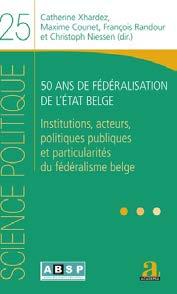
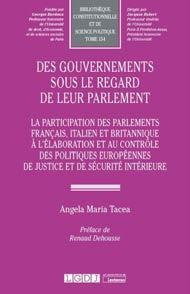

2020 Publications at a glance
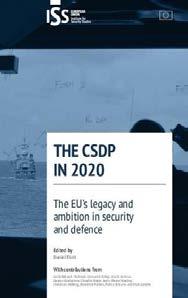
• Books: 5
• Book chapters: 40
• Articles in scientific journals with international peer review: 29

• Articles in scientific journals without international peer review: 4
• Papers presented at conferences: 2
• Unpublished contributions to conferences: 2
• Commissioned reports: 10
• Other contributions: 4
Institute for European Studies Annual Report 2020 67
PUBLICATIONS
IES Policy Briefs, launched in 2012, are timely, concise and policyrelevant publications. They are geared towards policy-makers and other interested publics. They are available for download on our website. Hard copies are provided at IES events and on request. We also distribute Policy Briefs to our networks including the relevant Committees of the Flemish, Belgian and European Parliaments.
POLICY BRIEFS & PAPERS
Policy Briefs
1. Energy cooperation between the EU and Switzerland – partners by destiny in search of a new model, Philipp Thaler, January 2020
2. How can educators contribute to the prevention of radicalisation and violent extremism in Belgium and beyond?, Irina van der Vet and Daisy Bisoffi, May 2020
3. Epidemic zoonoses and climate change: high time to tackle root causes and build adaptive capacities, Lisanne Groen, Jana Gheuens and Matilda Axelson, May 2020
4. European recovery post-COVID19 and the Green Deal, Gauri Khandekar, Marco Giuli and Sven Van Kerckhoven, June 2020

5. The Geopolitics of Supply: towards a new EU approach to the security of supply of critical raw materials?, Vasileios Theodosopoulos, July 2020
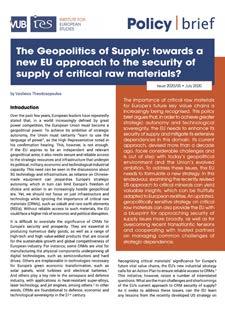
6. Harnessing international climate governance to drive green postpandemic recovery, Wolfgang Obergassel, Lukas Hermwille, Sebastian Oberthür, July 2020
7. Why misery loves company: the rise of conspiracy theories and violent extremism, Raul Rios, November 2020
POLICY BRIEFS & PAPERS
KF-VUB Korea Chair Policy Brief Series
1. Unpacking Seoul’s unhappiness with Trump, Dr Ramon Pacheco Pardo, January 2020
2. Give bombs a chance – for peace, Tongfi Kim, February 2020
3. Pride and prosecution in the Korean Ministry of Justice, Maximilian Ernst, March 2020
4. The making of South Korea’s COVID-19 test success, Dr. Ramon Pacheco Pardo, April 2020
5. Peace is more profitable: private sector inclusion in the Korean Peninsula peace process, Riccardo Villa, April 2020
6. Moon’s three years in office speech: a post-pandemic address, May 2020
7. South Korea’s corona-diplomacy in the soft power race, Young-in Lee, May 2020
8. South Korea’s COVID-19 success: the role of advance preparations, Ramon Pacheco Pardo, Jeongho Lee, May 2020
9. South Korea’s new deal: will it lead the digital and green industry?, Nagyeong Kang, June 2020
10. The 10th anniversary of the EU-Korea strategic partnership, Dr. Michael Reiterer, July 2020
11. The fate of South Korea’s strategic ambiguity to the US and China, Dr. Sung Kyoo Ahn, July 2020
12. 5G in Europe and South Korea: navigating the tech landscape, Paula Cantero Dieguez, September 2020
13. Biden, Trump and Moon: prospects for the US-South Korea relationship post-2020, Linde Desmaele, October 2020
14. The South Korea that Biden encounters, Dr. Ramon Pacheco Pardo, November 2020
15. The South Korean defense industry in numbers: Is the new dawn coming?, Dr. Sung Kyoo Ahn, December 2020
16. The tenth anniversary of the EU-ROK strategic partnership: successes, failures, and prospects, Dr. Ramon Pacheco Pardo, December 2020
Institute for European Studies Annual Report 2020 69
68
KOREA CHAIR REPORTS
KF-VUB Korea Chair reports
1. Mapping Out EU-South Korea relations: key member states’ perspectives, March 2020
2. Beyond traditional security: South Korea’s positioning towards the cyber, energy, maritime and trade security domains, October 2020
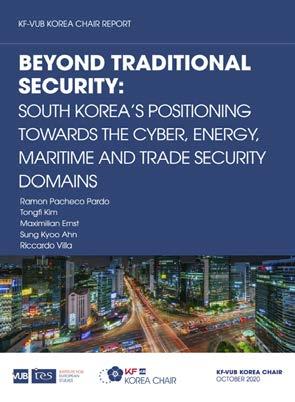
3. Mapping Out EU-South Korea relations: key member states’ perspectives (Volume II), November 2020
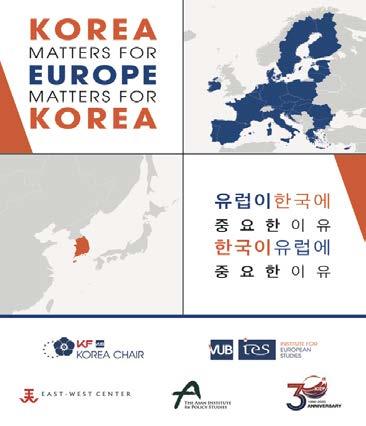

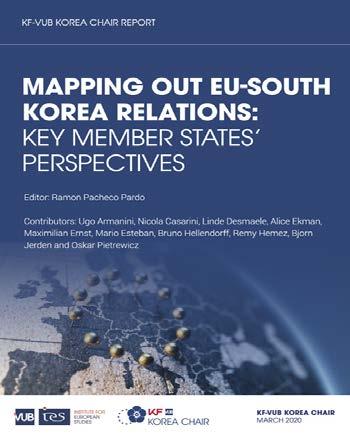
4. Korea Matters for Europe/Europe Matters for Korea, December 2020
Other reports with the contribution of IES experts
Naar een koolstofcirculaire en CO2-arme Vlaamse industrie
On 10 November 2020 the results of the study “How can we transform the Flemish industry, to ensure it can thrive in a climate-neutral Europe by 2050?” were presented to over 200 stakeholders in the presence of the Flemish minister of inno vation Hilde Cr evits. This study was per formed b y Climact, Deloitte, the Antwerp Management School and the Institute for European Studies ( VUB). The study pr esents options t o achie ve deep emission reductions towards climate neutrality by 2050 by Flemish industry, a roadmap towards this goal, and the enabling policy framework.
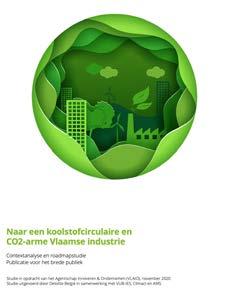
Legislative options and obstacles for energy communities in Belgium
The European legislation establishing the climate and energy policy framework for 2030 introduces 'energy communities' as a major innovation in order to advance renewable energy and the energy transition. Under the relevant EU Directives, the applicable provisions have to be transposed into national law this year. To suppor t this process in Flanders and Belgium, par t of the Flemish funded Flux 50 project called ‚ROLECS‘, or, Roll Out of Local Energy Communities, explores the existing legal frameworks for energy communities at national level and how these could be adapted to comply with European requirements and to facilitate the creation and development of energy communities.
Balancing
Act: Countering digital disinformation while respecting freedom of expression
The Broadband Commission for Sustainable Development, co-founded by UNESCO and ITU, launched a comprehensive new research study on one of the world's most difficult challenges: ‘Balancing Act: Countering digital disinformation while respecting freedom of expression’. The book was published in October 2020, in the context of the Commission’s 10th Anniversary.
The role of teachers in prevention of violent extremism and radicalisation in schools: the Belgian experience
The role of educators in the prevention of violent extremism and radicalisation has been widely discussed in Belgium since the 2016 Brussels attacks and due to the current rise of right-wing extremists in Europe and in the country. This paper describes the results of the pilot project developed within the European Union Horizon 2020 project, Mindb4ACT. The pilot was an experiment on designing innovative solutions for teachers of secondary schools in Belgium.
Institute for European Studies Annual Report 2020 Institute for European Studies Annual Report 2020 70 71
OTHER REPORTS
IES IN THE MEDIA

MEDIA APPEARANCES IN 2020
1. Ramon Pacheco Pardo : North Korean leader’s warning of new weapon signals tougher slog for talks
1 January 2020 in: The Wall Street Journal
2. Ramon Pacheco Pardo : [The Point] Could S. Korean exports rebound in 2020 ?
2 January 2020 in: Arirang Issue
3. Ramon Pacheco Pardo : has North Korea given up on a deal with Donald Trump?
3 January 2020 in: The National Interest
4. Alexander Mattelaer : NAVO schort haar missie in Irak op
6 January 2020 in: VRT NWS
5. Ramon Pacheco Pardo : Former US official: "North Korea is expected to return to talks with a correct calculation"
13 January 2020 in: RFA
6. Ramon Pacheco Pardo : Former US official: "North Korea is expected to return to talks with a correct calculation"
13 January 2020 in: RFA
7. Mohammad Salman Witte raven in het hoger onderwijs
15 January 2020 in: De Standaard
8. Ramon Pacheco Pardo : Putin's, Xi's ruler-for-life moves pose challenges to west
17 January 2020 in: The New York Times
9. Ramon Pacheco Pardo : N. Korea’s new 'blunt' foreign minister may reinforce foreign policy realignment
21 January 2020 in: VOA
10. Ramon Pacheco Pardo : Čína naháňa vírus a zatvára mestá
24 January 2020 in: Pravda.sk
11. Ramon Pacheco Pardo Korea-EU cooperation Is essential to build peace on the Korean Peninsula (in Korean)
12 February 2020 in: RFA
12. Ramon Pacheco Pardo Ramon Pacheco Pardo provides testimony to the EP SEDE subcommittee
18 February 2020 in: European Parliament
13. Karel De Gucht UK ‘could only join Horizon Europe with transition extension’
21 February 2020 in: Times Higher Education
14. Ramon Pacheco Pardo Historia coreana, historia universal
22 February 2020 in: El País
15. Ramon Pacheco Pardo Interview with Ramon Pacheco Pardo (starting at 4:51)
2 March 2020 in: Arirang News
16. Ramon Pacheco Pardo it’s time for the European Union to talk to North Korea
2 March 2020 in: 38 North
17. Ramon Pacheco Pardo Asia shows Britain’s trade paradox
2 March 2020 in: The UK in a changing Europe
18. Florian Trauner Interview with Prof. Trauner on migration crisis at the Greek-Turkish border (as of 06:43)
3 March 2020 in: ORF TVthek
19. Ramon Pacheco Pardo [Global Insight] Will COVID-19 outbreak spark another global financial crisis?
5 March 2020 in: Arirang News
20. Ramon Pacheco Pardo North Korea's response to the Coronavirus is a violation of the Vienna Convention... and reason to close the embassy
Institute for European Studies Annual Report 2020 73
MEDIA APPEARANCES IN 2020
10 March 2020 in: Voa Korea
21. Ramon Pacheco Pardo : Europa injeta € 100 bilhões para proteger economia da nova pandemia
12 March 2020 in: O Globo
22. Diana Potjomkina : Ensuring meaningful stakeholder involvement in the EU's external policies
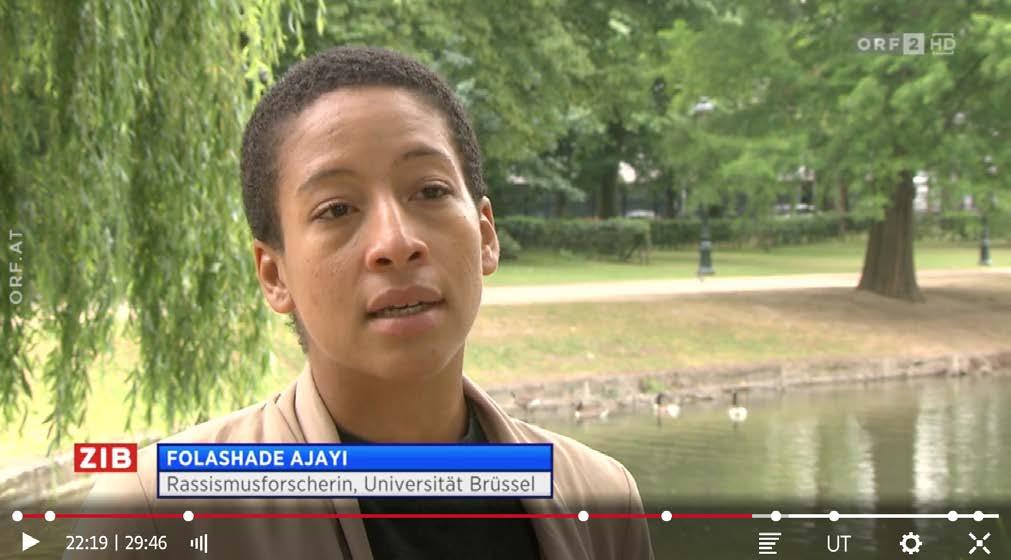
18 March 2020 in: GLOBUS
23. Ramon Pacheco Pardo : Following Brexit, North Korean embassy in Germany now running relations with EU
19 March 2020 in: NK News
24. Mine Yıldız : True winner in the coronovirus war in the EU: Nationalism! (in Turkish)
21 March 2020 in: BirGün
25. Alexandra Mihai COVID-19 BLOG
23 March 2020 in: SGOC
26. Ramon Pacheco Pardo For Singapore's next leaders, coronavirus is only half the battle
23 March 2020 in: Nikkei Asian Review
27. Ramon Pacheco Pardo Missile tests and meetings: North Korea signals confidence in face of
MEDIA APPEARANCES IN 2020
coronavirus
23 March 2020 in: Reuters
28. Paolo Pasimeni : COVID-19 and the old consensus
24 March 2020 in: The Progressive Post
29. Ramon Pacheco Pardo : how will coronavirus impact an election? South Korea could give us a clue.
30 March 2020 in: The National Interest
30. Luk Van Langenhove : Coronavirus: sans un nouveau patriotisme européen, le déclin de l’Union sera inévitable
31 March 2020 in: Le Soir
31. Ramon Pacheco Pardo : international community "fighting corona around the world, North Korea shoots missiles and refuses cooperation" (In Korean)
1 April 2020 in: Voa Korea
32. Alexander Mattelaer : België moet inzetten op een sterke overheid
2 April 2020 in: De Tijd
33. Luk Van Langenhove : Coronavirus: Without a new European patriotism, the decline of the EU is inevitable
3 April 2020 in: Forumdemos
34. Ramon Pacheco Pardo : 'Germany's "diplomatic mission will reopen once conditions are right"' (In Korean)
3 April 2020 in: RFA
35. Ramon Pacheco Pardo : [Global Insight] Power games and quarrelling over masks: Why world leaders can't unite amid COVID-19
5 April 2020 in: Arirang News
36. Luk Van Langenhove Tijd voor een nieuw Europees patriottisme
6 April 2020 in: VUB Today
37. Luk Van Langenhove Sin un nuevo patriotismo europeo, el declive de la UE es inevitable
7 April 2020 in: El País
38. Richard Higgott and Luk Van Langenhove : the EU and the unravelling of the world order in times of the COVID-19 pandemic
10 April 2020 in: VUB Today
39. Ramon Pacheco Pardo : why did Kim Jong-un skip a major celebration of his grandfather?
16 April 2020 in: Voice of America
40. Daniel Fiott It’s time to vaccinate Europe’s defence budgets
20 April 2020 in: Euractiv
41. Sven Van Kerckhoven In deze onzekerheid hebben beleidsmakers een hondenjob
24 April 2020 in: De Tijd
42. Ramon Pacheco Pardo : Interview with Ramon Pacheco Pardo on the whereabouts of Kim Jong-un
26 April 2020 in: Radio Cut
43. Ramon Pacheco Pardo : [Column] Korea, the West and Covid-19
28 April 2020 in: The Hankyoreh
44. Ramon Pacheco Pardo : The coronavirus prevents inferiority among Koreans (in Korean)
28 April 2020 in: Hani
45. Ramon Pacheco Pardo : Dead, incapacitated or healthy, Kim Jong-un speculation serves as useful thought exercise
28 April 2020 in: The Japan Times
Institute for European Studies Annual Report 2020 Institute for European Studies Annual Report 2020 74 75 75
MEDIA APPEARANCES IN 2020
46. Ramon Pacheco Pardo : Korea without Kim: the political transition that China, the US and Seoul want (in Spanish)
28 April 2020 in: Perfil
47. Ramon Pacheco Pardo : Ramon Pacheco Pardo on coronavirus crisis in South Korea (SKY NEWS)
29 April 2020 in: Sky News
48. Ramon Pacheco Pardo : Ramon Pacheco Pardo: South Korea at a geopolitics crossroads
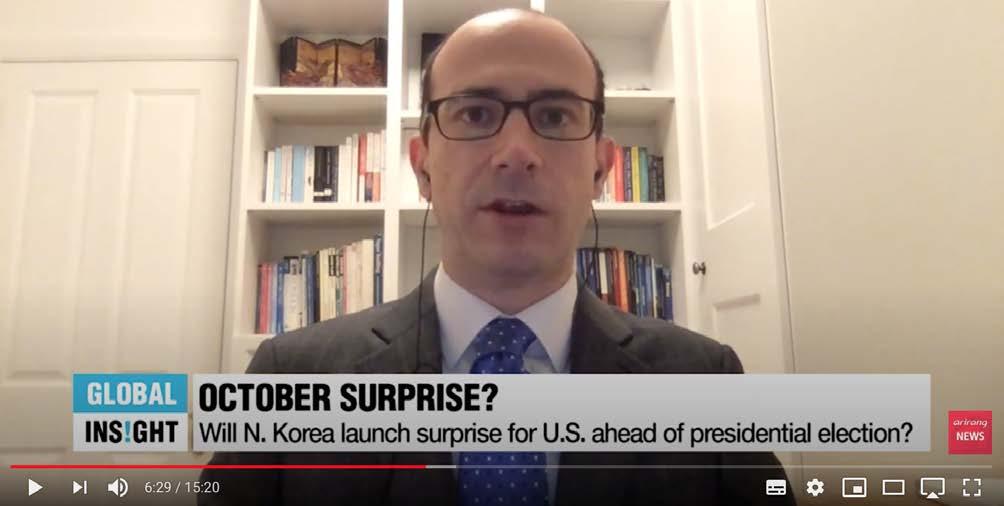
30 April 2020 in: US-Asia Institute
49. Ramon Pacheco Pardo : Why Kim Jong-un's succession could led to nuclear war? (in Spanish)
30 April 2020 in: El Ciudadano
50. Ramon Pacheco Pardo : Increase in searches for "Kim Jong-un's death" in the United States (in Korean)
1 May 2020 in: RFA
51. Ramon Pacheco Pardo : Kim Jong-un, the stubborn North Korean enigma (in Spanish)
2 May 2020 in: el Periódico
52. Maaike Verbruggen : AI & military procurement: what computers still can't do
5 May 2020 in: War on the Rocks
53. Florian Trauner : Coronacrisis brengt Europees asielbeleid van voorbije 20 jaar in gevaar
7 May 2020 in: VRT
54. Ramon Pacheco Pardo : The real Korean lesson (in Spanish)
9 May 2020 in: Agenda Pública
55. Ramon Pacheco Pardo The next US administration should continue diplomatic engagement with North Korea
11 May 2020 in: RFA
56. Ramon Pacheco Pardo Stay the course: Moon bets on sanctions-free engagement with North Korea
11 May 2020 in: NK News
57. Ramon Pacheco Pardo Kim Jong-un Disappeared From View, But North Korea’s Problems Never Left
17 May 2020 in: The Wall Street Journal
58. Ramon Pacheco Pardo Coronavirus discussed at World Health Organisation annual meeting
18 May 2020 in: BBC
59. Leo Van Hove Contactloos betalen in een winkel: dit zijn de mogelijkheden
20 May 2020 in: MoneyTalk
60. Ilke Adam : Open grenzen laten meer controle toe, niet minder
22 May 2020 in: De Standaard
61. Jonas Lefevere Partijen zijn radicaler dan hun kiezers
23 May 2020 in: De Standaard
62. Jonas Lefevere Het centrum verschraalt
23 May 2020 in: De Standaard
63. Jonas Lefevere Interview Radio 1 about “De Stemming”
23 May 2020 in: Radio Plus
64. Ramon Pacheco Pardo TV drama on forbidden love casts spotlight on life in North Korea
23 May 2020 in: NBC News
65. Jonas Lefevere "Er komen geen nieuwe verkiezingen": dit zijn de belangrijkste lessen uit De Stemming (in Dutch)
25 May 2020 in: VRT
MEDIA APPEARANCES IN 2020
66. Ramon Pacheco Pardo : Kim Jong-un is in control over nuclear and missiles... no signs of instability
27 May 2020 in: RFA
67. Ilke Adam VUB-politicologe Ilke Adam: 'Open grenzen laten meer controle toe, niet minder'
27 May 2020 in: VUB Today
68. Luk Van Langenhove : Tijd voor een nieuw Europees patriottisme
28 May 2020 in: De Standaard
69. Ramon Pacheco Pardo : The Czech and Polish embassies "continue normal operations in Pyongyang...they are monitoring the situation" (in Korean)
29 May 2020 in: RFA
70. Mine Yildiz : Covid-19: Nine reflections on society and politics
29 May 2020 in: The Brussels Times
71. Ilke Adam : 'In deze coronacrisis zien we niet langer enkel traditionele linkse argumenten voor regularisatie'
29 May 2020 in: Knack
72. Luk Van Langenhove Coronaproof betalen
3 June 2020 in: Knack
73. Luis Simón : In pursuit of European defence autonomy
3 June 2020 in: Nowa Konfederacja
Institute for European Studies Annual Report 2020 Institute for European Studies Annual Report 2020 76 77
MEDIA APPEARANCES IN 2020
74. Florian Trauner : Rückführung von Migranten: EU drängt, Afrika bremst
5 June 2020 in: Kurier
75. Ramon Pacheco Pardo : North Korea says it has severed all communication with South Korea
9 June 2020 in: NBC News
76. Ramon Pacheco Pardo : Newshour (as of 26:30)
9 June 2020 in: BBC
77. Ramon Pacheco Pardo : North Korea cuts off communications with South over leaflet launches
9 June 2020 in: Voa News
78. Folashade Ajayi Interview with Folashade Ajayi (in German)
10 June 2020 in: ORF
79. Ilke Adam : Looking to US, Europe seeks its own civil rights movement
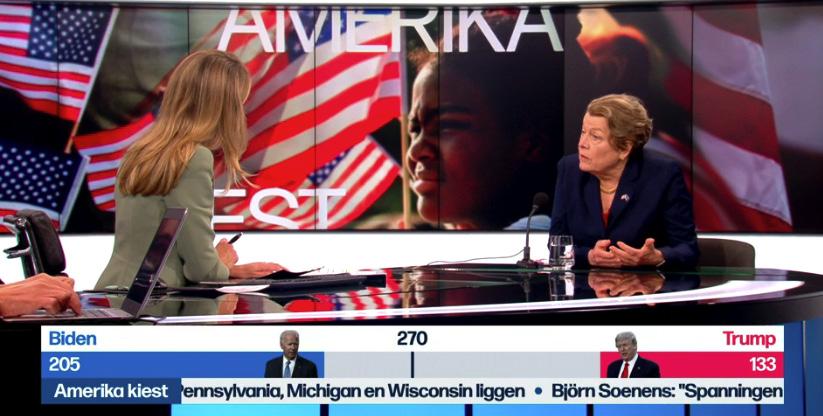
10 June 2020 in: Politico
80. Ramon Pacheco Pardo North Korea Says Little Reason to Maintain Kim-Trump Ties: KCNA
11 June 2020 in: New York Times
81. Ramon Pacheco Pardo North Korea says it sees little reason to maintain Kim-Trump ties
MEDIA APPEARANCES IN 2020
11 June 2020 in: CNBC
82. Ramon Pacheco Pardo : Experts: "North Korea wants to get a better deal from the US" (In Korean)
12 June 2020 in: News1
83. Ramon Pacheco Pardo : Exper ts: "Nor th Korea seeks a better deal from the US"' (in Korean)
12 June 2020 in: Dong-A Ilbo
84. Ramon Pacheco Pardo : North Korea asks why it should keep 'holding hands' with US amid Trump administration’s 'hypocrisy'
12 June 2020 in: Vice
85. Ramon Pacheco Pardo : La Corée du Nord dit qu'elle voit peu de raisons de maintenir les liens Kim-Trump (in French)
12 June 2020 in: News24
86. Ramon Pacheco Pardo : Emergency meeting held in South Korea after Kim Jong-un's sister threatens military action
14 June 2020 in: NBC News
87. Ramon Pacheco Pardo : former Ambassador Hoare: "North Korea expresses dissatisfaction with the US by quarrelling with South Korea" (In Korean)
15 June 2020 in: RFA
88. Ramon Pacheco Pardo : North Korea demolishes inter-Korean liaison office near border amid growing tensions
16 June 2020 in: NBC NEWS
89. Ramon Pacheco Pardo : US experts: "North Korea puts pressure to express dissatisfaction with the US"
16 June 2020 in: Segye Ilbo
90. Ramon Pacheco Pardo : Western news: "The
blasting of the liaison office is a provocation to put pressure in the US, also looking at China and Russia"
16 June 2020 in: NewsPim
91. Ramon Pacheco Pardo : North Korea blows up liaison office with South, Seoul says
16 June 2020 in: The Wall Street Journal
92. Ilke Adam : Le «racisme» de Belgique à l’épreuve des faits
16 June 2020 in: Le Soir Plus
93. Ramon Pacheco Pardo : US expert: "The blowing of the liaison office serves several purposes such as to put pressure on South Korea and crack down internally" (in Korean)
17 June 2020 in: Yonhap
94. Ramon Pacheco Pardo : European experts: "North Korea blows the liaison office to pressure Trump" (In Korean)
17 June 2020 in: Herald Biz
95. Ramon Pacheco Pardo : North Korea, manufactured anger ... may conduct nuclear or ICMB tests to catch Trump's attention (In Korean)
17 June 2020 in: JoongAng Ilb
96. Ramon Pacheco Pardo : Western expert: "Several purposes behind the blasting of the liaison office, including putting pressure on South Korea and domestic purposes in North Korea
17 June 2020 in: YNA
97. Alexandra Mihai : European universities should cooperate on online teaching
18 June 2020 in: The World University Ranking
98. Ramon Pacheco Pardo : Interview about Asian politics
Institute for European Studies Annual Report 2020 Institute for European Studies Annual Report 2020 78 79
MEDIA APPEARANCES IN 2020
18 June 2020 in: CNBC International TV
99. Ramon Pacheco Pardo : Kim Jong-un keeps quiet as North Korea turns up heat
18 June 2020 in: Voa News
100. Ramon Pacheco Pardo : [The Point] N. Korea blows up the inter-Korean liaison office, what’s next to come?
19 June 2020 in: Arrange TV
101. Ramon Pacheco Pardo : Interview on North Korean provocations
19 June 2020 in: Arirang TV
102. Ramon Pacheco Pardo : Back to the brink? North Korea's new border tension
22 June 2020 in: France 24
103. Trisha Meyer Flattening misinfodemics
22 June 2020 in: The Batsapp Project
104. Ramon Pacheco Pardo : Tensions between the two Koreas due to the war of flying leaflets (in Spanish)
24 June 2020 in: El Periodico de Catalunya
105. Ramon Pacheco Pardo : Kim Jong-un Calls Off 'Military Action' Against South Korea
24 June 2020 in: VOA NEWS
106. Ramon Pacheco Pardo : How Trump and K-pop ended up in the same headline
24 June 2020 in: The Korea Herald
107. Ramon Pacheco Pardo : North Korea's Kim Jong-un tests the limits of diplomacy at the 70th anniversary of the 6.25 outbreak (in Korean)
25 June 2020 in: Newstown
108. Ramon Pacheco Pardo : 'Manufactured crisis': North Korea ups the ante over sanctions
25 June 2020 in: Al Jazeera
109. Ramon Pacheco Pardo : Amid stormy inter-Korean relations, Moon Jae-in’s agenda for peace is a fight against windmills (in Chinese)
29 June 2020 in: Yazhou Zhoukan
110. Trisha Meyer : Power to the connected? Exploring EU member states’ bargaining success in shaping digital policies
29 June 2020 in: EDGE Blog Post
111. Luk Van Langenhove Life after corona: 7 paths to lasting change (in Dutch)
30 June 2020 in: Knack
112. Harri Kalimo & Max Jansson European challenges and means of improving legislation and measurement of green public procurement
30 June 2020 in: Keino
113. IES : Premiere at the VUB: IES organizes the very first online graduation ceremony
1 July 2020 in: VUB Today
114. Ramon Pacheco Pardo : Experts: 'We can't rule out talks with the US before the presidential election... North Korea already got a lot' (in Korean)
3 July 2020 in: VOA
115. Ramon Pacheco Pardo : [Global Insight] Could Trump and Kim Jong-un have a surprise October meeting?
5 July 2020 in: ARIRANG NEWS
116. Ramon Pacheco Pardo : Biegun's visit to strengthen the ROK-US alliance (in Korean)
7 July 2020 in: RFA
117. Ramon Pacheco Pardo : US expert: 'The purpose of Biegun's visit is to meet South Korea's new security
MEDIA APPEARANCES IN 2020
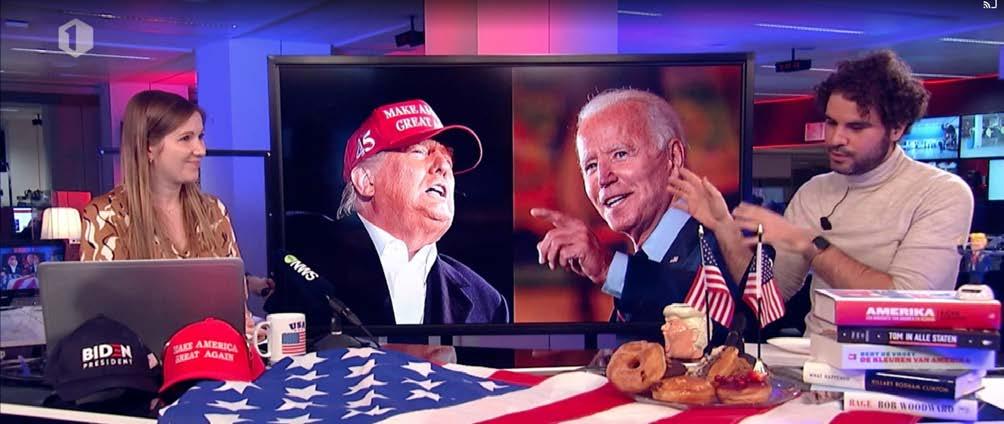
team' (in Korean)
8 July 2020 in: NewsPim
118. Ramon Pacheco Pardo : End of American leadership? U.S. withdrawal from WHO creates uncertainty over future of world order
9 July 2020 in: Arirang News
119. Ilke Adam À quoi doit servir une fête nationale? (in French)
21 July 2020 in: La Libre
120. Ramon Pacheco Pardo : EU 'could decide on first cyber sanctions' against North Korea this month (in Korean)
23 July 2020 in: RFA
121. Ramon Pacheco Pardo : The EU sanctions North Korea, China and Russia for cyber attacks (in Korean)
24 July 2020 in: Munhwa Ilbo
122. Ramon Pacheco Pardo : The EU to promote cyber sanctions against North Korea: asset freezes, entry bans (in Korean)
24 July 2020 in: NewsPim
123. Ilke Adam : Gebrek aan kleur in EU-instituten legt een pijnlijke waarheid bloot
30 July 2020 in: Het Financieele Dagblad
124. Ramon Pacheco Pardo : What is the background for European countries' withdrawal of personnel from Pyongyang? (in Korean)
18 August 2020 in: VOA Korea
125. Ramon Pacheco Pardo : South Korea wants China's cooperation for a breakthrough in inter-Korean relations (in Korean)
19 August 2020 in: RFA
Institute for European Studies Annual Report 2020 Institute for European Studies Annual Report 2020 80 81
MEDIA APPEARANCES IN 2020
126. Ramon Pacheco Pardo : Experts: 'The Korean court is right to withhold the cancellation of the licences of North Korean defector groups' (in Korean)
19 August 2020 in: Radio Free Asia
127. Ramon Pacheco Pardo : [Global Insight] Is N. Korean leader Kim Jong-un cracking under pressure?
24 August 2020 in: Arirang News
128. Marco Giuli : Limes - Giuli: Tre conseguenze non scontate del Covid-19 sull'agenda climatica
26 August 2020 in: Istituto Affari Internazionali
129. Marco Giuli : Linkiesta - Giuli: Il petrolio non manca, ma la fine dell’era del petrolio è sempre più vicina
29 August 2020 in: Istituto Affari Internazionali
130. Ramon Pacheco Pardo : Why South Korea would celebrate a Joe Biden win. What about North Korea?
29 August 2020 in: The National Interest
131. Ramon Pacheco Pardo & Celine Pajon : What influence for Japan in Europe as it (Europe) increasingly guards against China? (in Japanese)
2 September 2020 in: Blogos
132. Ramon Pacheco Pardo : From engagement to pressure: The EU gets tougher on North Korean sanctions
10 September 2020 in: 38 North
133. Marco Giuli : Estonian Broadcasting Company - Giuli: Analüütik: Saksamaal on Nord Stream 2 peatamiseks mitu võimalust
14 September 2020 in: Istituto Affari Internazionali
134. Tongfi Kim Analyst: South Korea, Japan relations may not change under Suga
14 September 2020 in: UPI
135. Ramon Pacheco Pardo : 'KF, KF-Europe next
generation policy expert online forum', 16th-18th
16 September 2020 in: Asiae
136. Tongfi Kim : Forget the political calendar It's time for another Trump-Kim meeting
17 September 2020 in: War On The Rocks
137. Linde Desmaele : Bye Bye Tik Tok (in Dutch)
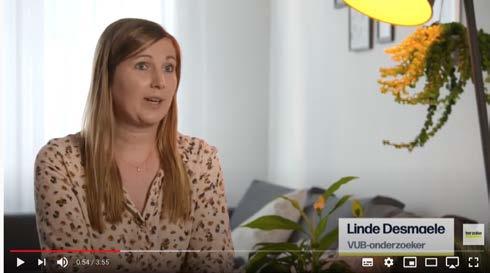
18 September 2020 in: VRT
138. Sebastian Oberthür : „Die Chance“ für Europa
19 September 2020 in: news.ORF.at
139. Florian Trauner Interview on the reform of EU migration policy with the Austrian Broadcasting Cooperation
19 September 2020 in: Austrian Radio OE1, Journal Panorama
140. Florian Trauner Interview with the Austrian Broadcasting Cooperation (ORF) on the new EU Pact on Migration and Asylum (in German)
23 September 2020 in: ORF-TVthek
141. Florian Trauner Wie die EU künftig die Migration regeln will (in German)
23 September 2020 in: Der Kurier
MEDIA APPEARANCES IN 2020
142. Ramon Pacheco Pardo : Europe pays attention to K-pop...lyrics, choreography, and SNS are 'popular factors'
23 September 2020 in: TBS Radio
143. Ramon Pacheco Pardo : Why two Koreas can't end war, and has Trump destroyed global cooperation?
UN General Assembly Wrap Up
23 September 2020 in: Arirang News
144. Ilke Adam Interview with Prof Ilke Adam about the EU’s new Migration Pact
23 September 2020 in: Radio 1 De Wereld Vandaag
145. Ramon Pacheco Pardo : Jung Eun-kyeong and Bong Joon-ho were selected as '100 Most Influential People of 2020' in the US
24 September 2020 in: TBS News
146. Ramon Pacheco Pardo : North Korea’s Kim Jongun apologizes for shooting death of South Korean official at sea
25 September 2020 in: RFA
147. Ramon Pacheco Pardo : Kim Jong-un's unusual apology...Wants stability on the Korean Peninsula due to rising domestic unrest (in Korean)
25 September 2020 in: RFA
148. Ramon Pacheco Pardo : US experts: 'Kim Jong-un's apology is a political decision' (in Korean)
26 September 2020 in: News 1
149. Sebastian Oberthür : Europejski Zielony Ład to krok w dobrą stronę (In Polish)
29 September 2020 in: Kultura Liberalna
150. Zafer Kizilkaya : Competition is fierce, and time is short for refugee researchers
1 October 2020 in: Flanders Today
151. Ramon Pacheco Pardo : BTS are on the brink of enrolling in a major military nightmare
3 October 2020 in: Wired
152. Ramon Pacheco Pardo : [Global Insight] N. Korea preparing massive military parade... October surprise for Trump?
5 October 2020 in: Arirang News
153. Ramon Pacheco Pardo : Pyongyang celebrates its party's 75th anniversary with a night-time military parade (in Spanish)
10 October 2020 in: el Periódico
154. Ramon Pacheco Pardo : [Column] South Korean culture has entered a magic circle
11 October 2020 in: Hankyoreh
155. Ramon Pacheco Pardo : Emergency meeting held in South Korea after North Korea parades new missiles
11 October 2020 in: NBC News
156. Alexander Mattelaer De brexit nadert: waarom we de Britten nog zullen missen (video)
15 October 2020 in: Knack
157. Ramon Pacheco Pardo : Many historical pictures, much ado about nothing and an economy in free fall (in Spanish)
16 October 2020 in: el Periódico
158. Radio 1 : Leo Van Hove: discussion of ‘digital euro’
21 October 2020 in: Radio1
159. Ramon Pacheco Pardo : Brilliant cultural articles stand out...differentiate sports and win
23 October 2020 in: The Hankyoreh
160. Alison Woodward & Linde Desmaele : Wat zijn de 5 hete hangijzers die de Amerikaanse
Institute for European Studies Annual Report 2020 Institute for European Studies Annual Report 2020 82 83
MEDIA APPEARANCES IN 2020
presidentsverkiezingen zullen bepalen? 10 Amerikanen aan het woord
25 October 2020 in: VRT News
161. Ramon Pacheco Pardo : [Anniversary special] Robust middle power diplomacy needed to tackle geopolitical coercion
26 October 2020 in: The Korea Times
162. Ramon Pacheco Pardo : North Korea is the country that American and British people hate most (in Korean)
27 October 2020 in: RFA
163. Ramon Pacheco Pardo : US experts: "Next US administration will seek early US-North Korea dialogue" (in Korean)
28 October 2020 in: RFA
164. Ramon Pacheco Pardo : US expert: "Whoever is elected will seek early North Korea dialogue" (in Korean)
29 October 2020 in: Dong-A Ilbo
165. Linde Desmaele US-China rivalry set to persist whoever wins the White House
2 November 2020 in: Al Jazeera
166. Ramon Pacheco Pardo : Kim Jong-un prefers Trump in the White House. Or maybe not? (in Spanish)
2 November 2020 in: La Vanguardia
167. Ramon Pacheco Pardo : The state explains Asia's success (in Spanish)
2 November 2020 in: El País
168. Linde Desmaele Linde Desmaele Commenting on the US Presidential Elections
3 November 2020 in: Vandaag
169. Alison Woodward Interview with Alison Woodward
for VRT NU
4 November 2020 in: Het Journaal Extra
170. Alison Woodward : Alison Woodward (VUB) over Trumps speech
4 November 2020 in: Knack
171. Alison Woodward : Waarom de Amerikanen ook nu weer massaal op Donald Trump hebben gestemd
4 November 2020 in: Het Laatste Nieuws
172. Alison Woodward : De Amerikaanse verkiezingen blijven een nek-aan-nekrace
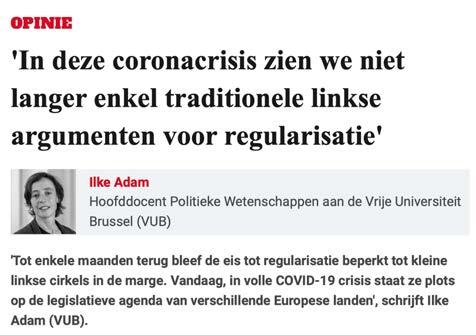
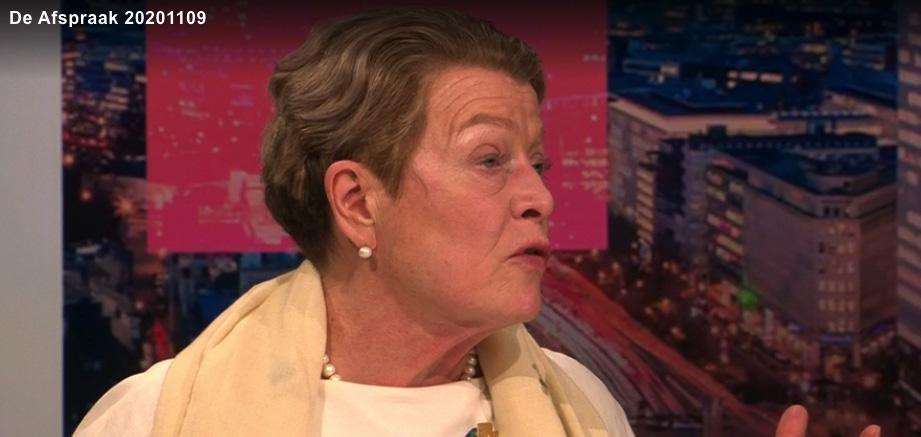
4 November 2020 in: De Afspraak VRT
173. Linde Desmaele : America Kiest
4 November 2020 in: VRT Nieuws
174. Leo Van Hove Cashloos betalen biedt nieuwe kansen, zelfs voor God
4 November 2020 in: De Tijd
175. Ramon Pacheco Pardo : South Korea stays on toes about US election
4 November 2020 in: The Korea Times
176. Ramon Pacheco Pardo : Panel: Biden Should Reach Agreement Over Korean Peninsula Burden-Sharing
MEDIA APPEARANCES IN 2020
Talks if Elected
5 November 2020 in: USNI News
177. Ramon Pacheco Pardo : Maintain US-North Korea diplomacy, need for cooperation with allies (in Korean)
5 November 2020 in: VOA Korea
178. Ramon Pacheco Pardo : Biden to ease tensions over defense cost-sharing talks
5 November 2020 in: The Korea Times
179. Hannah Vermaut : BIRMM and Minderhedenforum's joint opinion on NBB's study on the economic impact of immigration
6 November 2020 in: De Morgen
180. Ramon Pacheco Pardo : Biden fully ready to invest in N. Korea denuclearization
6 November 2020 in: The Korea Herald
181. Linde Desmaele : Linde Desmaele appeared on Terzake to discuss the implications of a potential Biden Presidency for US foreign policy
6 November 2020 in: Terzake
182. Ramon Pacheco Pardo : During the Biden era in the US, we must lead an active North Korea policy (In Korean)
6 November 2020 in: Jeju Sori
183. Ramon Pacheco Pardo : US experts: 'The next US administration should continue to pursue diplomatic engagement with North Korea' (In Korean)
6 November 2020 in: NewsPim
184. Ramon Pacheco Pardo : Biden could restore broken alliance with Korea
Institute for European Studies Annual Report 2020 Institute for European Studies Annual Report 2020 84 85
MEDIA APPEARANCES IN 2020
6 November 2020 in: The Korea Times
185. Alison Woodward Wie ook wint, Trumps aanhang verliest
7 November 2020 in: De Morgen
186. Ramon Pacheco Pardo : Former senior US official: 'North Korea should refrain from hasty provocations and negotiate' (in Korean)
9 November 2020 in: RFA
187. Alison Woodward Kamala Harris writes history as first non-white female American Vice-President
9 November 2020 in: De Afspraak (Canvas)
188. Ramon Pacheco Pardo : Seoul reaching out to Tokyo
9 November 2020 in: The Korea Times
189. Ramon Pacheco Pardo : North Korea omitted from Biden administration’s key transition priorities
9 November 2020 in: NK News
190. Ramon Pacheco Pardo : Biden unlikely to seek mediating role in Korea-Japan row
10 November 2020 in: The Korea Times
191. Ilke Adam : Met het Minderhedenforum valt de laatste dominosteen
11 November 2020 in: Mondiaal Nieuws
192. Ramon Pacheco Pardo : [Global Insight] Will North Korea make sure Biden's term starts with a bang?
11 November 2020 in: Arirang News
193. Alison Woodward : Hoogleraar Alison Woodward maakt bijna 10 dagen na presidentsverkiezingen balans op: “Het gedrag van Trump zet een rem op alles”
12 November 2020 in: Het Laatste Nieuws
MEDIA APPEARANCES IN 2020
194. Ilke Adam, Florian Trauner : Hoe het middenveld te muilkorven
12 November 2020 in: De Standaard
195. Ramon Pacheco Pardo : The Biden administration needs to deal with 'North Korean provocations' by strengthening deterrence (In Korean)
13 November 2020 in: RFA
196. Ramon Pacheco Pardo : Moon, Suga to face each other at virtual ASEAN+3 summit
13 November 2020 in: The Korea Times
197. Florian Trauner : The gaps in Europe's fight against terrorism (in German)
18 November 2020 in: Die Presse
198. Sebastian Oberthür : "Welcome back America" Mr Biden was elected with certainty and expectations for progress in climate change countermeasures (in Japanese)
20 November 2020 in: The Mainichi Newspaper
199. Ramon Pacheco Pardo : tbs eFM this morning
20 November 2020 in: tbs eFM
200. Ramon Pacheco Pardo : What can Korea do to ensure Biden's enthusiasm on North Korea?
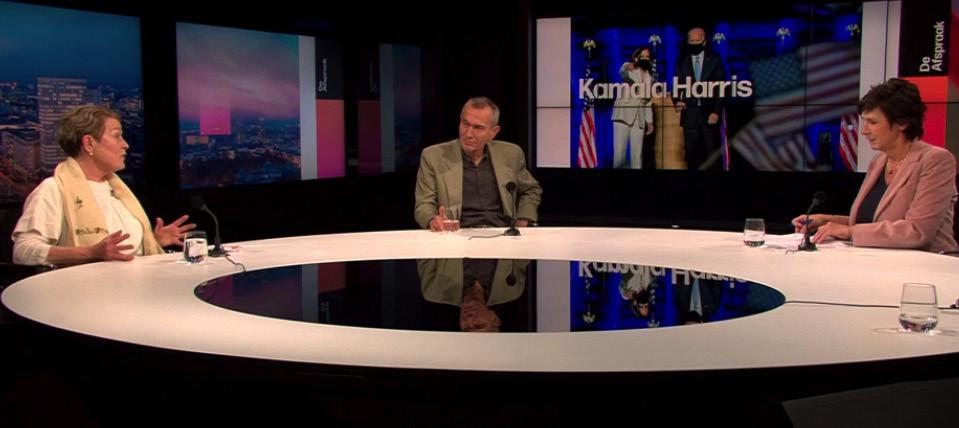
22 November 2020 in: The Korea Times
201. Karen Donders : Karen Donders wordt directeur
Publieke Opdracht bij de VRT
23 November 2020 in: VRT
202. Ramon Pacheco Pardo : Ministry of Unification holds 'Korea-Europe Remote Debate' on the International Peace Forum (in Korean)
23 November 2020 in: Newsis
203. Ramon Pacheco Pardo : Will Kim Jong-un attend Tokyo Olympics?
23 November 2020 in: The Korea Times
204. Ramon Pacheco Pardo : Joe Biden's team unlikely to take hard line on North Korea, South's media says
24 November 2020 in: Newsweek
205. Laura Westerveen : Government policies ‘overlook racism’, says VUB researcher
24 November 2020 in: Flanders Today
206. Ramon Pacheco Pardo : Biden is Kim's to lose
27 November 2020 in: War on the Rocks
207. Alexander Mattelaer EU must stand up for jailed Iranian scholar Ahmadreza Djalali
30 November 2020 in: Politico
208. Ramon Pacheco Pardo : There is a need for a realistic US-North Korea dialogue based on trust (in Korean)
3 December 2020 in: RFA
209. Ramon Pacheco Pardo : Korea's US-China dilemma deepening under Biden era
4 December 2020 in: The Korea Times
210. Sebastian Oberthür and Marco Giuli : Who sets the targets? Expert Q&A on European energy and climate policy
10 December 2020 in: Clean Energy Wire
211. Ramon Pacheco Pardo : Envoy King 'encourages resumption of discussions on 'North Korean human rights' by the UN security council' (in Korean)
14 December 2020 in: RFA
212. Ramon Pacheco Pardo : Moon's rush for breakthrough with Japan raises questions
16 December 2020 in: The Korea Times
213. Ramon Pacheco Pardo : North Korea wants an EU embassy, but France and Belgium won’t let that
Institute for European Studies Annual Report 2020 Institute for European Studies Annual Report 2020 86 87
MEDIA APPEARANCES IN 2020
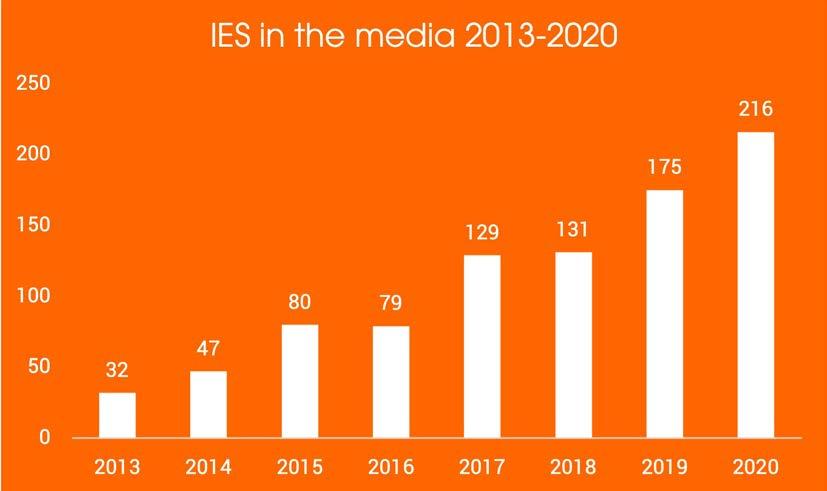
16 December 2020 in: NK NEWS
214. Ramon Pacheco Pardo : Moon knocks on Biden’s door and this time, he has a real chance to coax the US
16 December 2020 in: NK NEWS
215. Ramon Pacheco Pardo : FTA is top achievement in 10 years of strategic partnership between EU, Korea 18 December 2020 in: The Korea Times
216. Ramon Pacheco Pardo : Mysterious N.Korea site may be building nuclear components, report says 18 December 2020 in: Reuters
Our experts are quoted in leading European and International media

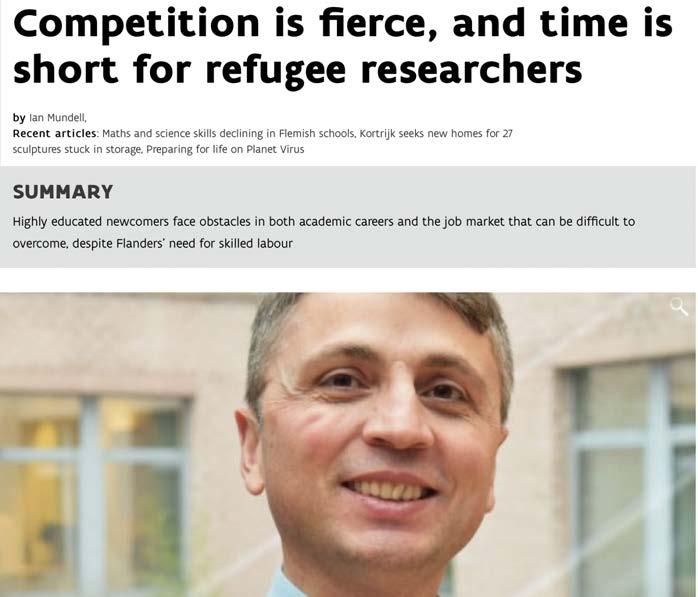
• Terzake
• Knack
• NWS
• Reuters
• Aljazeera
• The New York Times
• De Morgen
• Radio1
• France 24
• The Korea Times
• De Standaard
• VOA
• Politico
• El Pais
• NK News
• Clean Energy Wire
• RFA
• War on the Rocks
• Flanders Today
• Die Presse
• De Afspraak VRT
Institute for European Studies
Annual Report 2020
for European Studies
Institute
2020 88 happen
Annual Report
89
ACADEMIC SERVICES
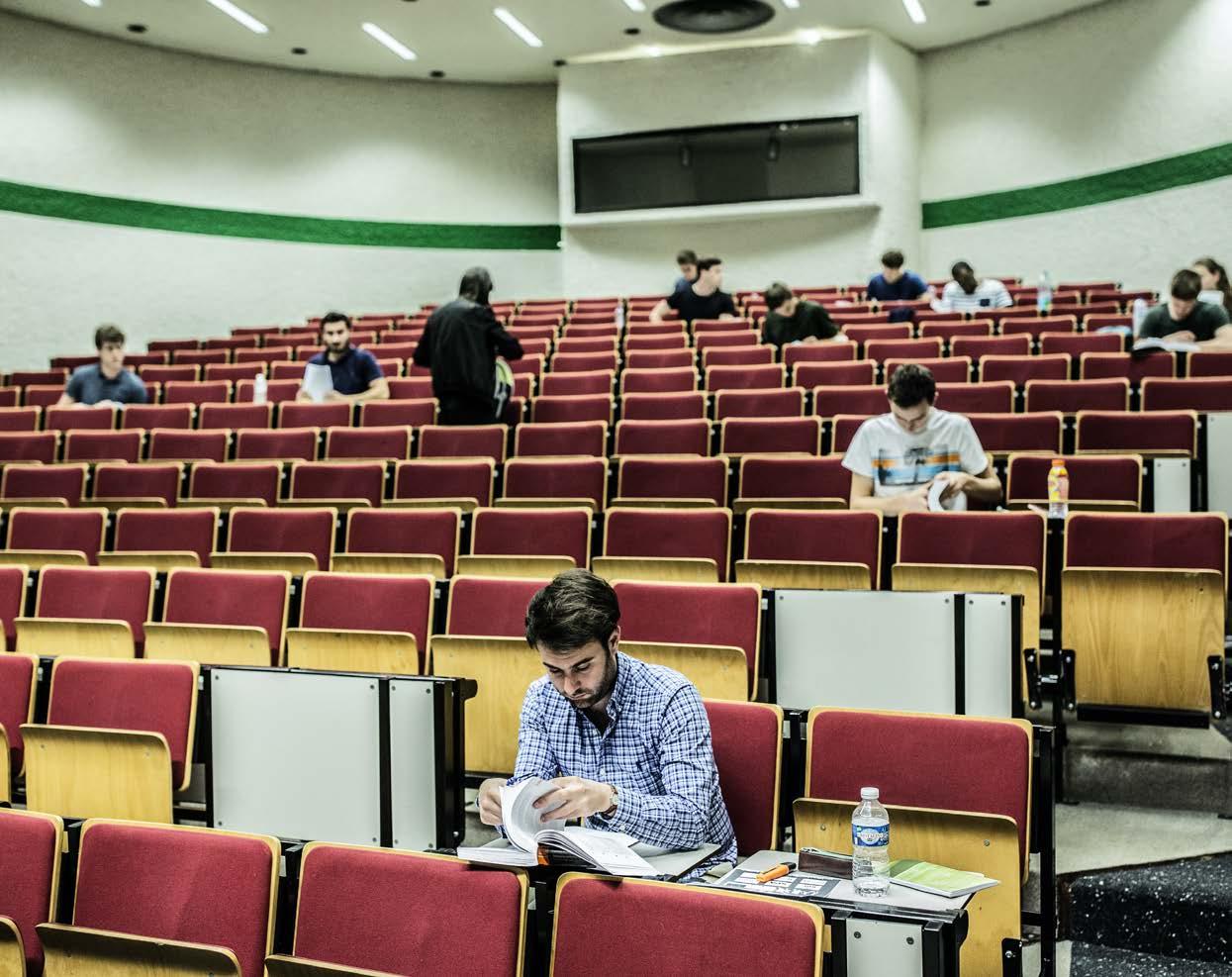
13 January 2020
IES PUBLIC EVENTS IN 2020
Europe as a performative act in peripheries: Peru, Ukraine, Kosovo
29 January 2020
Jurisdictionalization in prevention of radicalisation and terrorism in Belgium
19 February 2020
PhD Defence of Antonios Nestoras: Belonging to the West?
Geopolitical Mythmaking in Modern Greece from the Enlightenment to the Euro-crisis
19 February 2020
EDGE Talk: Global-South Scholars in Global-North Universities: Positionality, Gender and Ethnicity in Academia
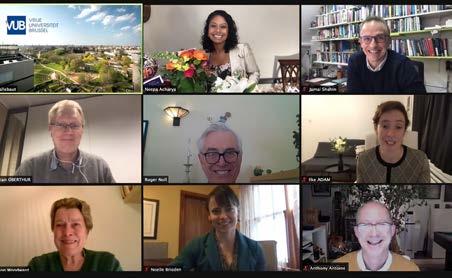
10 March 2020
European and world politics: High level lecture series
10 March 2020
Maritime Security in the Indian Ocean and the Future of the International Order: EU and Japanese perspectives
1 July 2020
EuroMaster and LLM Online Graduation Ceremony

3 July 2020
The Geopolitics of Decarbonisation: Re-shaping European Foreign Relations
6 July 2020
Public PhD Defence of Alexandra Mihai
6 July 2020
Online Summer School on EU Policy Making
15 July 2020
Keynote Lecture by Mr. Jurek Kuczkiewicz on EU Policy Making: Leadership in Times of Crisis
4 September 2020
PhD Defence of Klaudia Majcher: Coherence between EU Data Protection and Competition Law in the Digital Market
9 September 2020
Emerging Security Technologies and EU Governance. Actors, Practices and Processes
17 September 2020
LLM and EuroMaster Graduation Ceremony
9 October 2020
Public Ph.D defense of Laura Westerveen: Ethno-racial (In) equality in Belgium and Germany: Understanding Policy Frames
Institute for European Studies Annual Report 2020 91
15 October 2020
IES PUBLIC EVENTS IN 2020
Cosmopolitan Home and Work Lifeworlds in Bangalore’s Interconnected Entrepreneurial Ecosystem
27 November 2020
GOVTRAN Roundtable debate: International Climate Policy at Paris+5
1 December 2020
Korea Matters for Europe/Europe Matters for Korea
2 December 2020
#BlackLivesMatter in Europe. A Transnational Movement influencing policy agendas? Co-organizers: BIRMM (VUB), IESVUB and Humanity In Action e.V.
3 December 2020
‘DSA in Perspective’ Seminar Series
2020 Annual Lecture of the Journal of European Integration by Prof. Dr Sven BISCOP
28 October 2020
The Korean Peninsula faces the US election
3 November 2020
Maritime Security in the Indo-Pacific: an opportunity for Australia, Japan and Europe?
5 November 2020
The Korean Peninsula After the US Election
19 November 2020
10th Anniversary of the EU-ROK Strategic Partnership: Reflections and Hope
23 November 2020
Public Ph.D. Defense of Malasree Neepa Acharya: Anchoring Circulation of India’s Diaspora Entrepreneurs: Creating
3 December 2020
Engaging North Korea: prospects, benefits and challenges
11 December 2020
The disproportionate negative impact of COVID-19 on the health and socio-economic participation of minorities and migrants
IES RESEARCH COLLOQUIA IN 2020
14 January 2020
The security complex of Pakistan
Research Colloquium Speaker: Asma Akbar
28 January 2020
State aid and Harmful Tax competition
Research Colloquium Speaker: Fausta Todhe
11 February 2020
Drivers of and obstacles to the introduction of autonomy in European weapons systems
Research Colloquium Speaker: Maaike Verbruggen
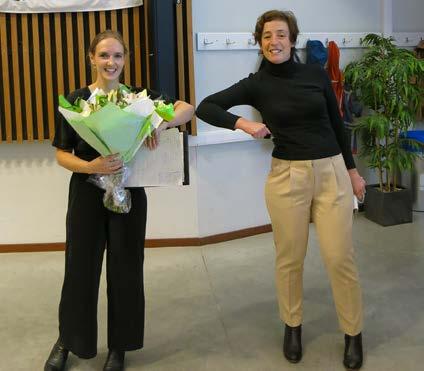
25 February 2020
Testing the East Asian Paradox: A study of East Asian nations' economic and security relations with a focus on Northeast Asia
Research Colloquium Speaker: Maximilian Ernst
10 March 2020
Definitional difficulties around political crimes in European criminal law: Understanding the changes in their protection in light of Bourdieu’s theory on the state
Research Colloquium Speaker: Sibel Top
21 April 2020
EU migration policy cooperation beyond borders
Research Colloquium Speaker: Philipp Stutz
28 April 2020
Policy integration: decarbonisation and security of supply in the European Union's external energy policy
Research Colloquium Speaker: Marco Giuli
12 May 2020
The response of the EU and of NATO to hybrid warfare
Research Colloquium Speaker: Elie Perot
9 June 2020
On the outside looking in: The EU as an actor in the Arctic?

Research Colloquium Speaker: Aslak Veierud Busch
16 June 2020
The evolution of the status of Europe in American grand strategy
Research Colloquium Speaker: Linde Desmaele
27 October 2020
A critical discourse analysis of EU and US digital strategies
Research Colloquium Speaker: Orsolya Gulyás
27 October 2020
The age of digital interdependence? A critical discourse analysis of EU, US and ASEAN digital strategies Research Colloquium Speaker: Orsolya Gulyas
24 November 2020
EU Climate and Energy Policy: How Myopic Is It? Research Colloquium Speaker: Jana Gheuens
8 December 2020
Security Complex of Pakistan
Research Colloquium Speaker: Asma Akbar
15 December 2020
Ambiguous parties: causes & consequences
Research Colloquium Speaker: Jonas Lefevere
Institute for European Studies Annual Report 2020 Institute for European Studies Annual Report 2020 92 93
MANAGEMENT
STRUCTURE AND MANAGEMENT
The IES is a special university institute with functional autonomy within the VUB. Since its inception, the institute has been governed by its own Board, whose members are proposed by the Rector and appointed by the University Council, following the provisions written down in the IES statutes (Organiek Reglement). The management structure of the Institute is the following:
Board
The IES Board is the highest authority of the Institute and is responsible, inter alea, for approving the general strategy, policy plan, budget, and annual report. The Board also decides on research strategy and gives its final approval to the appointment of senior staff (ZAP).
The Board consists of 14 members: 6 external (to the VUB), 4 VUB faculty, the Rector (or his/her representative), a representative of the ZAP members of the IES and two students. In addition, one member of the junior academic personnel, one member of the administrative personnel, a representative of the faculty of Economics and Social Sciences and one of the faculty of Law and Criminology and the Vice-Rector for Education and Student Affairs attend the Board meetings with a consultative vote. Members of the Executive Committee (see below) are also invited.
Executive Committee
Daily management is the responsibility of the Executive Committee (ExCom), consisting of five members: the Dean (Luc Soete), the two Vice-Deans (Alexander Mattelaer and Sven Van Kerckhoven), the Executive Director (Anthony Antoine) and the Head of Secretariat (Jacintha Liem). They were appointed by the Board in September 2019.
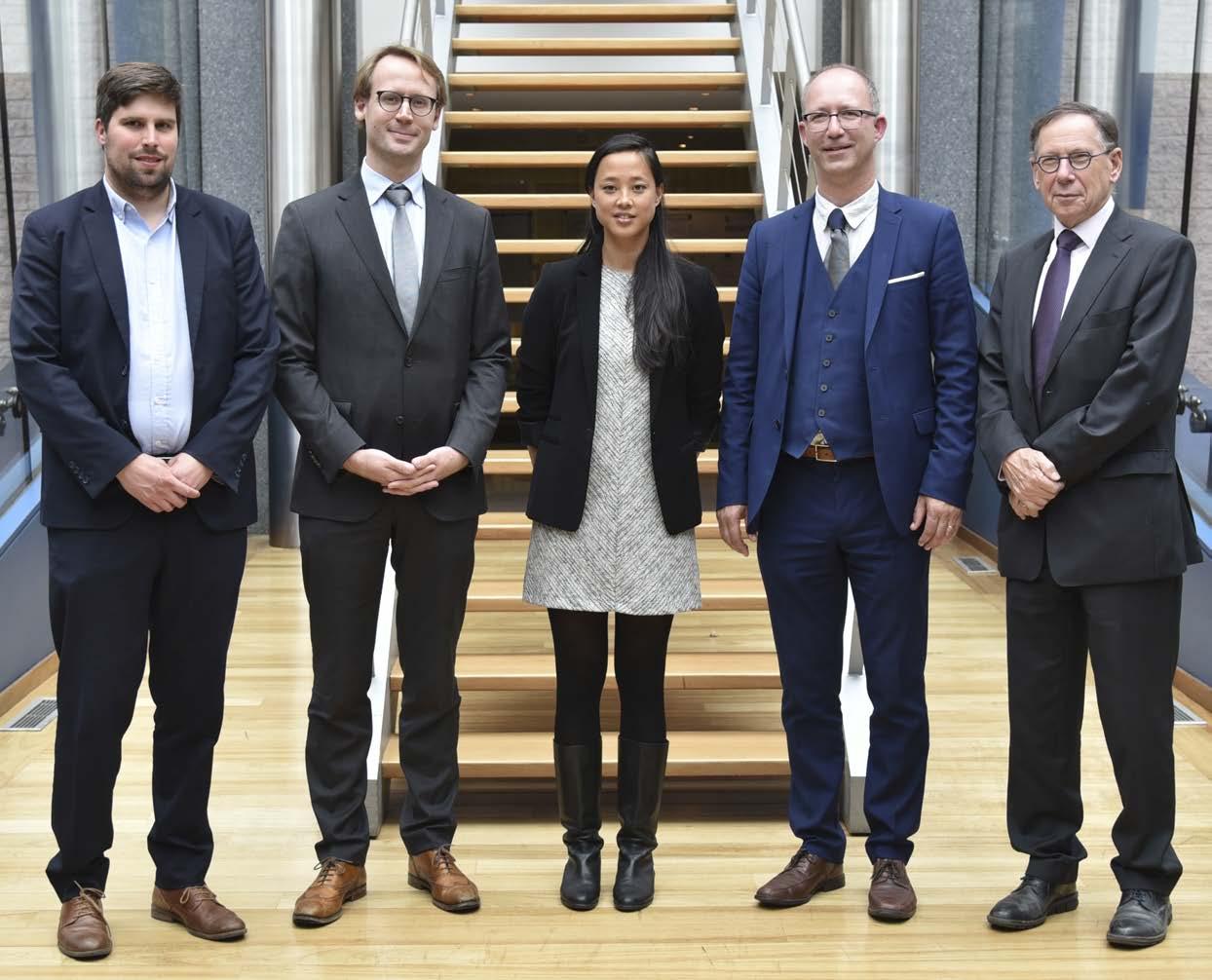
Research Centres
Research management at the IES is primarily done through four research centres with a certain degree of managerial authority and led by a centre director (a full professor).
All members of the academic staff belong to one or more centres where they report and organise their activities. The 'cluster structure' that had been in existance since 2012, was overhauled in 2020, resulting in the creation of four centres:
Institute for European Studies Annual Report 2020 95
STRUCTURE AND MANAGEMENT
- The Centre for Migration, Diversity and Justice (CoDirectors Ilke Adam and Florian Trauner)


- The Centre for Digitalization, Democracy and Innovation (Director Trisha Meyer)
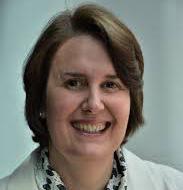



- The Centre for Security, Diplomacy and Strategy (Director Luis Simon, Asst. Dir. Giulia Tercovich)

- The Centre for Environment, Economy and Energy (Co-Directors Harri Kalimo and Sebastian Oberthür)
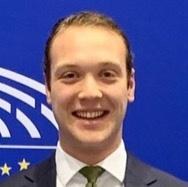
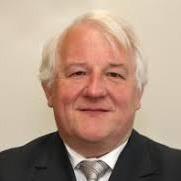

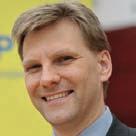
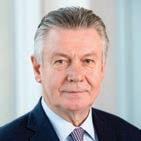
Research / Education Councils
Under the auspices of the Vice-Dean for Research, a Research Council discusses all research-related issues at the IES. As a consultative body, it advises the ExCom and/or the Board on all research-related matters. It consists of all ZAP members of the IES.
Under the auspices of the Vice-Dean for Education, an Education Council discusses all education-related issues. It consists of the (teaching) programme directors of the IES and of Vesalius College. Similar to the Research Council, it advises the ExCom and/or the Board on education-related matters.
STRUCTURE AND MANAGEMENT
Board members
Institute for European Studies Annual Report 2020 Institute for European Studies Annual Report 2020 96 97
Karel De Gucht (president) former European Commissioner
Sandra Gallina Director-General European Commission
Frank Hoffmeister Head of Unit, DG Trade, EC
Karen Donders VUB Professor
Caroline Buts VUB Professor
Tony Joris VUB Professor
Leo Van Audenhove VUB Professor
Eddy Bonne Past Chairman Flemings in the World (VIW)
Sarah Engels L'Oreal
Nic Van Craen Algemeen Beheerder VUB Representative of the Rector
Freddy Van den Spiegel Former Bank manager
Christoph Lhotka student representative
NN student representative
GENDER & DIVERSITY
GENDER AND DIVERSITY
Gender and diversity are important elements of VUB’s overall policy
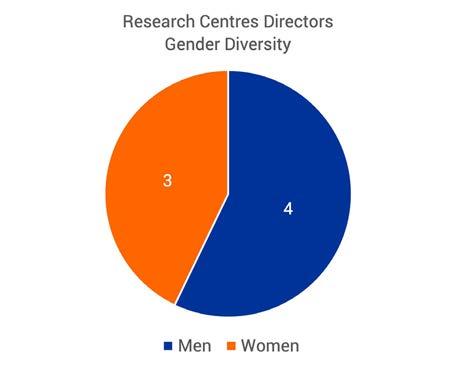

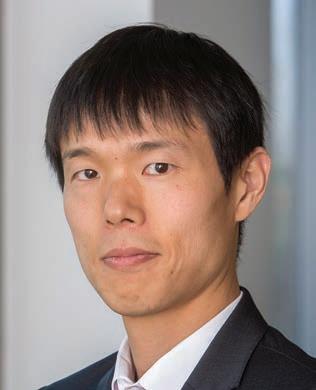
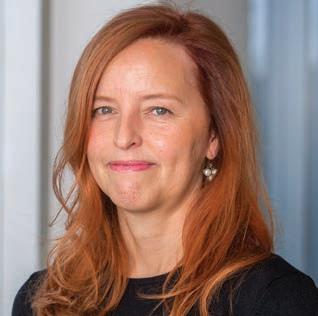
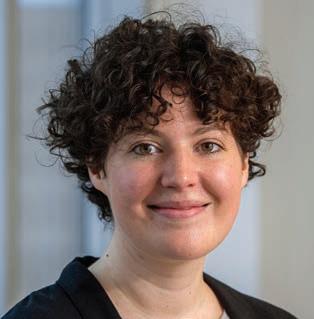
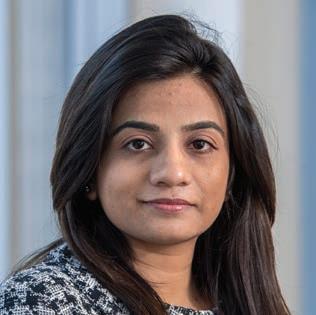
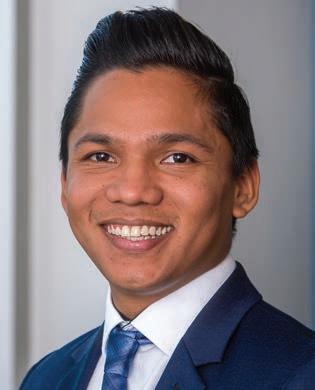

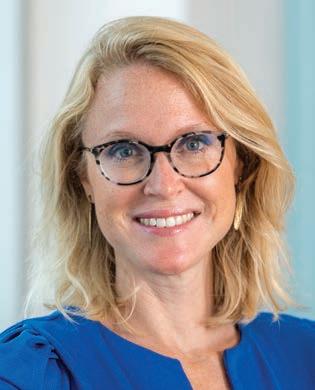
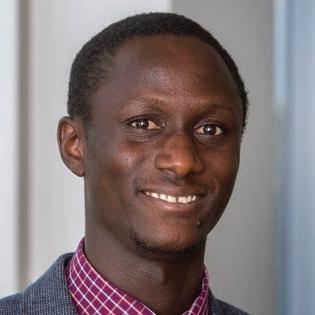
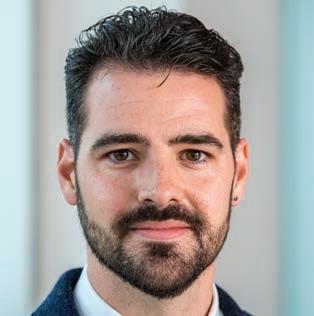
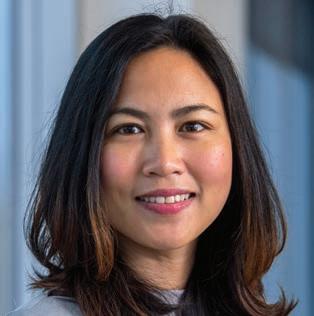
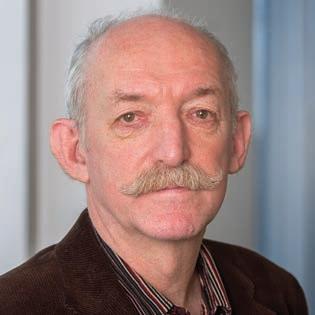
The university’s Gender Action Plan, launched in 2014, is a case in point. In 2018, the university’s statutes were amended to strive for a more balanced gender representation in policy bodies and academic committees. The IES, which in 2016 had already changed its regulations to this end, ensures that at least one third of the members of its Board and recruitment committees are from both genders. In the new Board, four out of 11 members are women. Each of the new Research Centres that were initiated in 2020, is led by one or two Centre Directors. Out of the total of seven Centre Directors, three are women.
Several members of the IES play a pivotal role in the university's interdisciplinary groups on gender (RHEA) and on migration and minorities through BIRMM, the Brussels Interdisciplinary Research Centre on Migration and Minorities. Moreover, in our Research Centre for Migration, Diversity and Justice, scholars contribute to the university's Interdisciplinary Master's on Gender and Diversity. Overall, the Institute employs 107 people (47 women and 50 men), but there is a difference between the categories of personnel. In 2019, the Institute for European Studies changed its management structure, and now consists of four men (Dean, Vice-Dean for Research, Vice-Dean for Education, and Executive Director) and one woman (Head of Secretariat). There are 6 female senior scholars among the 24 senior researchers that hold a ZAP mandate. In the LLM programme, one out of three professors for the Data Law specialisation is female, bringing the overall ratio in the programme to two out of 16. A change in this balance is difficult to achieve, as most teaching staff have long-term or tenured contracts. In the EuroMaster programme, the gender balance is more equal, six male versus four female. Since 2018, the IES is a member of the Brussels Binder (www.brusselsbinder.org), the go-to database of female policy experts. The Brussels Binder was officially launched in the presence of Frans Timmermans, First Vice President of the European Commission, and to date includes over 57.000 entries (Brussels Binder Beyond) of women-experts who can be contacted for policy advice or as members of debate panels.
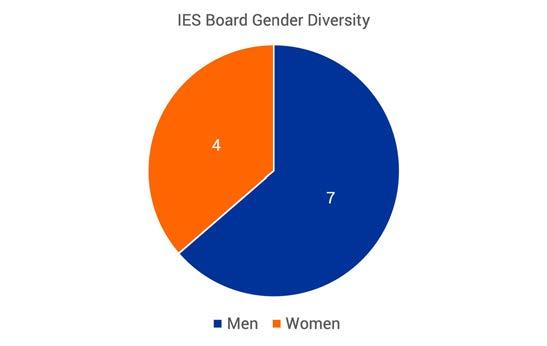
Institute for European Studies Annual Report 2020 99
OUTREACH
OUTREACH
The IES communicates with the outside world by targeting the general public, Brussels-based policymakers, academics and researchers interested in the EU, as well as potential applicants (both students and professionals) for its various educational programmes. Below are some of the highlights of the Institute’s outreach activities in 2020.
The IES had a significant online presence. In 2020, its main website ies.be had a total of 79,873 new users, down 5.8% compared with the previous year. Also its websites dedicated to its LLM (12,824 new users, up by 19%), EuroMaster (15,497, down by 12%), Summer & Winter School (12,323, up by 74%), and Postgraduate Certificate (11,077, up by 35%) programmes attracted a large volume of traffic, sparked by the extensive online and offline marketing campaigns relating to the Institute’s educational programmes.

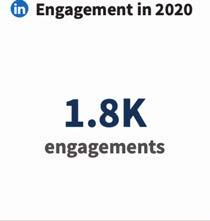
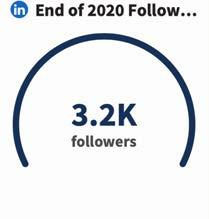
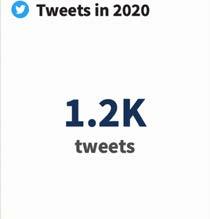
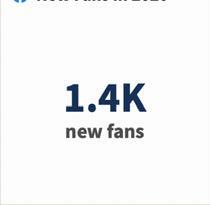

The IES sends out monthly newsletters to a broad target audience. Its mailing list comprises approximately 7,590 recipients. 9 editions were sent out in 2020. Regarding social media, an increasing number of people are following IES channels. On the general IES Facebook page, followers have increased steadily over time. If one measures all 5 Facebook pages of the Institute, at the end of 2020, the number of "fans" was more than 20.000. On its Twitter account, the IES had a very active year, focusing on research and educational activities. Over the year, each programme was consistently promoted on a weekly basis. In addition, the IES used LinkedIn as a channel to promote its new vacancies and its educational programmes. Twitter: Followers
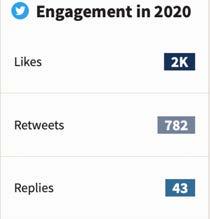
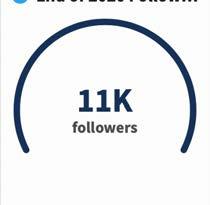

Institute for European Studies Annual Report 2020 101
9,896
11,727
LinkedIn:
3,314 Youtube:
• Facebook: Followers/fans
•
Followers
809 subscribers
Source: Hootsuite Analytics
COLLABORATION
ACADEMIC COLLABORATION
The IES collaborates on a daily basis with universities and institutions around the world, in the context of its academic programmes and research activities. In this section we identify three dominant types of interactions: Memoranda of Understanding, Longstanding relationships in both education and research, and Project-based collaboration.
Collaboration based on MOU
The IES has developed a range of formal Memoranda of Understanding with various research and educational institutions. These MoUs are signed as a result of enhanced cooperation between the IES and partner institutions. They allow us to forge global partnerships, encouraging exchange of knowledge between the institutions. The following list of agreements highlights our global reach:
• Fudan University (Shanghai, China)
• Renmin University (Beijing, China)
• Hankuk Universtity of Foreign Studies (South Korea)
• SNU - Seoul National University (South Korea)
• University of Vienna and Diplomatic Academy of Vienna (Austria)
• University of Warwick (Coventry, UK)
• UNU-CRIS - United Nations University Institute on Comparative Regional Integration Studies (Belgium / Japan)
• USC - University of Southern California (USA)
• Vesalius College (VECO, Brussels)

In this context, 2020 witnessed a number of important new developments regarding academic collaboration:

• The EUtopia network was further developed as an alliance of 6 European universities, and which in 2019 had been chosen by the European Commission as one of the seventeen pilot projects for developing a ‘European university’. A concrete result of this is a joint VUB - University of Warwick PhD project, as well as a Double Masters degree combining the MA programmes of Warwick’s Department of Politics and International Studies (PAIS) and the Advanced Master in European Integration at the IES.
• For decades, the Institute for European Studies (IES) and Vesalius College (VeCo) have built up strong reputations as frontrunners in education, research, and academic services on the international scene. Both being associated with the Vrije Universiteit Brussel (VUB), the IES and VeCo joint forces to form the Brussels School of Governance - a partnership that seeks to further increase their collaboration. The School is to be launched officially at the beginning of 2021.
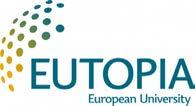
103 Institute for European Studies Annual Report 2020
• In pre-Covid times, at the beginning of 2020, the IES led an academic delegation to Warwick University to discuss further collaboration with PAIS (their Political and International Studies centre). IES President Karel De Gucht met with Warwick Vice-Chancellor Stuart Croft, while various discussion sessions were held with all members of IES management and their counterparts at Warwick. Both institutions progressed on joint education intiatives (Master & executive programmes) and both Warwick and Brussels co-financed a market study to test their collaborative ideas. Due to Covid, further physical meetings had to be postponed. The initiatives that were approved in February 2020 will have pursued as soon as possible.
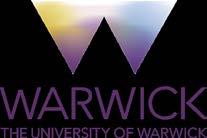
United Nations University - UNU-CRIS

In 2020, the Institute for European Studies continued to work closely with the Centre for Comparative Regional Integration Studies of the United Nations University (UNU-CRIS). Based in Bruges, UNU-CRIS conducts research and provides services in the field of regional integration in general, and on regional public goods and the role of regional organisations in globalization more specifically This research is done through scholars that are affiliated to either UGent or VUB. In the latter case, this involves the IES. The Institute’s researchers therefore contributed to two research projects in 2020: one on African return migration (called AMIREG), under the auspices of Prof. Dr. Ilke Adam and Prof. Dr. Florian Trauner, and one on alternative governance structures (called GREMLIN), under the auspices of Prof. Dr Jamal Shahin. The latter project (entitled in full: “The contribution of global and regional multistakeholder mechanisms in improving global governance”) is entirely financed by the VUB as par t of the university’s contribution to UNU-CRIS. PhD researcher Diana Potjomkina continued the third year working on her disser tation on multistakeholderism and trade, while a new PhD researcher Nadia Tjahja star ted her work on internet governance in September. IES senior researchers Trisha Meyer and Ferran Davesa are also involved in the project.
The IES also contributed to the second UNU-CRIS summer school through its scholars and network. Following the positive experience of organising a joint online Summer School with the Diplomatic Academy of Vienna (DA-
Wien), the IES shared its contacts with UNU-CRIS, who in turn teamed up with the DA-Wien to organise its online Summer School on Modern Diplomacy. While IES Executive Director Anthony Antoine continued to be the liaison between the IES and UNU-CRIS in 2020, the VUB also appointed former IES Academic Director Luk Van Langenhove as academic liaison in his capacity as University Assignment Holder for international networks. In order to further streamline the academic work at the two institutions, the IES Board also appointed UNU-CRIS' director Philippe de Lombaerde as full professor (10% ZAP) at the IES. This affiliation allows prof. de Lombaerde to also function as a promoter of PhDs, and as lead in project proposals. As in previous years, the contracts of three members of the UNU-CRIS administrative personnel were also handled through the IES.
Collaboration based on long-standing relationships
Education
Long-standing relationships form the basis for many of the Institute’s collaborative activities. Our senior and junior staff have developed and carefully nurtured a range of different relationships with various academic partners across Belgium, Europe, and beyond. In terms of education, these relationships have taken the form of visiting lectures, courses, and roles as members of examination committees.

Research
IES researchers are engaged with other institutes and organisations on an individual basis as well as on a more formalised level. These informal partnerships have been established for many years and concretely they take the shape of participation in seminars and panel discussions, acting as (keynote) speakers, co-organising workshops, coauthorship of publications, etc. Across our research centres, we have such partnerships with universities and institutes in a wide range of European and non-European countries.
Project-based collaboration
The Institute has integrated projects deeply into its 'DNA'. As shown in the Externally Funded Projects section of this report, 49 externally funded projects operated in 2020. The international networks established by our individual staff members continue to be used to great effect to contribute to the internationalisation of the Flemish research landscape. In this section, we highlight the academic collaboration that has stimulated and flowed from these projects. The IES participates in a range of different types of projects, from policy support (service contracts) to fundamental research projects. The IES is also active in educational projects, and some of these have entailed the creation of formal networks. All of these projects have involved international collaboration. Some (COP21-RIPPLES, PACT, KF-VUB Korea Chair, Japan Programme) go far beyond the EU’s boundaries. However, the majority of IES project-based collaborations remain within (or close to) the EU. Even so, the projects may have global reach. In the following pages the reader will find a list of some of IES' main partners in research, education, and projects for each of the IES’ research centres.
Institute for European Studies Annual Report 2020 Institute for European Studies Annual Report 2020 104 105
Centre for Digitalisation, Democracy and Innovation (CD2I)













University of Amsterdam Netherlands B CD2I member holds an assistant professor position
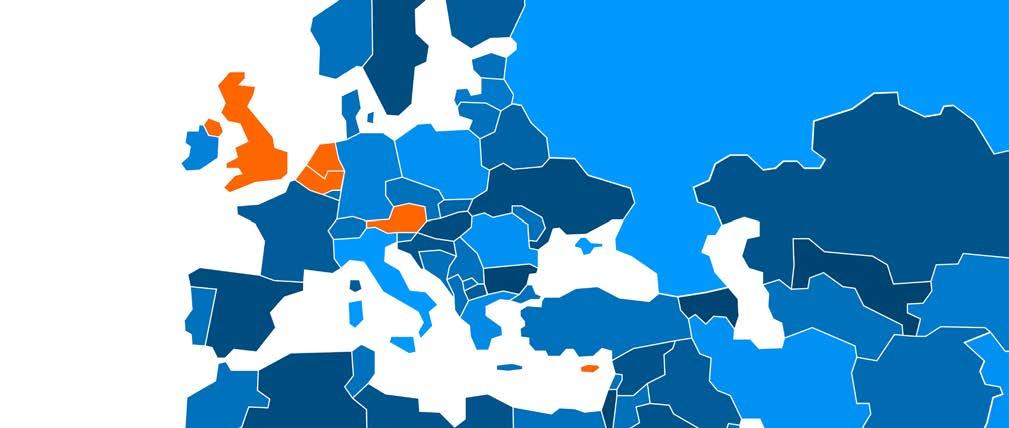
University of Antwerp Belgium R Partner in De Stemming, joint PhD, co-promotorship
University of Warwick United Kingdom B CD2I member is Fernandes Fellow; the Politics Department hosts a double degree agreement with the EuroMaster programme
UNU-CRIS Belgium R Partner in GREMLIN project, CD2I members are research and professorial fellows
Vesalius College Belgium B Partner in Brussel School of Governance, CD2I members hold professorial positions at College
Vienna School of International Studies– Diplomatische Akademie Wien
Austria E Partner in Jean Monnet Winter/ Summer School on EU PolicyMaking
NAME PARTNER COUNTRY
COLLABORATION IN RESEARCH (R), EDUCATION (E), OR BOTH (B)
DETAILS
Cyprus University of Technology Cyprus R Partner in REPAST project
EU Disinfolab Belgium R Project and event partner on disinformation research
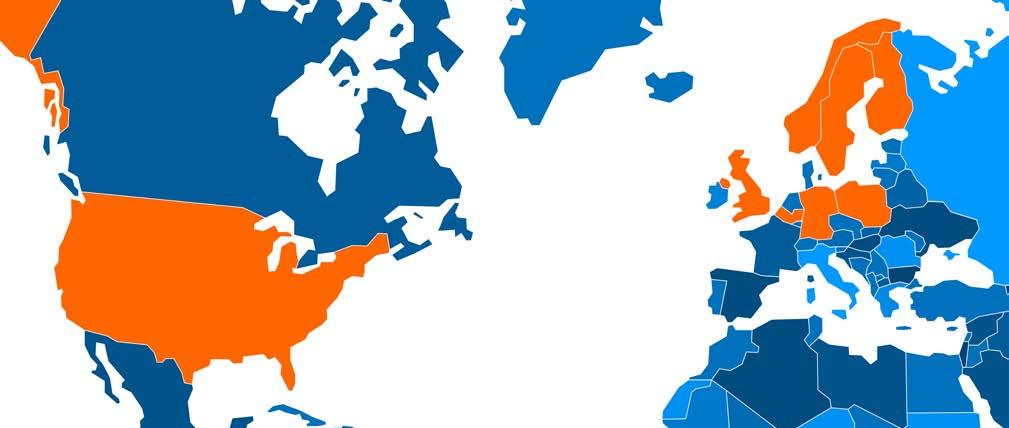
EU Institute for Security Studies Belgium R CD2I member is associate analyst
European Parliament Research Service Belgium R Associate Researcher is policy analyst
KU Leuven Belgium B CD2I members hold professorial positions
Maastricht University Netherlands B CD2I member holds professional position (honorary professor)
Université Catholique de Louvain Belgium B CD2I member holds professorial position
Universiteit Gent Belgium B Partner in GREMLIN project, visiting lectures, courses, joint PhD, co-promotorship
Centre for Environment, Economy and Energy (C3E)
Institute for European Studies Annual Report 2020 Institute for European Studies Annual Report 2020 106 107
NAME PARTNER COUNTRY
Adelphi Germany
COLLABORATION IN RESEARCH (R), EDUCATION (E), OR BOTH (B)
Centre for Security, Diplomacy and Strategy (CSDS)
DETAILS
R Decarbonisation and EU Foreign Policy
CICERO Norway R Partner in CONNECT project
Ecologic Institute Germany R Partner in several projects, incl. 4I-TRACTION




Energyville Belgium R Industrial decarbonisation
European Climate Foundation Belgium/EU
Fridtjof Nansen Institute Norway
Industrial decarbonisation
EU/international climate policy
Ghent University Belgium R Partner in GOVTRAN/FWO project
Lund University Sweden R Circular Economy
Tampere University Finland B EU law; human rights
University of East Anglia UK R Partner in GOVTRAN project
University of Eastern Finland Finland
Partner in several projects, incl. GOVTRAN/NDC ASPECTS/4ITRACTION; climate, trade energy
University of Oslo Norway R GOVTRAN and general
College of Europe Poland
University of Turku Finland
Wuppertal Institute Germany
EU and international economic law
Partner in COP21 RIPPLES/ NDC ASPECTS
Yale University USA R Circular Economy; Industrial ecology
NAME PARTNER COUNTRY
COLLABORATION IN RESEARCH (R), EDUCATION (E), OR BOTH (B) DETAILS
USC USA E Programme on EU Foreign Policy
Warwick – PAIS UK B Member of EUtopia network
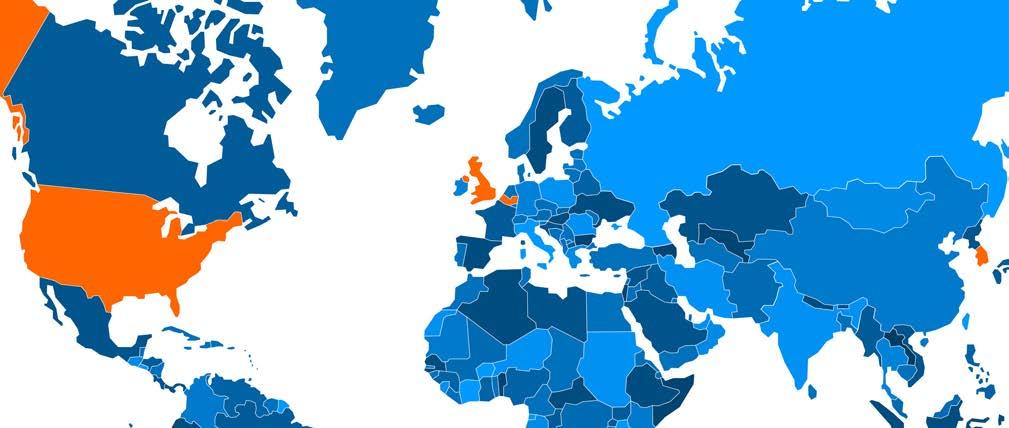
Vesalius College Belgium B Partner in Brussel School of Governance
Seoul National University (SNU) South Korea E SNU in the EU summer school
Institute for European Studies
Report 2020 Institute for European Studies Annual Report 2020 108 109
Annual
R
R
B
E
R
R
Centre for Migration, Diversity and Justice (MDJ)
NAME PARTNER COUNTRY COLLABORATION IN RESEARCH (R), EDUCATION (E), OR BOTH (B) DETAILS
Warwick – PAIS UK
Vesalius College Belgium
College of Europe Poland
Member of EUtopia network
Partner in Brussel School of Governance
Institute for Social Research Norway R Partner in H2020 project Bridges
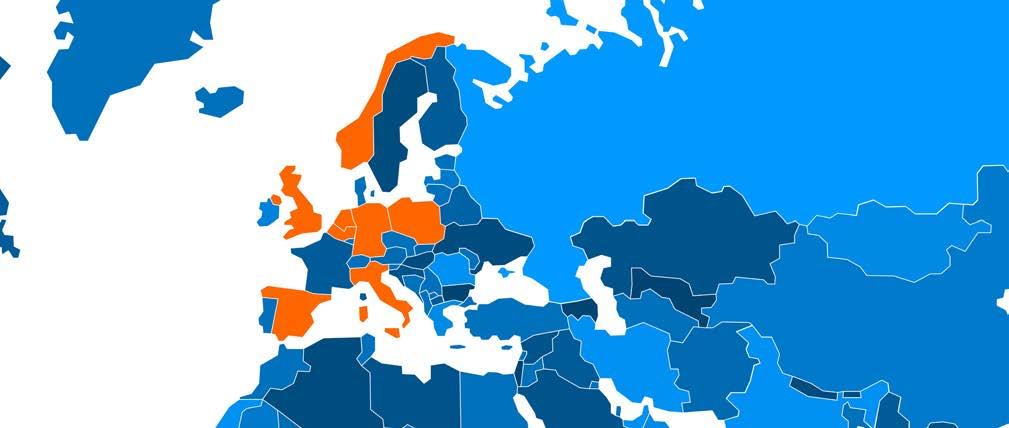
CIDOB Spain
Partner in H2020 project Bridges

Erasmus University of Rotterdam Netherlands R Partner in IMISCOE network
Hertie School of Governance Germany
Special Issue Project and PhD jury member
COLLEGIO CARLO ALBERTO – Turin Italy R Partner in H2020 Project WHOLE-COM








Institute for European Studies
Annual Report 2020
Institute for European Studies
Annual Report 2020
110
B
B
E
R
B
111
PERSONNEL MANAGEMENT
The Board is responsible for the appointment of all staff at the IES. However, substantial ZAP appointments and tenure must be confirmed by the Academic Board of university. Appointments of administrative staff are undertaken by daily management (the ExCom).
The total number of people directly paid by the IES in 2020 amounted to 52.3 full-time equivalents (as opposed to 52.4 FTE the year before). The total number of IES staff, including those not paid directly by the IES (e.g. the President, the Advisor, one Senior Academic, and all VUB-paid teaching and support staff) remained at 108.
An additional 11 people were associated with the Institute (as either senior associate fellow or visiting fellow). 7 different job students helped with basic research tasks and administration and we welcomed 8 interns. In 2020, 10 people left the Institute, while 10 new people joined the IES staff.
The Institute is headed by a Dean, who is assisted by two vice-Deans, an Executive Director and a Head of Secretariat.
Junior academic staff members are managed by their supervisors (in the case of PhD researchers) and/or by the project coordinators (in the case of project researchers).Progress and functioning of PhD researchers on the IES budget is presented annually and scrutinized by the Board. Other PhD researchers follow the procedures of the VUB and are assessed by their respective faculties.
The management of the Secretariat falls under the authority of the Executive Director and the Head of the Secretariat.Through meetings every six months, benchmarks are set for all secretariat personnel. Secretariat cluster coordinators serve as intermediaries between IES management and staff.

Institute for European Studies Annual Report 2020 113
PERSONNEL
OVERVIEW OF PERSONNEL AT THE IES
Departures
• Louise Baduel left the IES secretariat in January after a short term contract at the Marketing and Communication team.
• Alice Vervaeke ended her contract as project researcher and took up a new position as Program Coordinator at Carnegie Europe.
• Deborah Mar tens finished her 3-month stay on the GREMLIN project and left the Institute to work at Ghent University.
• Laura Iozzelli ended her contract as interim Project Manager on the GovTran Project.
• Antonios Nestoras finished his PhD contract at the IES and went on to become Head of Policy and Research at the European Liberal Forum.
• Daisy Bissoffi left the IES as project researcher in July.
• Elie Perot ended his PhD contract but stayed at the Institute to prepare further his PHD thesis.
• Stephan Klose ended his temporary contract as postdoctoral researcher.
• Derek Te Rijdt left the IES secretariat in October.
• Carlos Soria Rodriguez left the Institute to start a Marie Curie fellowship at the Jaen University in Spain.
Newcomers
• Jessica Callebaut joined the IES secretariat in January as Events Officer.
• Folashade Ajayi started in February as a PhD researcher in the Research Centre on Migration, Diversity and Justice (MDJ).
• In February Deborah Martens joined the Research Centre on Digitalisation, Democracy and Innovation on a short term collaboration to contribute to the GREMLIN research project.
• Raul Rios joined in February as project Researcher in the MDJ centre.
• Daisy Bissoffi as a previous intern, rejoined the MDJ centre as a project research assistant in June.
• In September Hannah Vermaut started as BIRMM Coördinator in the MDJ centre.
• Mohammad Salman and Zafer Kizilkaya started in September as senior researchers to work on a project on the Syrian conflict.
• Nadia Tjahja joined the GREMLIN project as a PhD researcher in the Research Centre on Digitalisation, Democracy and Innovation.
• Following the annual IES call for new PhD projects, Simon Happersberger, Fabio Figiaconi and Enrico Barranu started as PhD researchers at the Institute in October.
• October also saw the arrival of Kristin Henrard, international law professor in the MDJ Centre.
• In close collaboration with UNU-CRIS in Bruges, Philippe De Lombaerde started in October as a part-time
OVERVIEW OF PERSONNEL AT THE IES
Professor of Regional Economic Integration and the UN.
• Selçuk Ünekbas joined the Research Centre on Environment, Economy and Energy in November as a junior researcher.
• In November IES also welcomed Caterina Carta as part-time assistant professor.
• After defending her PhD, Laura Westerveen rejoined the IES in November as a postdoctoral researcher in the MDJ centre.
• Stephan Klose rejoined the IES again in December to contribute to the Centre for Security, Diplomacy and Strategy.
Four clusters were created in the Secretariat: one to assist the teaching programmes, and their staff and students, one to take care of the logistics (IT, acquisitions, events) and one that is responsible for marketing and recruitment. These fall under the authority of the Head of Secretariat. A final cluster is more overarching (HR, Finances, Research, ExCom assistance) and falls under the direct responsibility of the Executive Director.
Admin staff
• Finance: Anne Sterckx 75%
• HR: Pascale Sas 100%
• Communication & Marketing: Jurgen Smet 100%
• Communications Assistant: Maja Kovacevic 100%
• Marketing Assistant: Louise Baduel 50% (until January)
• Education: René Hermens 100%
• Events Officer: Jessica Callebaut 100% (since January)
• Events & Management Assistant: Derek-Jan Te Rijdt 90% (until October)
• Student Registration Officer & Administrative Assistant: Marion Tomsett 100%
• LLM Secretariat: Marleen Van Impe 80%
• IT: Peter Menke 60% (since April, formerly 50%)
• Projects Officer: Sara Silvestre 100%
• Projects & Events Assistant: Paula Cantero Dieguez 100%
• UNU-CRIS: Noël Neven 100%
• UNU-CRIS: Andrew Dunn 100%
• UNU-CRIS: Ajsela Masovic 80%
• Events logistics assistant: Jelle De Smet 80% (since December)
• Following initiation of collaboration with Vesalius College, the IES was also able to draw up on the services of Koji Yamauchi as part-time Technical expert for Teaching and Learning Innovation in October.
Institute for European Studies Annual Report 2020 Institute for European Studies Annual Report 2020 114 115
OVERVIEW OF PERSONNEL AT THE IES
OVERVIEW OF PERSONNEL AT THE IES
Management
• President: Karel De Gucht

• Dean: Luc Soete
• Vice Dean for research: Alexander Mattelaer 80%
• Vice Dean for Education: Sven Van Kerckhoven 20%






• Executive Director: Anthony Antoine 100%
• Head of Secretariat: Jacintha Liem 100%

• Teaching programme management (LLM): Harri Kalimo
• Teaching programme management (MSc programme): Jamal Shahin
Professors and Postdoctoral researchers
• Ilke Adam 100%
• Dirk Arts 5%
• Caroline Buts 10%
• Caterina Carta 20% (since November)
• Andrew Crosby 50%
• Raluca Csernatoni 10%
• Serena D’Agostino 80% (since October – formerly 70%)
• Ferran Davesa 85% (since October – formerly 95%)
• Karel De Gucht 10%
• Paul De Hert 10%
• Philippe De Lombaerde 10% (since December, formerly 5% since October)
• Youri Devuyst 10%
• Daniel Fiott 10%
• Ricardo Gosalbo Bono 5%
• Serge Gutwirth 10%
• Kristin Henrard 20% (since October)
• Frank Hoffmeister 10%
• Tony Joris 25%
• Harri Kalimo 100%
• Tongfi Kim 20%
• Zafer Kizilkaya 20% (since September)
• Stephan Klose 30% (since December, formerly 100% until September)
• Marie Lamensch 10%
• Jonas Lefevere 20%
• Richard Lewis*
• Deborah Martens (100% February – April)
• Alexander Mattelaer 80%
• Trisha Meyer 60%
• Arnaud Nuyts 10%
• Sebastian Oberthür 60%
• Mohammad Salman 20% (since September)
• Jamal Shahin 60%
• Luis Simon 100%
• Stefaan Smis 10%
• Ben Smulders 10%
• Carlos Soria Rodriguez 70% (since April –formerly 60% March, 50% January-February)
• Angela Tacea*
• Olesya Tkacheva 20%
• Florian Trauner 70%
• Irina Van Der Vet 100%
• Leo van Hove 10%
• Sven Van Kerckhoven 20%
• Luk Van Langenhove 10% (since 1 October, formerly 70%)
• Servatius van Thiel 10%
• Johan Verbeke 10%
• Hannah Vermaut 100% (since September)
• Ingmar Von Homeyer 50%
• Laura Westerveen 40% (since November)
Project researchers and PhD students
• Folashade Ajayi 100% (since February)
• Matilda Axelson 100%
• Enrico Barranu 100% (since October)
• Daisy Bissoffi 80% (June/July), 100% since then
• Aslak Busch 100%
• Linde Desmaele 100%
• Maximilian Ernst 100%
• Fabio Figiaconi 100% (since October)
• Jana Gheuens 100%
• Marco Giuli 100% *
• Orsolya Gulyas 100%
• Simon Happersberger 100% (since October)
• Laura Iozzelli 50% (March-May, formerly 70%)
• Gauri Khandekar 100%
• Lea Mateo 100%
• Antonios Nestoras 100% (until May)
• Elie Perot 100% (until September)
• Silviu Piros 100%
• Diana Potjomkina 100%
• Raul Rios 100% (since March)
• Olof Soebech 80% (since August, formerly 100%)
• Philipp Stutz 100%
• Nadia Tjahja 100% (since September)
• Selçukhan Ünekbas 20% (since November)
• Laura Vansina 100% *
• Maaike Verbruggen 100%
• Alice Vervaeke 100%
• Tomas Wyns 100%
*Supported by other funds
Institute for European Studies Annual Report 2020 Institute for European Studies Annual Report 2020 116 117
OVERVIEW OF PERSONNEL AT THE IES
PhD researchers supported by other funds

• Neepa Acharya
• Zana Abdallah
• Akbar Asma
• Berdak Bayimbetov
• Omar N. Cham
• Inan Izci
• Jakimowicz Katarzyna
• Jimi Hendry Nzally
• Polizzi Giuseppe Luca
• Nwabuzo Ojeaku
• Hanna Elisabeth Schneider
• Fatma Sevgi Temizisler
• Fabian Tudor Petru
• Lingyu Xu
• Rui Yan
• Huang Yijia
• XiuLing Ye
• Nechev Zoran
• Laura Iozzelli
• Maarja Meitern
• Young-in Lee
• Isaïa Lennart
• Zonglyu Ma
• Ünekbas Selçukhan
• Todhe Fausta
• Roessing Neto Ernesto
• Top Sibel
Institute for European Studies Annual Report 2020 118
Institute for European Studies Annual Report 2020 119
QUALITY ASSURANCE
QUALITY ASSURANCE
Quality control is measured ex ante as well as ex post at various levels and in different formats. In terms of attracting academic staff and administrative personnel, the IES applies the highest standards through a quality control procedure. The IES Board, the Research Council, the Education Council, and the Executive Committee safeguard the overall quality of their respective areas. In its financial management, the IES implements both internal and external control; equally in its services, the IES delivers the best possible services and tries to improve them through feedback from its clients.
Quality of personnel
Quality is aimed for through competitive, open and international recruitment procedures and through a monitoring system of benchmark meetings and student feedback (for the academic staff) and performance reviews (for the administrative staff).

Selection of senior academic staff is done on the basis of interviews and selection by an independent selection committee that also includes external experts. Potential teaching staff who will be in front of a class for the first time must also give a test lecture that is assessed by both colleagues and students. Teaching staff are further assessed by the Academic Council of the university before a final appointment is made. Candidates for professorships (ZAP) also follow VUB university appointment procedures.
For research, special attention is paid to the recruitment of doctoral students. Every year, the IES makes a competitive selection in which the best projects (coupled with excellent CVs of potential researchers) are selected. Doctoral students are primarily monitored by his/her promoter and the doctoral committee, but the (doctoral) research is also structurally embedded in to one of the Institute's research centres. In addition, periodic research colloquiums are organized (mandatory for doctoral researchers), in which the researcher is subjected to peer review.
In 2020, the IES launched two PhD calls: one in the field of International Security and one to conduct research on the challenges of the sustainability of transitions. The vacancies attracted a large number of candidates, who were scrutinised by a diverse team of scholars. After interviews with the most promising candidates by the research centre coordinators and a team of scholars and staff, eventually three PhD researchers were appointed by the IES Academic Board and awarded a scholarship for a maximum duration of four years.
The quality of personnel is fur ther monitored through periodical evaluations. For IES ZAP professors, the individual benchmark meetings with the Vice-Dean for Research took place in Spring 2020. PhD researchers meet their promoter and supervisory committee at least twice a year, while all other academic personnel are assessed on a yearly basis. At Secretariat level, administrative staff are evaluated through the VUB’s TEO assessment
Institute for European Studies Annual Report 2020 121
QUALITY ASSURANCE
procedure. In 2020, as part of the integration process, the individual meetings took place in October.
In addition, sustainability is achieved by efforts to retain excellent staff. Attention is paid not only to the possibility of promotion, but also to flexibility alternatives (such as teleworking). In the framework of lifelong learning, a modest budget foresees support for individual or collective training sessions and/or extra courses. In order to enable the development and integration of its academic and administrative staff with a foreign background, the Institute also organises regular Dutch language courses.
Quality of research
PhD and senior researchers are appointed after a thorough selection procedure involving an international call for applications, including external scrutiny and interviews (see above). Research progress of PhD students is monitored continuously by the promoter, the doctoral committee (twice per year), the responsible senior IES researcher, and the Vice-Dean for Research in accordance with IES PhD Guidelines (incorporated in the Guidelines for Academic Staff). In the process of this quality control, junior researchers present a state of affairs of their findings at least once per year at research colloquiums (held biweekly). There is a close collaboration with the Doctoral School in Social Sciences, organised by the university as a whole.
Quality of education
Teaching staff are recruited through international vacancy announcements, subject to external scrutiny, interviews and trial lectures. Students annually assess the quality of the teachers / courses through feedback forms. The Dean, the Vice-Dean for Education, as well as the Programme Directors of the respective programmes oversee the follow-up of programme questions relating to teaching, learning and the overall learning objectives of both modules and programmes. In addition, by monitoring a central database, the VUB ensures quality control when entering course descriptions, exam methodology, and student guidance.
Quality of students
The IES ensures a strict selection of students, with a high level of student intake. Student selection is monitored and analysed by Programme Directors and the IES Board. In addition, its educational programmes are accredited and subject to periodical VUB and student evaluations.
Students in the Advanced Master programmes, the Post- graduate programmes and in the IES Summer School are carefully selected, based on their study background and results, their command of English, their suitability and motivation, as well as the contact details of referees who are available for feedback on the candidate. Applicants for the Advanced Master programmes need to have a Master's degree before starting their studies at the IES. Exceptionally, highly motivated BA students are admitted, but only if they have a study background of at least 240 ECTS (which equals a Belgian Master programme) and work experience that is compatible with the programme.
Quality of services
QUALITY ASSURANCE
The IES monitors the quality of its services (events) through a combination of research centre processes, by measuring marketing efforts, and by conducting post-event evaluations. For all relevant major physical or digital activities organised at the IES, an evaluation (by form, email, or phone conversation) is done after the event to assess the quality of the service. Bases on this feedback and experience, regular internal reviews are carried out where strengths and weaknesses are assessed in order to identify potential for improvement. In terms of quality and maintenance of our equipment, the technical team carries out checks prior to the event. For catering services, the IES works with ‘green’ suppliers that comply with standard hygiene and service regulations. Extensive online and social media evaluations of all major activities lead to optimal analysis of the impact of events on different target groups. This monitoring process is currently assessing visibility of research, societal relevance, and knowledge transfer.
Quality of finances
The Finance Officer is supervised by the Executive Director, who in turn reports to the Board of the IES. An external auditor annually vets the overall finances (currently BDO Auditors). Following EC rules, European-funded projects of a certain magnitude (FP7 and H2020) are individually scrutinised by an auditor prior to submitting the periodic financial figures to the Commission.
Institute for European Studies Annual Report 2020 Institute for European Studies Annual Report 2020 122 123
FINANCIAL REPORT
FINANCIAL REPORT
The IES closed its accounting for 2020 with a loss of € 256,716, mainly due to the impact of COVID-19. As an international frontrunner (with international students and projects), the Institute has been very much affected by measures with an international impact. For example, travel bans and quarantine measures led to the cancellation of exchange programmes and summer schools with foreign partners, as well as to the withdrawal of some Advanced Master students who had already enrolled. In addition, the biennial international EUIA conference, scheduled for May 2020, had to be postponed and will now take place digitally in 2021. The pandemic also had an effect on a number of research projects. Some projects that were initially scheduled to start in the autumn were postponed to 2021 and for some projects the IES needed to refund the subsidizing partner at the end of 2020. A request is therefore being submitted to the government to compensate for the additional costs and especially the lost income due to the Corona measures. This lost income is substantial:
- Less income Advanced Master programmes: 54.000
- EUIA conference (cancellation and postponement to digital version 2021): 40.000
- USC and SNU summer schools – cancellation: 112.500
- Postponed and cancelled externally funded projects: 101.671
- Lost income regarding the provision of classrooms: 26.500
- Lost income relating to other events: 32.589
- TOTAL 367.260
These amounts only include income and expenditure that are no longer recoverable. Some projects were postponed while retaining the budget. This means that both income and expenditure will be postponed to a later date. They are not included in the above figures.
The Corona measures also forced us to deploy additional staff to ensure that the digitisation of the classes ran smoothly In addition, extra precautions had to be taken (plexi screens, hand gels, face masks, etc.) and additional investments were needed to make the online platform (Canvas) more efficient. There were also some non-recoverable costs related to cancelled trips and conferences during the first lockdown. In total, all these additional costs amounted to ± € 62,000.
On the other hand, there was less expenditure relating to the organization of events, the postponement of projects and the limitation of international travel (among other things to strengthen the existing networks). The (net) reduction in expenditure is estimated at € 137,000. The net loss that can be directly traced back to the pandemic is therefore € 292,200.
The loss is therefore exceptional and the Institute hopes to be able to compensate some of the losses through the government’s financial relief measures, which could ultimately lead to a break-even situation. Measures to ensure that the exceptional losses incomed in 2020 will not be repeated in 2021 are already in hand including by means of a large number of new externally funded projects in the pipeline.

Institute for European Studies Annual Report 2020 125
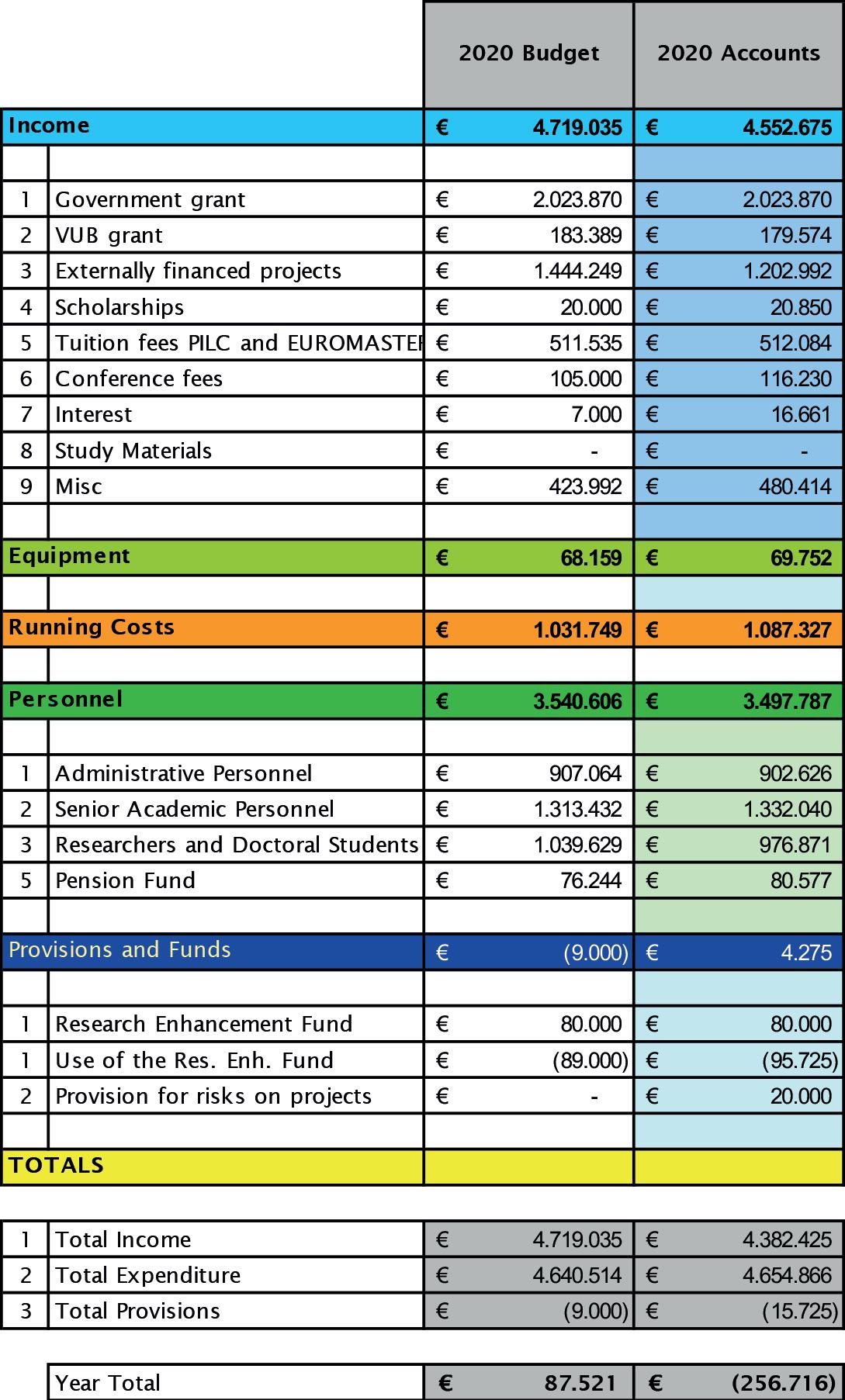
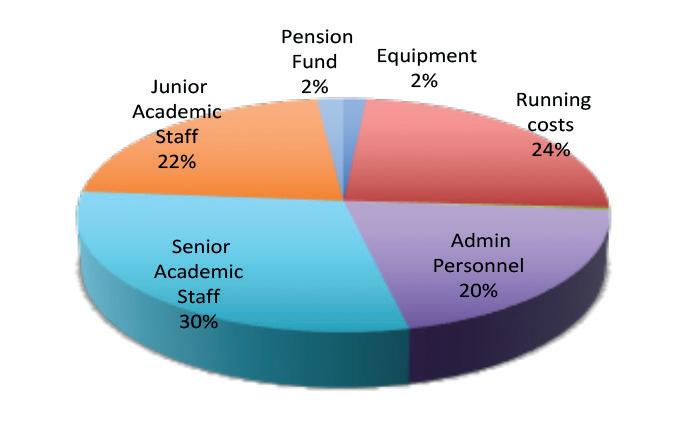
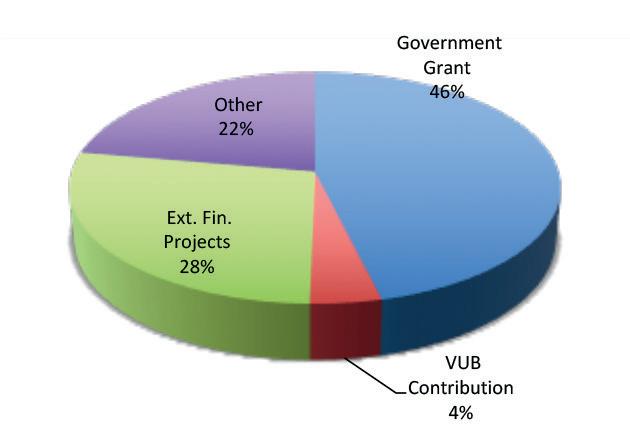
Institute for European Studies Annual Report 2020 Institute for European Studies Annual Report 2020 126 127 IES Expenses 2020 IES Income 2020
Books
Fiott, D. (2020). The CSDP in 2020: The EU’s Legacy and Ambition in Security and Defence. Paris: EU Institute for Security Studies.
Lamensch, M., Traversa, E., & Herbain, C. (2020). Taxe sur la Valeur Ajoutée, Droit belge et européen. Larcier.
Pilet, J-B., Baudewyns, P., Deschouwer, K., Kern, A., & Lefevere, J. (Eds.) (2020). De Belgen verheffen hun stem: Een analyse van het stemgedrag op 26 mei 2019. Louvain-La-Neuve, Belgium: PUL - Presses Universitaires de Louvain.
Pilet, J-B., Baudewyns, P., Deschouwer, K., Kern, A., & Lefevere, J. (Eds.) (2020). Les Belges haussent leur voix: Une analyse des comportements électoraux du 26 mai 2019. Louvain-La-Neuve, Belgium: PUL - Presses Universitaires de Louvain.
Tacea, A. (2020). Des gouvernements sous le regard de leur parlement. La participation des parlements français, italien et britannique à l’élaboration et au contrôle des politiques européennes de justice et de sécurité intérieure. Paris: Lextenso / LGDJ.
Xhardez, C., Counet, M., Randour, F., & Niessen, C. (Eds.) (2020). 50 ans de fédéralisation de l’État belge: Institutions, acteurs, politiques publiques et particularités du fédéralisme belge. Louvain-la-Neuve: Academia / L’Harmattan.
Book chapters
Adam, I., Trauner, F., & Martens, M. (2020). The migration-development nexus in selected African states: is the implementation of EU migration policies development-friendly? In G. Rayp, I. Ruyssen, & K. Marchand (Eds.), Regional Integration and Migration Governance in the Global South (pp. 201-215). New York: Springer.
Benney, T., Orsini, A., Cantwell, D., & Iozzelli, L. (2020). Agency in Earth System Governance: Theories and Methods of Agency Research in Earth System Governance. In Agency in Earth System Governance (pp. 38-51). Cambridge University Press.
Bisoffi, D., & van der Vet, I. (2020). Comparative analysis of the national decision-making procedures in the context of counter-radicalisation: the cases of Belgium, Italy and the United Kingdom. In E. Reuge (Ed.), White Book on CVE.
The Collection of Policy Papers (pp. 81-106). Brussels: H2020 Mindb4Act.
Bouteca, N., & Lefevere, J. (2020). Lokale variaties in partijreputaties? De nationalisering van issue ownership in de lokale verkiezingen van 2018. In R. Dandoy, J. Dodeigne, K. Steyvers, & T. Verthé (Eds.), De lokale kiezer heeft zijn voorkeur (pp. 67-86). Vanden Broele.
Bouteca, N., & Lefevere, J. (2020). Variations locales de la réputation des partis? La nationalisation de la propriété des enjeux politiques lors des élections communales de 2018. In R. Dandoy, J. Dodeign, K. Steyvers, & T. Verthé (Eds.), L’électeur(trice) local(e) a ses préférences (pp. 69-88). Vanden Broele.
Devroe, R., Erzeel, S., Van Trappen, S., Janssen, C., & Lefevere, J. (2020). Gendergerelateerd stemgedrag: het belang van individuele kenmerken en beleidsvoorkeuren van kiezers. In R. Dandoy, J. Dodeigne, K. Steyvers, & T. Verthé (Eds.), De lokale kiezer heeft zijn voorkeur (pp. 199-221). Vanden Broele.
Devroe, R., Erzeel, S., Van Trappen, S., Janssen, C., & Lefevere, J. (2020). Le comportement de vote lié au genre: l’importance des caractéristiques individuelles et des préférences politiques des électeurs. In R. Dandoy, J. Dodeigne, K. Steyvers, & T. Verthé (Eds.), L’électeur(trice) local(e) a ses préférences (pp. 199-222). Vanden Broele.
Ernst, M. (2020). Germany-South Korea Relations. In R. Pacheco Pardo (Ed.), Mapping Out EU-South Korea Relations: Key Member States’ Perspectives (pp. 29-38). Brussels: KF-VUB Korea Chair.
Fiott, D. (2020). Financing Rhetoric? The European Defence Fund and Dual-Use Technologies. In Emerging Security Technologies and EU Governance : Actors, Practices and Processes (pp. 42-57). Routledge.
Fiott, D. (2020). As You Were? The EU as an Evolving Military Actor. In The CSDP in
Institute for European Studies Annual Report 2020 Institute for European Studies Annual Report 2020 128 129
ANNEX
ANNEX
PUBLICATIONS
PUBLICATIONS PUBLICATIONS
PUBLICATIONS
2020: The EU’s Legacy and Ambition in Security and Defence (pp. 110-122). Paris: EU Institute for Security Studies .
Fiott, D. (2020). Introduction. In The CSDP in 2020: The EU’s Legacy and Ambition in Security and Defence (pp. 6-13). Paris: EU Institute for Security Studies.
Giacinti, F., Reuge, E., van der Vet, I., Rios, R., Bisoffi, D., Raven, A., & Sahar, A. (2020). How to Foster Knowledge Partnership (Industry, Academia and Civil Society). In E. Reuge (Ed.), White Book on CVE. The Collection of Policy Papers (pp. 6580). Brussels: H2020 Mindb4Act Project.
Henrard, K. (2020). ‘Reflections on the right to legal identity’. In N. Efthymiou, & P. Huisman (Eds.), De vele facetten van het staatsrecht (pp. 247-272). Nijmegen: Wolf Legal Publishers.
Hickmann, T., van Asselt, H., Oberthur, S., Sanderink, L., Widerberg, O., & Zelli, F. (2020). Institutional Interlinkages. In Architectures of Earth System Governance: Institutional Complexity and Structural Transformation (pp. 119-136). Cambridge University Press.
Lamensch, M. (2020). Key policy issues for the future of the EU VAT system. In EU Tax Research handbook (pp. 340–358).
London: Edward Elgar Publishing Ltd..
Mattelaer, A. (2020). Partnerships. In C. Mölling, & T. Schütz (Eds.), The EU’s Strategic Compass and Its Four Baskets: Recommendations to Make the Most of It (pp. 12-13). Deutsche Gesellschaft für Auswärtige Politik (DGAP).
Mattelaer, A. (2020). Belgium. In C. Mölling, & S. Becker (Eds.), (Nuclear) Sharing is Caring: European Views on NATO Nuclear Deterrence and the German Nuclear Sharing Debate (pp. 7-7). Deutsche Gesellschaft für Auswärtige Politik (DGAP).
Mattelaer, A. (2020). The geographically asymmetric impact of Brexit. In J. Wachowiak, & F. Zuleeg (Eds.), Towards an ambitious, broad, deep and flexible EU-UK partnership? (pp. 61-65). Brussels: European Policy Centre.
Meyer, T., Hanot, C., & Posetti, J. (2020). Curatorial Responses. In Balancing Act: Countering Digital Disinformation While Respecting Freedom of Expression: Broadband Commission research report on ‘Freedom of Expression and Addressing Disinformation on the Internet’ (pp. 141-168). International Telecommunication Union and United Nations Educational, Scientific and Cultural Organization.
Meyer, T., Hanot, C., & Posetti, J. (2020). National and International Counter Disinformation Campaigns. In Balancing Act: Countering Digital Disinformation While Respecting Freedom of Expression: Broadband Commission research report on ‘Freedom of Expression and Addressing Disinformation on the Internet’ (pp. 113-122). International Telecommunication
Union and United Nations Educational, Scientific and Cultural Organization.
Meyer, T., Hanot, C., Posetti, J., & Teyssou, D. (2020). Legislative, Pre-Legislative, and Policy Responses. In Balancing Act: Countering Digital Disinformation While Respecting Freedom of Expression: Broadband Commission research report on ‘Freedom of Expression and Addressing Disinformation on the Internet’ (pp. 97112). International Telecommunication Union and United Nations Educational, Scientific and Cultural Organization.
Meyer, T., Marsden, C., & Brown, I. (2020). Regulating Internet content with technology: analysis of policy initiatives relevant to illegal content and disinformation online in the European Union. In G. Terzis, D. Kloza, E. Kuzelewska, & D. Trottier (Eds.), Disinformation and digital media as a challenge for democracy (Vol. 6, pp. 309326). (European Integration and Democracy Series). Cambridge: Intersentia.
Pilet, J-B. (Ed.), Baudewyns, P. (Ed.), Deschouwer, K. (Ed.), Kern, A. (Ed.), Lefevere, J. (Ed.), Walgrave, S., ... Baudewyns, P. (2020). Comment l’importance d’une question pousse les électeurs vers la gauche ou vers la droite. In Les Belges haussent leur voix: Une analyse des comportements électoraux du 26 mai 2019 (pp. 105-124). Louvain-La-Neuve, Belgium: PUL - Presses Universitaires de Louvain.
Pilet, J-B. (Ed.), Baudewyns, P. (Ed.), Deschouwer, K. (Ed.), Kern, A. (Ed.), Lefevere, J. (Ed.), van Erkel, P., ... Baudewyns, P. (2020). Des transferts de voix avant ou pendant la campagne? Une étude sur les transferts électoraux lors des élections de 2019 en Belgique. In Les Belges haussent leur voix: Une analyse des comportements électoraux du 26 mai 2019 (pp. 27-56). Louvain-La-Neuve, Belgium: PUL - Presses Universitaires de Louvain.
Pilet, J-B. (Ed.), Baudewyns, P. (Ed.), Deschouwer, K. (Ed.), Kern, A. (Ed.), Lefevere, J. (Ed.), Walgrave, S., ... Baudewyns, P. (2020). Hoe het belang van thema’s
Institute for European Studies Annual Report 2020 Institute for European Studies Annual Report 2020 130 131
ANNEX PUBLICATIONS ANNEX
PUBLICATIONS
PUBLICATIONS
kiezers naar links of rechts drijft. In De Belgen verheffen hun stem: Een analyse van het stemgedrag op 26 mei 2019 (pp. 105-124). Louvain-La-Neuve, Belgium: PUL - Presses Universitaires de Louvain.
Pilet, J-B. (Ed.), Baudewyns, P. (Ed.), Deschouwer, K. (Ed.), Kern, A. (Ed.), Lefevere, J. (Ed.), Pilet, J-B., ... Baudewyns, P. (2020). Inleiding. De belangrijkste cijfers en trends van de verkiezingen van 2019. In De Belgen verheffen hun stem: Een analyse van het stemgedrag op 26 mei 2019 (pp. 9-27). Louvain-La-Neuve, Belgium: PUL - Presses Universitaires de Louvain.
Pilet, J-B. (Ed.), Baudewyns, P. (Ed.), Deschouwer, K. (Ed.), Kern, A. (Ed.), Lefevere, J. (Ed.), Pilet, J-B., ... Baudewyns, P. (2020). Introduction. Les principaux chiffres et tendances des élections du 26 mai 2019. In Les Belges haussent leur voix: Une analyse des comportements électoraux du 26 mai 2019 (pp. 9-27). Louvain-La-Neuve, Belgium: PUL - Presses Universitaires de Louvain.
Pilet, J-B. (Ed.), Baudewyns, P. (Ed.), Deschouwer, K. (Ed.), Kern, A. (Ed.), Lefevere, J. (Ed.), van Erkel, P., ... Baudewyns, P. (2020). Verschuivingen voor of tijdens de campagne? Verschuivingen in partijkeuze tijdens de Belgische verkiezingen van 2019. In De Belgen verheffen hun stem: Een analyse van het stemgedrag op 26 mei 2019 (pp. 27-56). Louvain-La-Neuve, Belgium: PUL - Presses Universitaires de Louvain.
Piros, S., & Koops, J. (2020). Towards a Sustainable Approach to EU Education Diplomacy? The Case of Capacity-Building in the Eastern Neighbourhood. In C. Carta, & R. Higgott (Eds.), Cultural Diplomacy in Europe: Between the Domestic and the International (pp. 113-138). Palgrave Macmillan.
Rios, R. (2020). National Level Policy Papers: Belgium. In E. Reuge (Ed.), White Book on CVE. The Collection of Policy Papers (pp. 155-167). European Organisation for Security.
Rios, R., & van der Vet, I. (2020). European Union Trends in Prevention of Radicalisation and Violent Extremism: Experiences of European Stakeholders. In E. Reuge (Ed.), White Book on CVE. The Collection of Policy Papers (pp. 107-123). Brussels: H2020 Mindb4Act Project.
Roos, C. (2020). EU Migrationsrecht - politikwissenschaftliche Betrachtung, in Wollenschläger, Ferdinand (ed.), Enzyklopädie Europarecht, Band 10, Baden Baden: Nomos. In F. Wollenschläger (Ed.), Enzyklopädie Europarecht, Band 10 (2 ed., Vol. 3, pp. 595-619). Baden Baden: Nomos Verlagsgesellschaft.
Tkacheva, O. (2020). Statistical Significance. In J-F. Morin, C. Olsson, & E. Ozlem Atikcan (Eds.), Research Methods in
Social Sciences: An A-Z of Key Concepts Oxford University Press.
Tkacheva, O., & Libicki, M. (Accepted/In press). Cyber Escalation Ladder or Lattice? In T. Stevens, K. Floyd, & P. Pernik (Eds.), Cyber Threats: Horizon Scanning and Analysis Tallinn, Estonia: NATO Cooperative Cyber Defence Centre of Excellence.
Trauner, F. (2020). EU Migration Policy : Will More Money Solve Old Conflicts? In B. Laffan, & A. De Feo (Eds.), EU Financing for Next Decade: Beyond the MFF 20212027 and Next Generation EU (pp. 167-177). European University Institute.
Trauner, F., & Ripoll Servent, A. (2020). Justice and Home Affairs in the European Union. In Justice and Home Affairs in the European Union (pp. 1-23). (Oxford Encyclopedia of European Union Politics). Oxford University Press.
Van Kerckhoven, S., Van Meerten, M., & Wellman, C. (2020). Contract Brewing and its implications for the beer industry. In E. Madsen, J. Gammelgaard, & B. Hobdari
(Eds.), New Developments in the Brewing Industry: The role of institutions and ownership (pp. 235-255). Oxford University Press.
Van Kerckhoven, S., Van Meerten, M., & Wellman, C. (2020). The Dynamics of the Hops Industry. In E. S. Madsen, J. Gammelgaard, & B. Hobdari (Eds.), New Development in the Brewing Industry: The Role of Institutions and Ownership (pp. 72-102). Oxford University Press.
Verbruggen, M. (2020). The extensive role of artificial intelligence in military transformation. In The Impact of Artificial Intelligence on Strategic Stability and Nuclear Risk: Volume III South Asian Perspectives (Vol. III, pp. 11-16). Stockholm: Stockholm International Peace Research Institute (SIPRI).
Xhardez, C. (2020). Divided Belgium: Flemish nationalism and the rise of proseparatist politics. In C. Kostov (Ed.), Separatism and Regionalism in Modern Europe (pp. 133-157). Berlin: Logos Verlag.
Institute for European Studies Annual Report 2020 Institute for European Studies Annual Report 2020 132 133
ANNEX
ANNEX
PUBLICATIONS
PUBLICATIONS
Vulgarizing
Adam, I. (2020). Gesloten grenzen : een uitgelezen kans voor bezinning over een nieuw migratie-beleid. In Post-viraal naar een nieuw normaal. : VUB stemmen over de impact van corona op onze samenleving (pp. 153-156). Brussel: VUBPRESS.
Fiott, D. (2020). What If... The EU Develops a More Strategic CSDP? In F. Gaub (Ed.), What If...: 14 Futures for 2024 (157 ed., pp. 14-17). Paris: EU Institute for Security Studies .
Articles – peer reviewed
Adam, I., Trauner, F., Jegen, L., & Roos, C. (2020). West African Interests in (EU) Migration Policy: Balancing Domestic Priorities with External Incentives. Journal of Ethnic and Migration studies 46(15), 3101-3118.
Belkhodja, C., & Xhardez, C. (Accepted/In press). « Nous sommes de retour ! » : Justin Trudeau et la gestion de l’immigration. Etudes canadiennes / Canadian Studies (89), 179-204
Cvijanovic, V., Griniece, E., Gulyas, O., Reid, A., & Varga, H. (2020). Stakeholder engagement through entrepreneurial discovery? Lessons from countries and regions in Central and Eastern Europe. Cogent Social Sciences 6(1), [1794273].
Dupont-(Roche Kelly), C., Oberthur, S., & Von Homeyer, I. (2020). The Covid-19 crisis: a critical juncture for EU climate policy development? Journal of European Integration 42(8), 1095-1110.
Ernst, M. (2020). On Shifting a Nation’s Collective Memory: The Role of Ahn Jung-geun in South Korea’s Foreign Policy. Asian Journal of Peacebuilding, 8(2), 373-389.
Ernst, M., & Kim, E. (2020). Economic Development under Kim Jong-un: The Added Value of Traffic Data and Established Indicators in the Study of North Korea’s Economy. North Korean Review 16(2), 26-48.
Gallina, M., Baudewyns, P., & Lefevere, J. (Accepted/In press). Political sophistication and populist party support. The case of PTB-PVDA and VB in the 2019 Belgian elections. Politics of the Low Countries.
Henrard, K. (2020). State obligations to counter Islamophobia: Comparing fault lines in the supervisory practice of the
HRC/ICCPR, the ECtHR and the AC/FCNM. Erasmus Law Review 13(3), 82-97.
Klingler-Vidra, R., & Pacheco Pardo, R. (2020). Legitimate Social Purpose and South Korea’s support for entrepreneurial finance since the Asian Financial Crisis. New Political Economy, 25(3), 337-353.
Klose, S. (2020). Interactionist role theory meets ontological security studies: an exploration of synergies between socio-psychological approaches to the study of international relations. European Journal of International Relations, 26(3), 851874.
Kulovesi, K., & Oberthur, S. (2020). Assessing the EU’s 2030 Climate and Energy Policy Framework: Incremental change toward radical transformation? . Review of European, Comparative and International Environmental Law 29(2), 151-166.
Lefevere, J., Seeberg, H., & Walgrave, S. (2020). Negatively affecting voters’ issue considerations. An experimental study of parties’ attack communication. Political Communication 37(6), 812-831.
Lefevere, J., Van Aelst, P., & Peeters, J. (Accepted/In press). Campaigning on- and offline: different ballgames? Presidentialisation, issue attention and negativity in parties’ Facebook and newspaper ads in the 2019 Belgian general elections. Politics of the Low Countries
Mackens, S., Santos-Ribeiro, S., Racca, A., Daneels, D., Koch, A., Essahib, W., ... Van de Velde, H. (2020). The proliferative phase endometrium in IVF/ICSI: an in-cycle molecular analysis predictive of the outcome following fresh embryo transfer. Human Reproduction 35(1), 130-144.
Marsden, C., Meyer, T., & Brown, I. (2020). Platform values and democratic elections: How can the law regulate digital disinformation? Computer Law & Security Review 36, [105373].
Meibauer, G., Desmaele, L., Onea, T., Kitchen, N., Foulon, M., Reichwein, A., & Sterling-
Institute for European Studies Annual Report 2020 Institute for European Studies Annual Report 2020 134 135
ANNEX PUBLICATIONS ANNEX PUBLICATIONS
PUBLICATIONS
Folker, J. (2020). Rethinking Neoclassical Realism at Theory’s End. International Studies Review , 1. Oberthur, S., & Groen, L. (2020). Hardening and softening of multilateral climate governance towards the Paris Agreement. Journal environmental policy planning, 22(6), 801-813.
Paquet, M., & Xhardez, C. (2020). Immigrant integration policies when regions decide ‘who comes in’: the case of Canadian provinces. Regional Studies 54(11), 1519-1534.
Potjomkina, D., Orbie, J., & Shahin, J. (2020). Forging their path in the Brussels bubble? Civil society resistance within the domestic advisory groups created under the EU trade agreements. Cambridge Review of International Affairs 2020, 1–20.
Roos, C., & Westerveen, L. (2020). The conditionality of EU freedom of movement: Normative change in the discourse of EU institutions. Journal of European Social Policy, 30(1), 63-78.
Slominski, P., & Trauner, F. (2020). Reforming me softly: how soft law has changed EU return policy since the migration crisis. West European Politics, 44(1), 93-113.
Soria Rodriguez, C. (2020). The European environmental regulation of marine renewable energies. RECIEL. 2020; Vol. 29, Issue 1, p. 95-106. Review of European, Comparative and International Environmental Law 29(1), 95-106.
Soria Rodriguez, C. (2020). The international regulation for the protection of the environment in the development of marine renewable energy in the EU. Review of European, Comparative and International Environmental Law
Van Kerckhoven, S., & Odermatt, J. (2020). Euro clearing after Brexit: shifting locations and oversight. Journal of Financial Regulation and Compliance.
Van Langenhove, L. (Accepted/In press). The Entanglement of the Social Realm: Towards a Quantum Theory Inspired Ontology for the Social Sciences. Foundations of Science.
Vetulani-Cęgiel, A., & Meyer, T. (2020). Power to the People? Evaluating the European Commission’s Engagement Efforts in EU Copyright Policy. Journal of European Integration online.
Walgrave, S., van Erkel, P., Jennart, I. L. A., Lefevere, J., & Baudewyns, P. (2020). How issue salience pushes voters to the left or to the right. Politics of the Low Countries 2(3), 320-353.
Xhardez, C. (2020). From different paths to a similar road? Understanding the convergence of subnational immigrant integration policies in Belgium”, Regional Studies 54(11), 1508-1518.
Xhardez, C., & Paquet, M. (2020). Beyond the usual suspects and towards politicisation: Immigration in Quebec’s party manifestos, 1991-2018. Journal of International Migration and Integration, 2020
Articles – not peer reviewed
Debeuf, K. (2020). Damnatio memoriae: On Deleting the East from Western History. New England Journal of Public Policy, 32(2), 1-12. [8].
Debeuf, K. (2020). Is the Sudanese Revolt a Revolution? Rowaq Arabi 25(1), 1-14.
Lewis, R. (2020) You do belong here. Migration Policy Practice (Vol. X, Number 3, July–August 2020), International Organization for Migration, p.18.
Rios, R. (2020). Why Misery Loves Company: The Rise of Conspiracy Theories and Violent Extremism. Policy Brief, 2020(07).
Van Der Vet, I., & Bisoffi, D. (2020). How can educators contribute to the prevention of radicalization and violent extremism in Belgium and beyond? IES Policy Brief, 2020/02(May 2020).
Institute for European Studies Annual Report 2020 Institute for European Studies Annual Report 2020 136 137 ANNEX PUBLICATIONS ANNEX PUBLICATIONS
PUBLICATIONS
Conference proceedings
Kizilkaya, Z., & Salman, M. (2020). Turkish Policies in Northern Syria and its Implications for the Refugee Flow to Europe. In paper presented at 14th Annual International Conference on Global Studies, organized by the Athens Institute for Education and Research, 18-21 December 2020, Athens, Greece.
Tjahja, N., Meyer, T., & Shahin, J. (2020). What is civil society and who represents civil society at the IGF? An analysis of civil society typologies in Internet Governance. In 2020 GigaNet Annual Symposium Global Internet Governance Academic Network.
Unpublished contributions to conference
Meyer, T. (2020). Mapping curatorial responses to disinformation online. Paper presented at Workshop on Empirical Approaches in Platform Governance Research, Berlin, Germany.
Van Dijk, L., & Lefevere, J. (2020). When Government Decides Otherwise. What Happens to Political Trust When Government Disregards the Outcome of a Deliberative Mini-Public? In paper presented at ECPR General Conference Online, 24-28 August, Virtual event
Commissioned reports
D’Agostino, S., & Tormos-Aponte, F. (2020). “Good” Opportunities and “Safe” Spaces: Towards a Critical Approach to Intersectional Social Movements?. Manuscript in preparation In “Good” Opportunities and “Safe” Spaces: Towards a Critical Approach to Intersectional Social Movements? In paper presented at ECPR General Conference Online, 24-28 August, Virtual event
Bodle, R., Stockhaus, H., Wolff, F., Scherf, C-S., & Oberthur, S. (2020). Improving international soil governance: Analysis and recommendations. (UBA-Texte 75/2020). German Federal Agency for the Environment (Umweltbundesamt).
Dennis, T., Oberthur, S., Wright, E., Khandekar, G. A., & Van Dijk, A. (2020). The Geopolitics of Decarbonisation: Reshaping
European Foreign Relations. adelphi research.
Kalimo, H., & Mateo, E. (2020). Coherence of aviation biofuels sustainability criteria with EU economic law & a comparative analysis of the free movement of sustainable biofuels. Production of fully synthetic paraffinic jet fuel from wood and other biomass (BFSJ 612).
Mattelaer, A., & Vansina, L. (Eds.) (2020). Dealing with Russia: Towards a coherent Belgian policy. Brussels: Egmont - Royal Institute for International Relations.
Oberthur, S., Söebech, Ó., Derde, H., Jackers, K., Vanhoenacker, J., Vermeir, T., ... Haverbeke, D. (2020). Legislative options and obstacles for energy communities in Belgium: Summary of key issues identified & recommendations, ROLECS project Task 2.3.1.
Van Der Vet, I. (2020). The role of teachers in prevention of violent extremism and radicalisation in schools: the Belgian experience. Institute for European Studies, Vrije Universiteit Brussel.
Van Der Vet, I., & Bisoffi, D. (2020). Prevention of Radicalisation and Violent Extremism through the Prism of Education. H2020 Mindb4Act Project.
Weatherburn, A. (Ed.), & D’Agostino, S. (2020). FRANET SR22 Roma and Travellers Survey 2018/2019 Legislation, policy and practical aspects.
Weatherburn, A., De Hert, P. (Ed.), Zomignani Barboza, J., Desmet, E., Van Caeneghem, J., Briere, C., & Adam, I. (2020). FRANET SR14 Contribution to Fundamental Rights Report 2020
Institute for European Studies Annual Report 2020 Institute for European Studies Annual Report 2020 138 139
ANNEX PUBLICATIONS ANNEX PUBLICATIONS PUBLICATIONS
Other contributions
D’Agostino, S., Davesa, F., & Gheuens, J. (2020, Jan 13). The Streets are calling! Transforming institutions to address long-term challenges to democracy.
Kim, T. (2020, Feb). Give bombs a chance--for peace.
Kim, T. (2020, Sep 14). Japan’s New Leader and Korean Peninsula-Japan relations.
Kim, T. (2020, Sep 17). Forget the political calendar: It’s time for another Trump-Kim meeting.
Institute for European Studies Annual Report 2020 Institute for European Studies Annual Report 2020 140 141
ANNEX
PUBLICATIONS
PUBLICATIONS

Institute for European Studies Annual Report 2020 142 Institute for European Studies 2020 Activity Report Published by: Prof. Karel De Gucht, IES President Compiled and edited by Anthony Antoine, Jurgen Smet and Maja Kovacevic With the kind assistance of all the researchers and secretariat staff at the IES. All pictures courtesy of IES and VUB.




























































































































































































































































































